24 – March 2020
clustered | unclusteredThe Lockdown Log Book
Clemens Ruthner, Goda Palekaite & Sina Seifee, Ignaas Devisch, Students PXL-MAD | School of Arts
(Ed. Arne De Winde & Lieven Van Speybroeck)
These are exceptional, frantic times. However, the physical lockdowns we are in should not lead to a mental and creative lockdown. In this spirit, COLLATERAL wants to provide a space for reflection and engagement with this most recent state of exception. In this collective ‘log book,’ authors, academics, artists, art students from diverse disciplines address the Corona crisis, its consequences, conditions, and constrictions. Their daily contributions document life in the time of Covid-19.
a
clustered | unclustered#PestTageBuch
Clemens Ruthner
Freitag, der 3. April 2020
#PestTageBuch (20): konspirativ
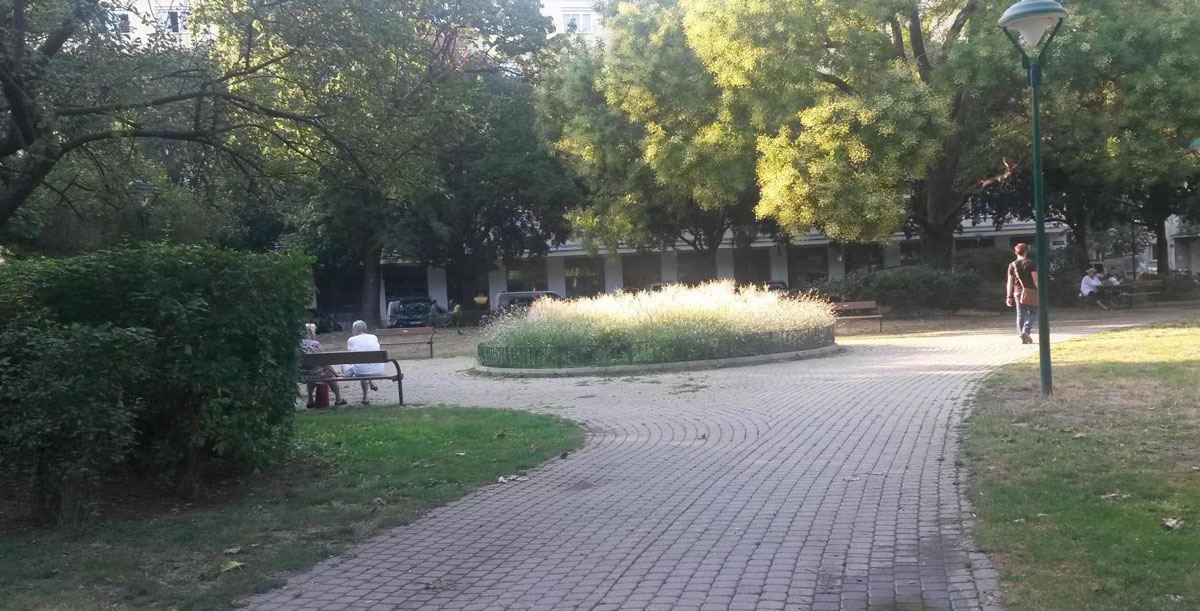
Dieser Tage traf ich zufällig meinen lieben alten Freund Sch. bei einem meiner kurzen Wien-Aufenthalte, die zumeist nur dazu dienen, Dinge, die meinem freiwilligen Hausarrest auf dem Land fehlen, aus der Wohnung zu holen. Wir waren auf dem Sprung in einen Supermarkt, verständigten uns durch Gesten, dass Telefonieren zu wenig sei, um unser Wiedersehen seuchenkonform zu zelebrieren. So kauften wir uns an der Kasse jeder zwei Leibwächter und setzten uns damit im nahegelegenen Beserlpark (wie man in Wien sagt) auf zwei Bänke neben einander. Zwei Meter Abstand zwischen uns. Wir sprechen vor uns hin, ohne uns viel anzusehen, eine halbe Stunde lang. Wie zwei Penner, oder wie in einem alten Agentenfilm oder bei einem kleinen Drogendeal. Sch. schob mir eine Zigarettenschachtel rüber, in der er bis auf zwei alle anderen Sargnägel herausgenommen hatte und verweigerte nachher die Rücknahme. Rauchen fühlt sich in Corona-Zeiten doppelt verrucht an. Wir verabschiedeten uns ohne Körperkontakt und gingen in zwei verschiedene Richtungen, bevor uns ein Streifenwagen der Polizei doch noch aufspüren konnte. Woche 3, in der sich unser schöner Staat unter nationale Quarantäne stellte, ging ihrem Ende zu.
PS: Damit solche Verstöße nicht mehr vorkommen, kaufe ich mir das Buch Quarantäne: eine Gebrauchsanweisung des Benediktinermönches Anselm Grün.
Donnerstag, der 2. April 2020
#PestTageBuch (19): Ereignis-Charakter
Das letzte Mal, als ich Zeitgenosse eines “historischen Ereignisses” wurde (1989), habe ich es schlichtweg verschlafen. Ich war einfach zu sehr mit mir selbst beschäftigt, um den Fall der Berliner Mauer gebührend zu würdigen. Es war viel wichtiger, dass die Wandfarbe und Fliesen für meinen Wohnungsumbau geliefert wurden als z.B. die vielen Ossis in ihren stonewashed Jeans, die nach Österreich kamen.
Wie wird das diesmal sein? Woran werden wir uns erinnern? Wem sehen wir noch entgegen?
Mittwoch, der 1. April 2020
#PestTageBuch (18): fashion statement mask fetish
Ab heute sollte es in Österreich eigentlich Pflicht gewesen sein, einen Supermarkt nur noch mit Gesichtsmaske zu betreten. Gestern abend kam dann die Entwarnung: die Ketten sind noch nicht in der Lage, die benötigten 4 Millionen Masken pro Tag für ihre Kund*innen bereitzustellen.
Derweil kann man im Internet “Steam Punk Pest Doctor”-Vogelmasken um 27 Dollar kaufen, aber keine wirklich dichten Virusmasken (FFP2 oder gar FFP3). Die slowakische Präsidentin Zuzana Caputova hat sich hingegen den Ruf erworben, ihre Hygienemaske immer Ton in Ton zu ihrem Kleid passend zu tragen (s.u.).
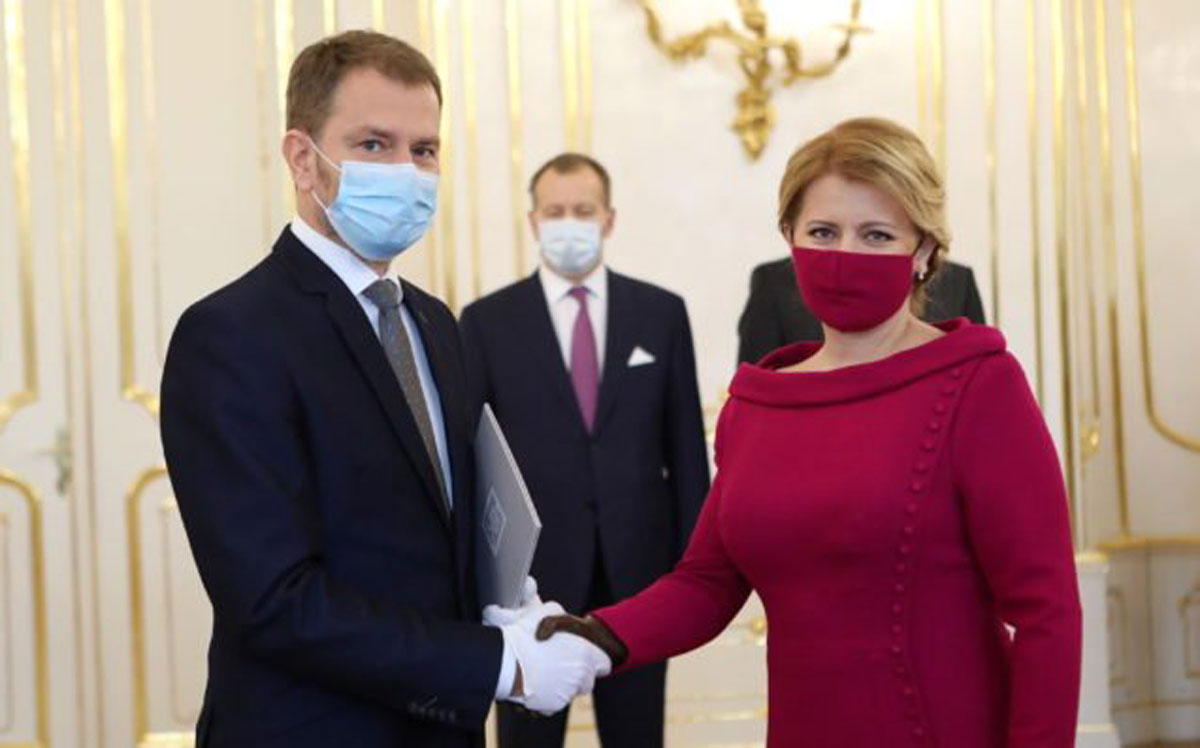
Die Maske ist also quasi der neue gang sweater des Corona-Jahres 2020. Machte man sich in den letzten Monaten noch über die vermummten anti-individualistischen Asiaten lustig, geht es auch längst hierzulande nicht nur darum, sich zu schützen, sondern dazuzugehören, wie auch der tschechische Historiker Rudolf Kučera richtig auf Facebook schreibt:
“Masks´ contribution towards containing the contagion may not be proven, but that is not the point. The point is cultural. They have been the central mobilizing moment to get the public involved in a dire lack of state agency. They create a community of people, who (voluntarily or forcibly) visibly care about what is going on and symbolically contribute to the collective effort to contain the disease. Much like national symbols worn publicly in times of revolution, they delineate the community of active citizens who simply take part. At the same time, they provide a context for voicing a critique of the state and finding new grounds for collective agency from below. I doubt that without the current mask frenzy, the population would be as willing to follow other regulations that may be based on much more proven scientific knowledge than wearing of masks.”
Dienstag, der 31. März 2020
#PestTageBuch (17): #Ausnahmezustand
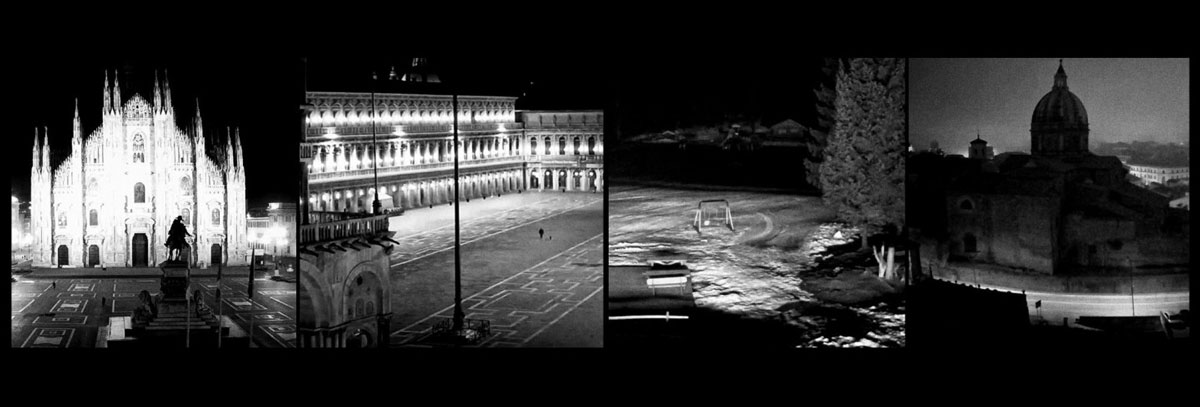
#Corona wird zum Elchtest für die #Demokratie - und eigentlich müsste Carl Schmitt wieder die Bestsellerlisten erklimmen... Die Politik bietet einen ungewissen Kuhhandel an: Wieviel Freiheit sind wir bereit, im Austausch gegen gegen vermeintliche Sicherheit/Gesundheit aufzugeben? Während die Polizei in Wien und Berlin noch mit Fiebereifer mutmaßliche „Corona-Parties“ in den Parks sprengt, nutzte Ungarns Premier Viktor Orbán die Gelegenheit, das Parlament zu entmachten. Und während die Autorin Annie Ernaux dem französischen Präsidenten in einem Brief ermahnt, das martialische Getue bleiben zu lassen, schreibt der viel gelesene israelische Historiker Y. N. Harari hellsichtig:
„Yes, the storm will pass, humankind will survive, most of us will still be alive, but we will inhabit a different world. Many short-term emergency measures will become a fixture of life. That is the nature of emergencies. They fast-forward historical processes. (…) Entire countries serve as guinea-pigs in large-scale social experiments. What happens when everybody works from home and communicates only at a distance? What happens when entire schools and universities go online? In normal times, governments, businesses and educational boards would never agree to conduct such experiments. But these aren’t normal times. In this time of crisis, we face two particularly important choices. The first is between totalitarian surveillance and citizen empowerment. The second is between nationalist isolation and global solidarity.“
Dem ist nichts hinzuzufügen.
Montag, der 30. März 2020
#PestTageBuch (16): early adopters

Die Porno-Industrie beweist wieder einmal ihre unglaublich proteische (und prothetische!) Natur: Sie vermag es, wie ein Virus sich in andere Themen und Genres einzuschleichen und dann gleichsam die DNA so zu verändern, dass geiler Schund daraus wird. Während internationale Portale wie Pornhub denjenigen, die auf den Kontinenten unter dem echten Virus stöhnen, ihre Leiden durch Gratis ‚Premium Memberships‘ versüßen, gibt es schon knappe zwei Wochen nach den ersten nationalen Lockdowns den ersten Corona-Hardcore: natürlich mit den Haupt-Accessoires der Krise, nämlich Hygienemasken und Klopapier, als Leitmotive. Unglaubliche Zeiten für die Psychologie & Kulturwissenschaft
Sonntag, der 29. März 2020
#PestTageBuch (15): plug-in, kulinarisch
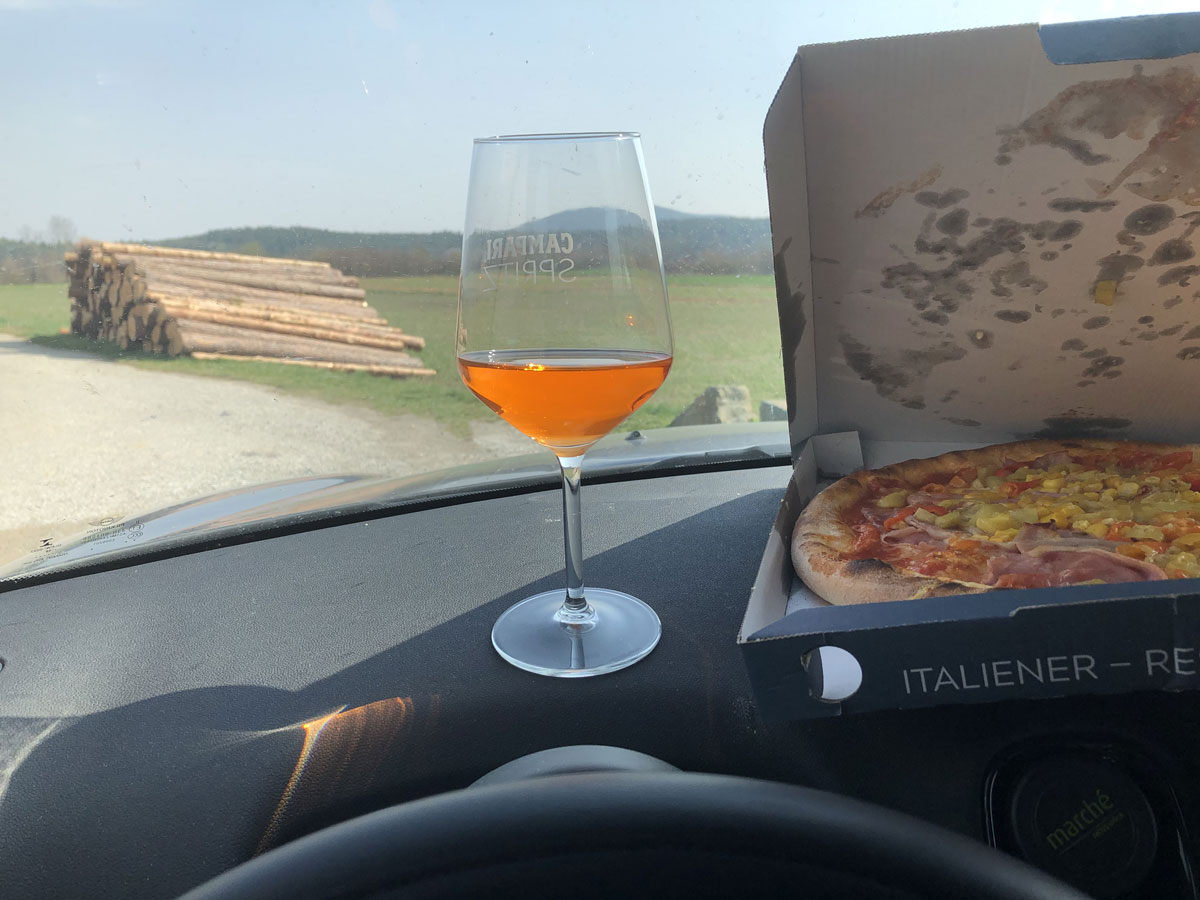
Seit dem Lockdown lebe ich ökologischer: die 35km, die mein Auto vollelektrisch schafft, reichen völlig aus, um von meinem Haus im Wiener Umland aus ab und an wichtige Besorgungen zu erledigen oder die Umgebung zu erkunden.
Und was man nicht alles im eigenen PkW machen kann, wenn andere Aktivitäten flachfallen: Lunch am Sonntag beispielsweise. Eine takeaway-Pizza von einem der besten Italiener Ostösterreichs im Auto vor heimischer Landschaft. Als ich dem patrone sage, wie sehr für mich Aperolspritzer nach verlorener Freiheit schmecken, bringt er mir einen auf den Parkplatz nach. ‚Das Glas geht aufs Haus.‘ Grazie und einen Toast aufs geplagte Italien.
Samstag, der 28. März 2020
PestTageBuch (14): Stereotype #diarya
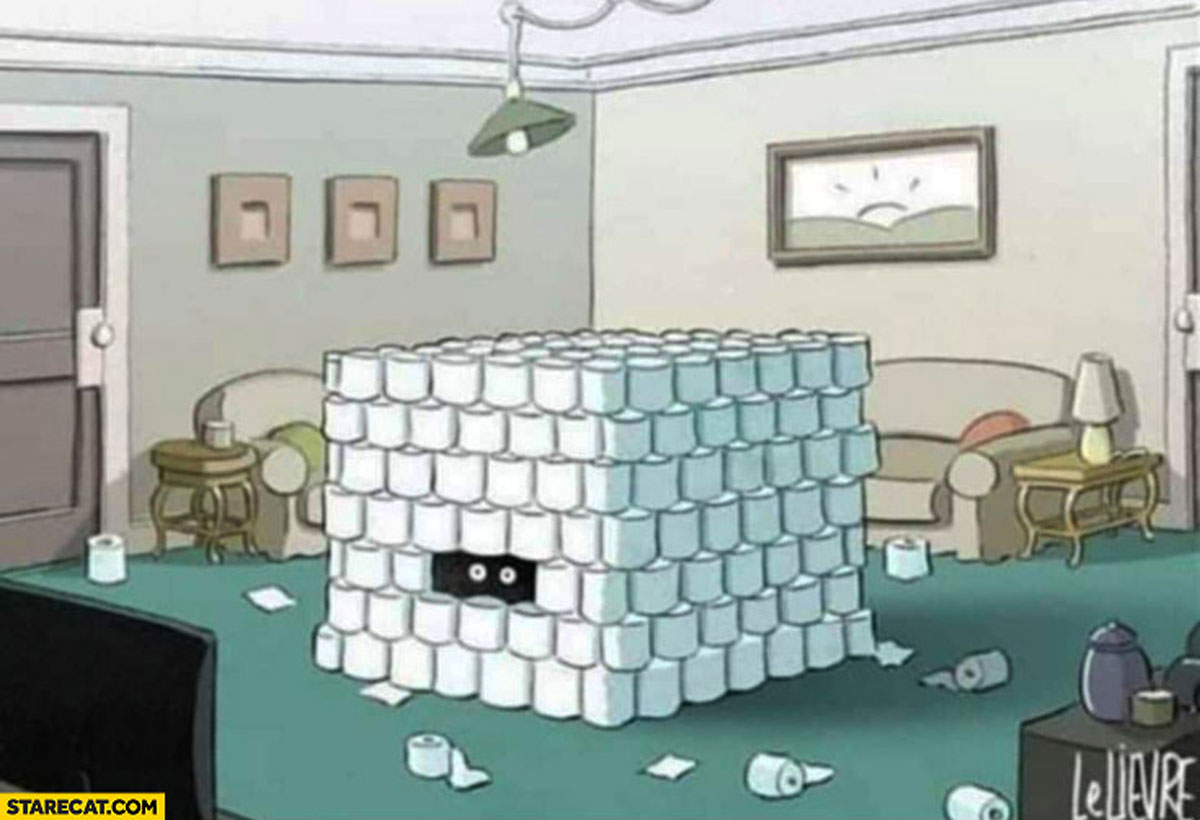
Corona verschaffte uns eine Anschauung dessen, was wir nur aus den Erzählungen von Kriegsgenerationen oder misslungenen Weihnachtsfesten kannten: #Hamsterkäufe. Dabei wurden nicht nur anale Besitztriebe nach oben gespült, sondern auch allerhand #nationaleStereotypen:
Man sagt, dass in Frankreich zuerst die Kondome zur Neige gingen und in Italien die Rotweinflaschen. Zum frühen #Leitmotiv der #Corona-Epidemie wurden indes die leergekauften Regale für Toiletthygiene, die sonst den Allerwertesten umschmeichelt. Und noch immer sieht man unter den spärlichen Passanten auf den Straßen Wiens solche, die eine 20er-Packung #Klopapier wie ein Statussymbol mit sich tragen, stolz und gelöst. Dies verbindet uns Österreicher/innen offenkundig mit den Deutschen und anderen Menschen germanischer Sprachen.
Ein Kollege verwies in diesem Zusammenhang auf einen Klassiker der europäischen Anthropologie, Life is like a Chicken Coop Ladder von Alan Dundes (1989), der anhand von Märchen und anderen kulturellen Dokumenten die generell anale Ausrichtung der deutschen Kultur nachzuweisen suchte. Ob das ein Befund oder nur blankes Vorurteil ist, wird sich noch weisen. (Fakt ist, dass die Deutschen gern mit Arsch & Scheiße fluchen, die Englischsprachigen bevorzugt genital/sexuell und die Schwed*innen am liebsten blasphemisch, wie wir vor etlichen Jahren in den Germanistischen Mitteilungen lernten.)
Freitag, der 27. März 2020
PestTageBuch (13): Durchseuchung mit Büchern
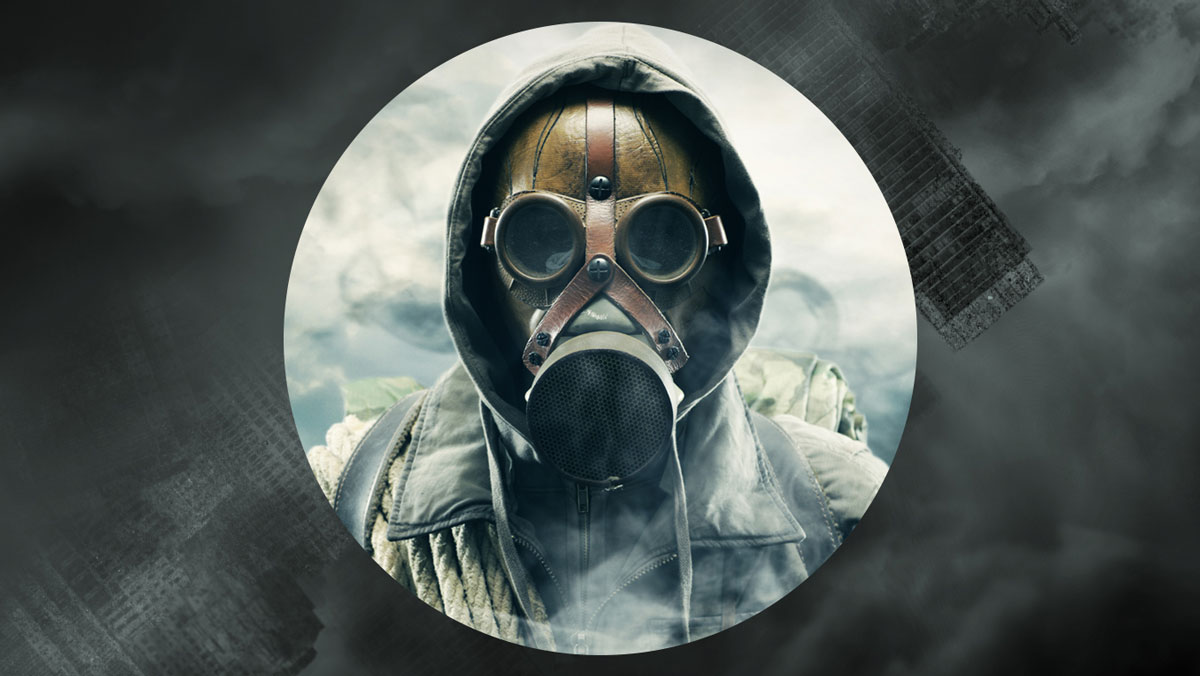
Durchseuchung mit Büchern / eine kleine postapokalytische Leseliste: - Atwood, M.: Oryx and Crake (2003) - Ballard, J.G.: High-Rise (1975) - Brooks, M.: The Zombie Survival Guide (2003) - Camus, A.: La peste (1947) - Dostojewski, F.: Zapiski iz podpolʹja (1864) - Golding, W.: Lord of the Flies (1954) - Matheson, R.: I am Legend (1954) - Poe, E.A.: The Mask of the Red Death (1842) - Saramago, L.: Ensaio sobre a cegueira (1995) - Szczypiorski, A.: Msza za miasto Arras (1979) What did I miss?
Donnerstag, der 26. März 2020
#PestTageBuch (12)
Ein wohlmeinender Freund aus der deutschen Eifel hat mir die folgenden unsterblich schönen #Covid19-Durchhalteparolen geschickt - in rheinischer Mundart, also für mich als Österreicher quasi eine Fremdsprache:
- “wat fott is, is fott.”
- “Et kütt wie es kütt.” [liebe Flamen und Fläminnen, das ist nix Obszönes]
- “Et hätt noch immer jot jejange.”
Auch andere appellieren an vermeintliche Nationaltugenden, hinter denen sich eher Stereotype verbergen. Etwa an das “sich durchwurschtln”, die Wiener Variante von frz. “se debrouiller”. (Mehr Nationales morgen.)
Inzwischen werden die Deadlines für unsre künftig erneuerte Freiheit - d.h. unsere Freilassung aus der Einschließung - auf nach Ostern verschoben...
Mittwoch, der 25. März 2020
#PestTageBuch (11): zurück in die Außenwelt
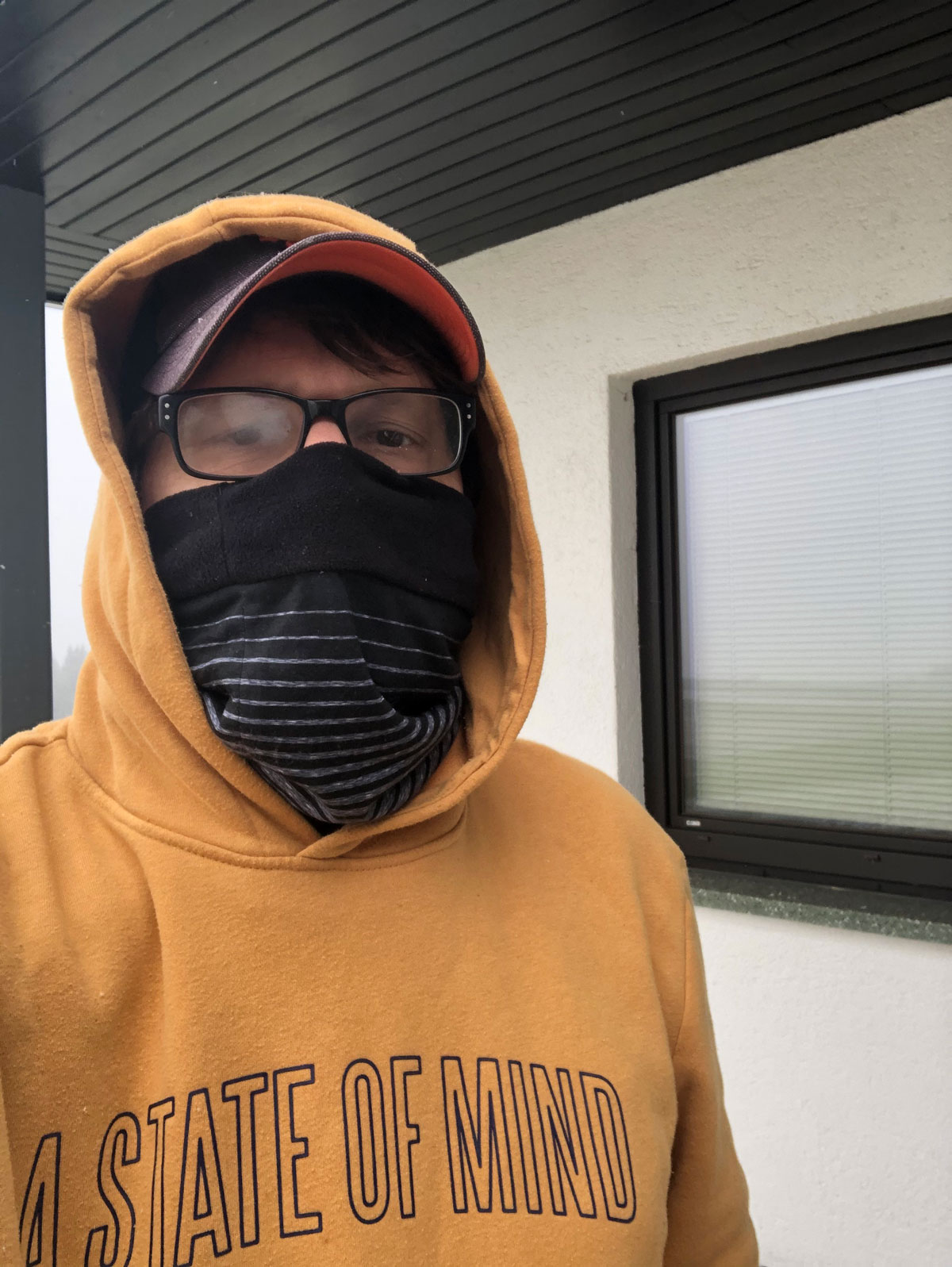
Anzuraten dieser Tage: Assi-Look? Gemma mal einkaufen im Seuchengebiet - oder doch lieber gleich mit der ‚eisernen Karte’ Geld abheben? (Aber die Bank macht sicher auf home office...)
Occasionally, it still feels as if I had been beamed into a cheap #postapocalyptic #BMovie
Dienstag, der 24. März 2020
#Seuchenpause
Montag, der 23. März 2020
#PestTageBuch (9)
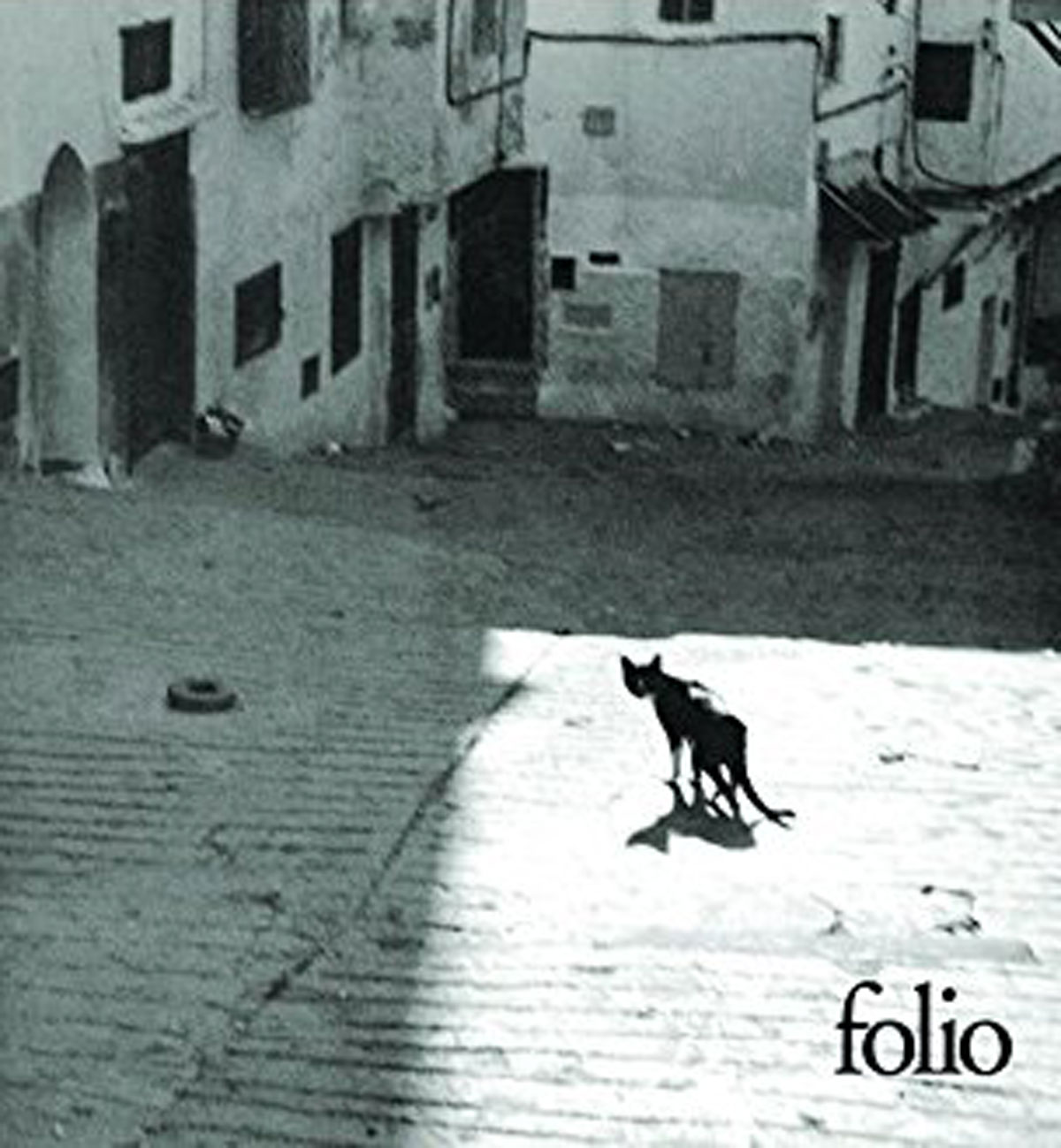
“Wie unsere Mitbürger nun merken sollten, hatten sie nie gedacht, dass unsere kleine Stadt ein besonders geeigneter Ort sein könnte, wo die Ratten in der Sonne sterben und die Concierges an seltsamen Krankheiten zugrunde gehen. In dieser Hinsicht befanden sie sich genaugenommen im Irrtum und mussten ihre Vorstellungen revidieren. (...) Von diesem Moment an begann die Angst und mit ihr das Nachdenken.”
— Albert Camus, Die Pest
Sonntag, der 22. März 2020
#PestTageBuch (8): Vor dem Virus sind alle gleich?

Falsch. Es gibt mindestens drei Klassen von Menschen, oder vielmehr #Hygienegruppen: diejenigen,
- die auf „#homeoffice“ machen dürfen oder verlängerte Osterferien haben;
- die mit oder ohne Maske schuften und den Betrieb draußen weiter aufrechterhalten müssen (und momentan von den Medien langsam ‚entdeckt’ werden);
- die kein richtiges Dach über dem Kopf haben wie z.B. Flüchtlinge und Obdachlose.
Kategorie 2 und vor allem 3 stellen quasi das Kanonenfutter des Virus dar... Schon überlegt, was Kategorie 1 für sie tun kann?
Samstag, der 21. März 2020
#PestTageBuch (7)
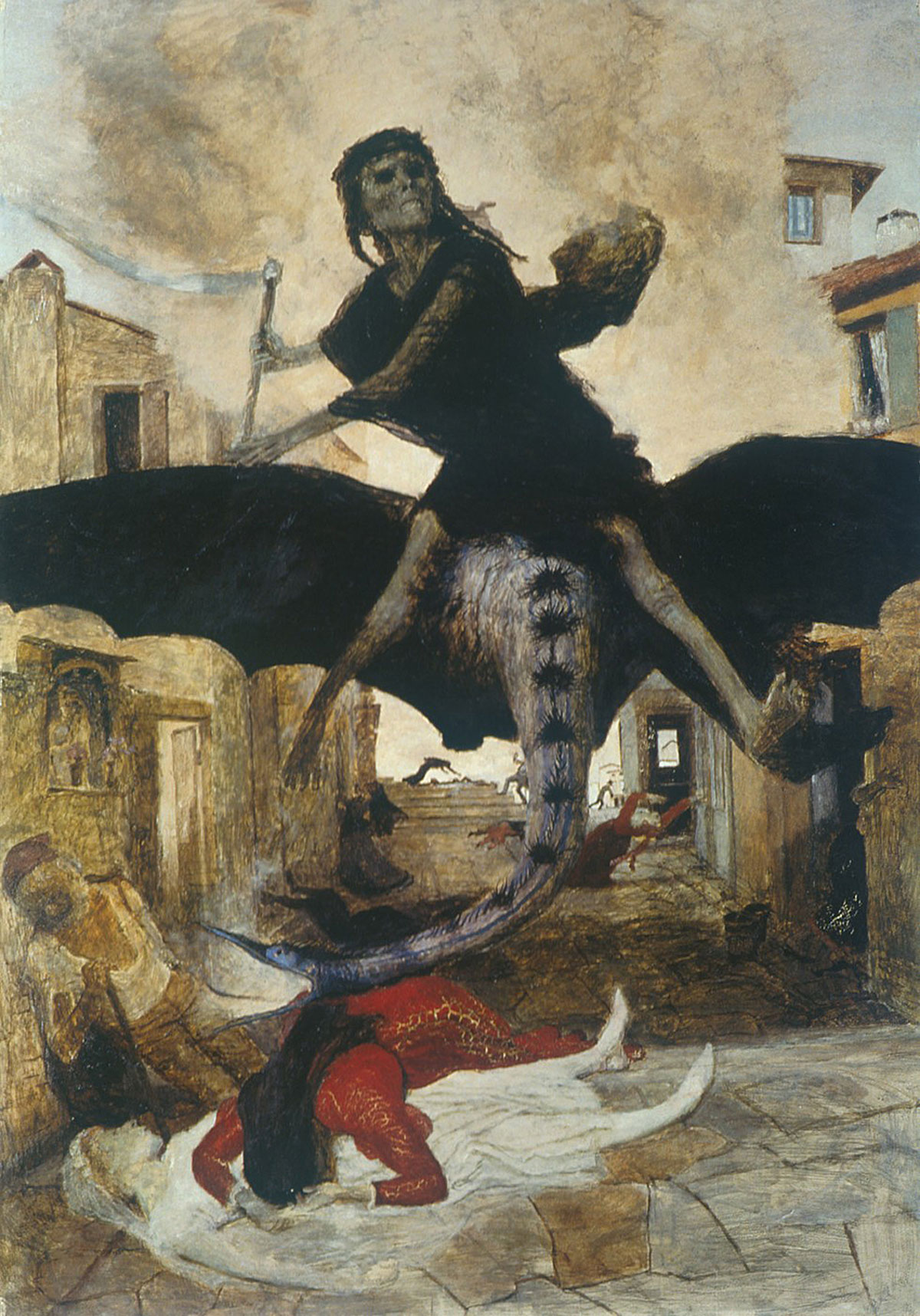
Unsere Angst-Paranoia rührt von der Unsichtbarkeit & Ungewissheit eines Phänomens wie einer Virus-Infektion her. Genau deswegen müssen wir diesem Ungeheuren ein Gesicht geben, das seine Wirkung irgendwie illustriert, so wie dies etwa 1725-32 der Fall war, als der #Vampir vom Balkan in den Rest Europas ‚übertragen‘ wurde; aus dem Seuchengespenst wurde später eine literarische Figur. Davon handelt auch mein Buch GestaltAnnahmen, das ich (ironischerweise) vor kurzem zu schreiben begonnen habe.
Freitag, der 20. März 2020
#PestTageBuch (7): Wallfahrt zur Seuchenheiligen
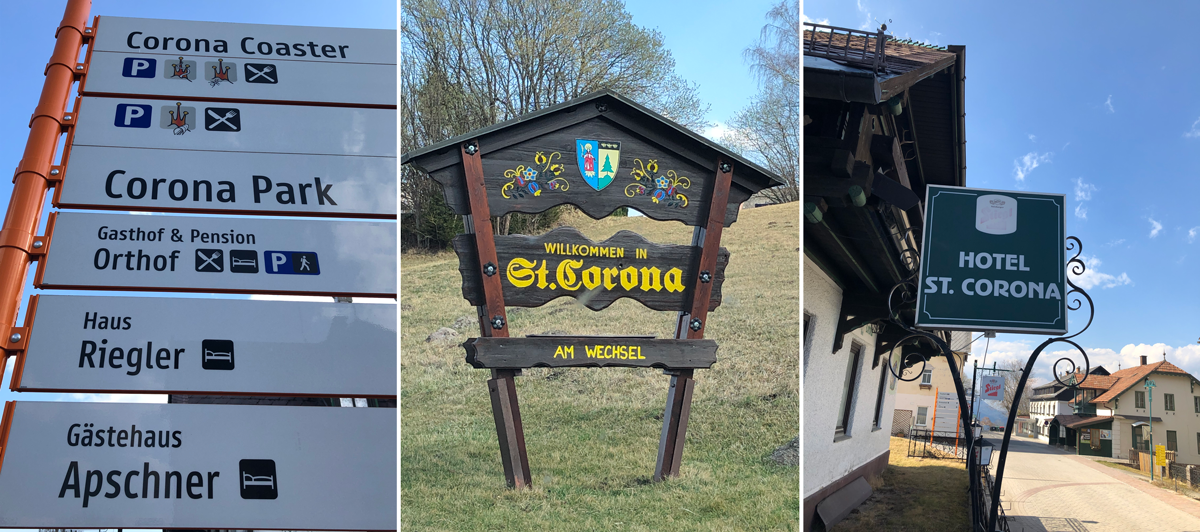
St. Corona am Wechsel liegt in Niederösterreich, auf halbem Weg zwischen Wien und Graz: einer jener herabgekommenen Sommerfrische-Orte, dessen große Zeiten etliche Jahrzehnte zurückliegen. Man kann in manchen Jahren noch leidlich Schifahren hier und es gibt als PlanB eine Sommerrodelbahn, trotzdem sind die meisten Hotels offenkundig auch ohne COVID-19 geschlossen. Was indes die wenigsten wissen: die Heilige Corona, eine christliche Märtyrerin der Spätantike mit unklaren Daten, ist die Schutzpatronin der Seuchenkranken.
Vielleicht sind ja SARS2-Wallfahrten die neue Business-Idee und nur eine Frage der Zeit, bis sich Esos aus Wien in die muffigen Betten der heruntergekommenen Fremdenzimmer setzen, selbstredend mit 1-2m Sicherheitsabstand…
Donnerstag, der 19. März 2020
#PestTageBuch (6): #socialdistancing & #digitalization
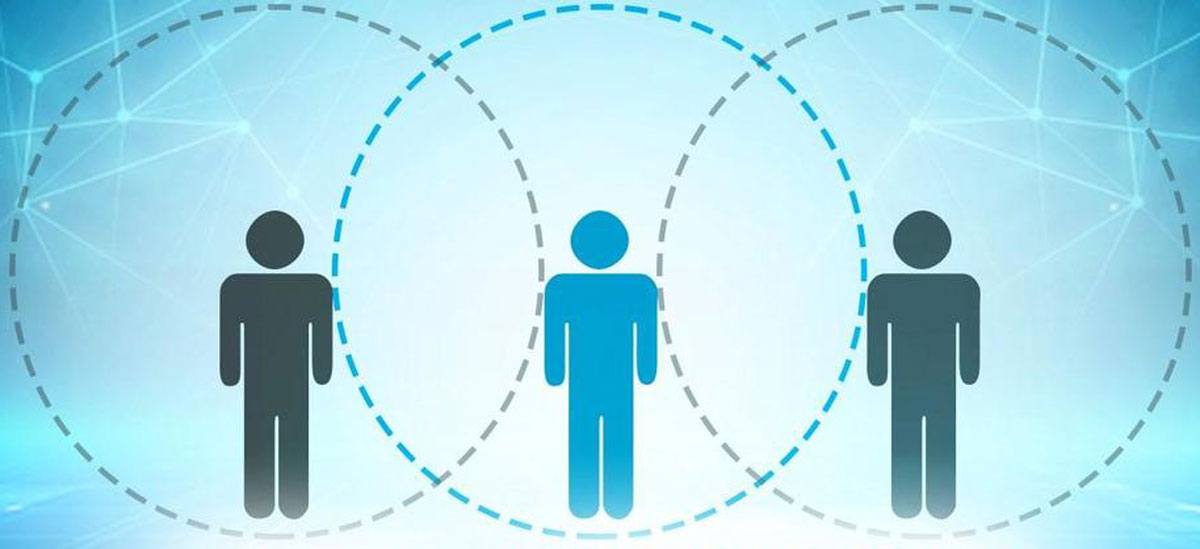
Die 'Volksgesundheit' erfordert, Abstand zum Mitmenschen zu halten und eine #Seuchengemeinschaft von möglichst fensterlosen Monaden zu bilden (interessant auch, was für faschistische Begriffe hier immer wieder in Latenz herumgeistern). Dies und die zunehmende #Digitalisierung der Reste unseres Berufslebens (Stichwort #homeoffice) könnte zu einer beispiellosen weiteren EntAnalogisierung, d.h. Entkörperlichung und Entsinnlichung unseres Lebens führen, die - geboren im Ausnahmezustand - so vielleicht nicht mehr reversibel ist, ebenso wie das unfriendly takeover unseres Privatlebens durch den Arbeitgeber. Da stimmt es tröstlich, wenn viele Freund*innen schon am Tag 5 der Quarantäne ankünden, nach deren Ende zu beispiellosen #partyanimals muTieren zu wollen. Oder #StayTheFuckHome wörtlich nehmen.
Mittwoch, der 18. März 2020
#PestTageBuch (5)
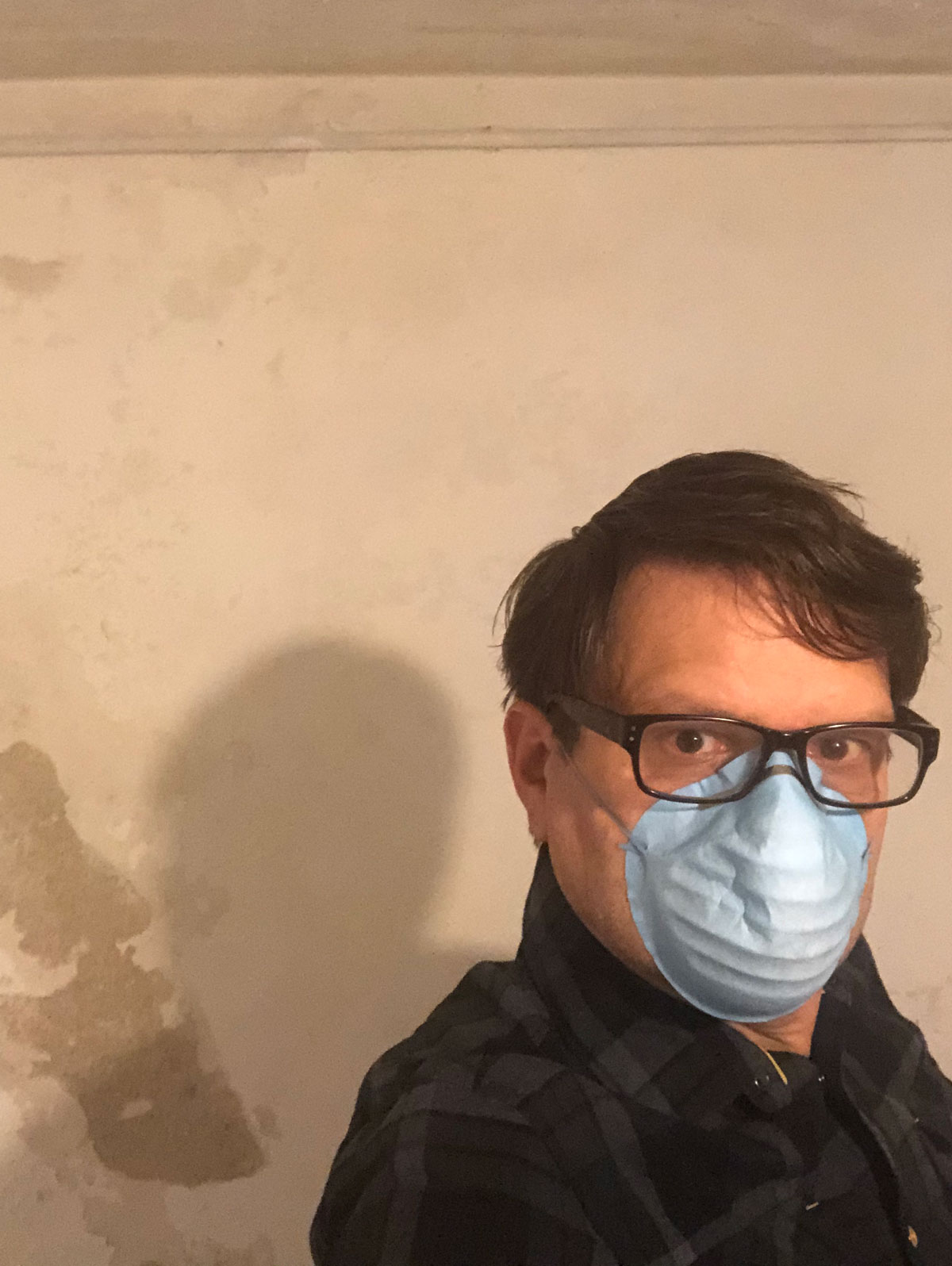
„...dann sind wir Helden / für einen Tag...“ (Bowie)
"Ich glaubte zu träumen", fangen viele #Corona-Narrative an. Wie schon Aristoteles wusste (sinngemäß): "Ein guter Anfang ist schon die halbe Sache". Das Interessante am Ausbruch dieser neuen Pest mit Triage, Ausgangssperre, medizynischem Mummenschanz (Masken-Angebote auf Favebook!) etc. ist genau jener Moment, wo die vertraute Wirklichkeit ins Surreale kippt – let's call it: 'the slippage'. Dies geschieht #kurz, ein paar Tage maximal, bevor das vorher Unannehmbare, das immer schon heimlich da war, eine neue Normalität wird, an die man sich gewöhnt: 'unheimlich' im Sinne von Freud oder Todorovs 'hésitation'? Ich hab seit meinen Tagen als Möchtegern-Kriegsreporter in Belfast in den 1980s nicht mehr dergleichen erlebt. Apropos: Besonders leid tun können einem die Menschen dort, aber auch die Bosnier*innen, bei denen die allgemeine Angst und Beschränkung wahrscheinlich die alten Traumata wiederbeleben, während unsereiner Klopapier kauft — cur.few.order
b
clustered | unclusteredDictionary of Apocalypse
Goda Palekaitė & Sina Seifee
Friday, April 3, 2020
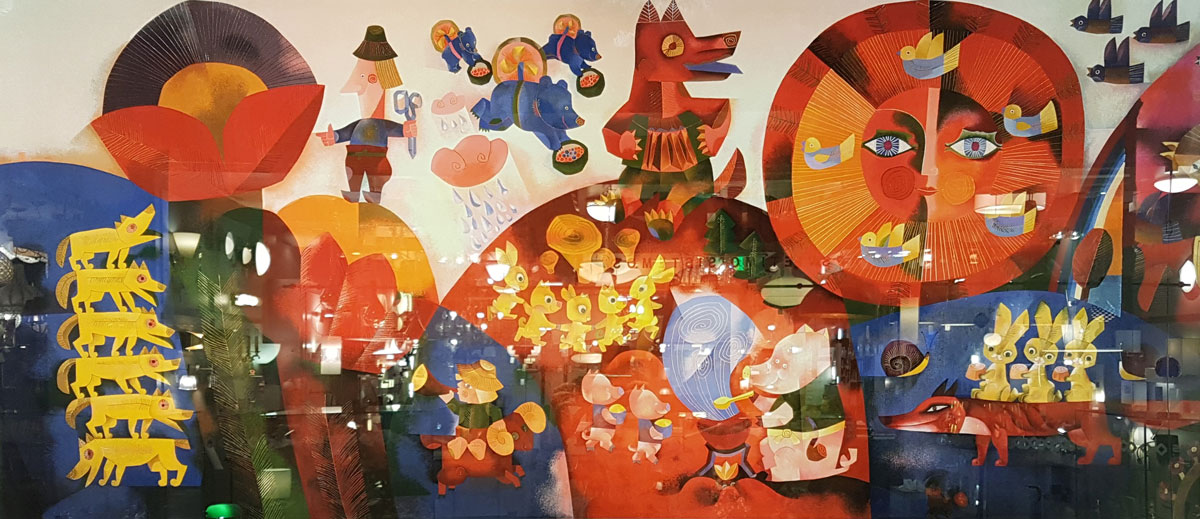
The sky is falling
Once, Cat left home for a hunt. He was snooping around in the cabbage field and then suddenly just ㅡ uuuzht ㅡ a cabbage leaf fell on his tail. Frightened he thought: “Now certainly the sky is falling!” And began to run. He runs, spurts as fast as he can, and meets Rabbit.
Rabbit Babbit, run ㅡ the sky is falling! Who told you? It fell on the tip of my tail!
Rabbit also gets frightened and joins Cat. They run run and meet Fox. Rabbit cries:
Fox Tox, run ㅡ the sky is falling! Who told you? Cat Pat. Cat Pat, who told you? It fell on the tip of my tail!
Fox also gets frightened and joins them. They run run and meet Wolf. Fox cries:
Wolf Rolf, run ㅡ the sky is falling! Who told you? Rabbit Babbit. Rabbit Babbit, who told you? Cat Pat. Cat Pat, who told you? It fell on the tip of my tail!
Wolf also gets frightened and joins them. They run run and meet Bear. Wolf cries:
Bear Hear, run ㅡ the sky is falling! Who told you? Fox Tox. Fox Tox, who told you? Rabbit Babbit. Rabbit Babbit, who told you? Cat Pat. Cat Pat, who told you? It fell on the tip of my tail! Tell me, how was it? ㅡ asks Bear. I was snooping around in the cabbage field and then suddenly just ㅡ uuuzht ㅡ something fell on the tip of my tail! Was it big? As big as the rooster’s wing. You silly ㅡ says Bear ㅡ it was probably just a cabbage leaf. You all, go home! Perhaps it is true ㅡ agreed Cat ㅡ Now we can all go home without fear.
And everyone went home.*
- *Lithuanian folk tale.
Thursday, April 2, 2020
Towards griffinology
The lion-bodied, eagle-headed and winged chimera, or Griffin has appeared in numerous cultures and civilizations for thousands of years. First Griffins have been recorded flying around in ancient Egypt and Persia. But later they have been noticed in ancient Greek, Roman, and Christian lands as well. They remain until today one of the most popular creatures portrayed in heraldic culture throughout the world. Griffins were good at fighting horses, guarding secrets, hating one-eyed men, symbolizing power and, as some thought, protecting their noble masters from foreign threats. There are alternative theories claiming that Griffins never even had masters, but were themselves the masters of humankind. For instance, Aristeas tells us that in his time (7th century BC) Griffins lived in the north-east of Greece in a desolate desert setting, where nomadic barbarians hunted for gold, which the Griffins would fearfully guard.
Naturally, the question arises: where are Griffins today? Are they an extinct species? Vast contemporary evidence says yes. Latest paleontological findings show that the Late Cretaceous period hosted a middle-sized horned dinosaur, scientifically named Protoceratops. This creature had indeed the same physiological structure as the Griffin*: a recognizable bone structure, membranous wings, extensive feathering, colorful body parts, a fiery gaze in their eyes, the fragility of their offspring, their nesting behavior and parental nature. Thus, when our ancestors were meeting Griffins, in fact they were encountering dinosaurs.
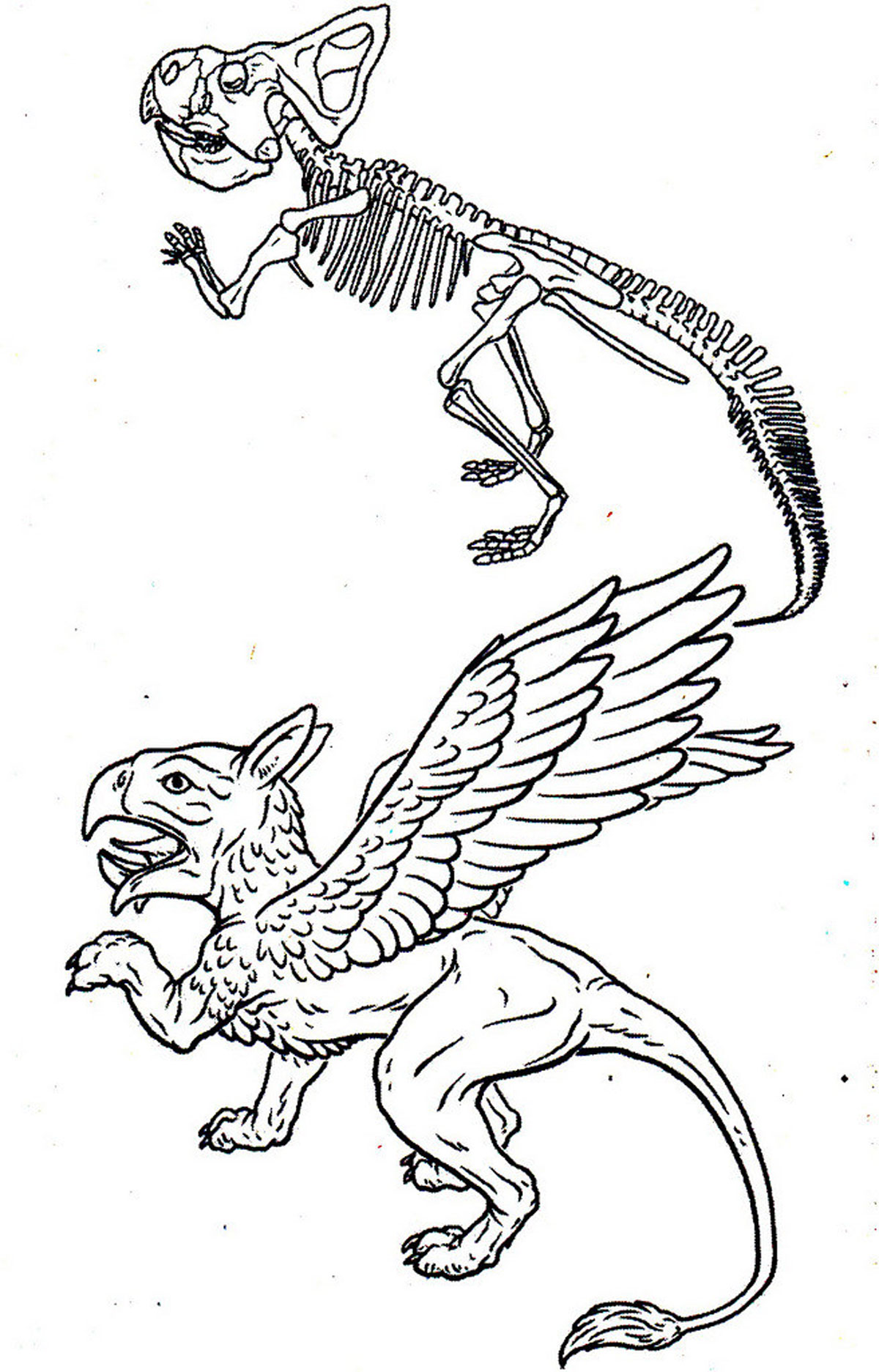
- *Mayor, A., & Heaney, M. (1993). Griffins and Arimaspeans. Folklore, 104(1-2), 40-66.
Wednesday, April 1, 2020
Apocalyptic imagination
Apocalyptic imagination is indeed an old and important motif of thought. As far as we can go, there is the imagination of the end of the world. For example, the myth of Flood that is mentioned in the Epic of Gilgamesh from 2800 BC was itself already “ancient” to the Mesopotamians of that time. In a nonsecular horizon of thought one might call it eschatology, an interest with the “ends” (end of humanity, end of nature, etc.). It is a fascinating field where one can examine how the historical is both navigated and orchestrated. And how ideas of transcendence are exchanged with the notions of excess and escape. In other words: the study of the history of the desire to overcome history.
Apocalyptic imagination is the result of a systemic failure in the figuration of finitude, in other words: the idea that there is no world without me (or us) in it. And indeed it is an embodied response to the quality of entropy as it is experienced directly by the person from a materialist perspective — a cross section of material body and immaterial intellect. Situated within a matrix of ethics, knowledge, and hope, apocalyptic thinking is a philosophical disposition that sees itself as realism. It is a conviction that nothing unanticipated that could potentially change the course of destiny can happen, or even should happen. In this sense, it can be considered as anti-political.
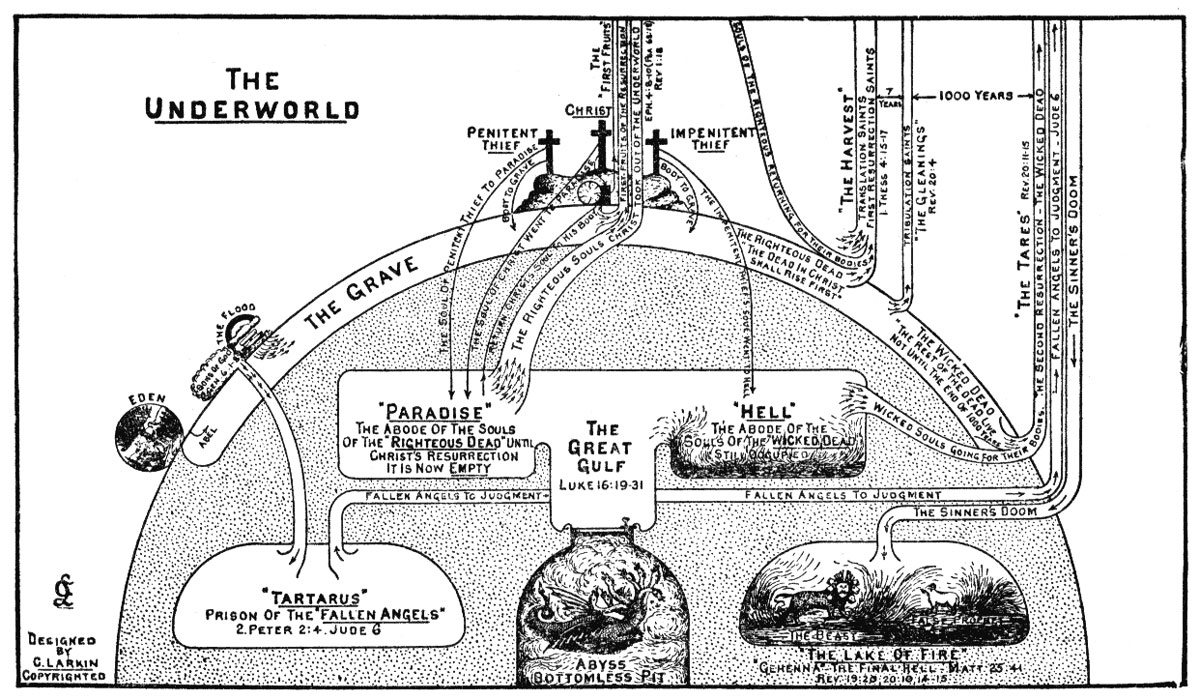
Tuesday, March 31, 2020
Divine futurism
“I have seen palaces in heaven that were so splendid as to be beyond description. Their upper stories shone as though they were made of pure gold, and their lower ones as though they were made of precious gems. It was the same inside. The rooms were graced with such lovely adornments that neither words nor the arts and sciences are adequate to describe them. The architecture of heaven is like this, so that you might call it the very essence of the art — and small wonder, since the art itself does come to us from heaven.” Emanuel Swedenborg* Heaven and Hell, 1758
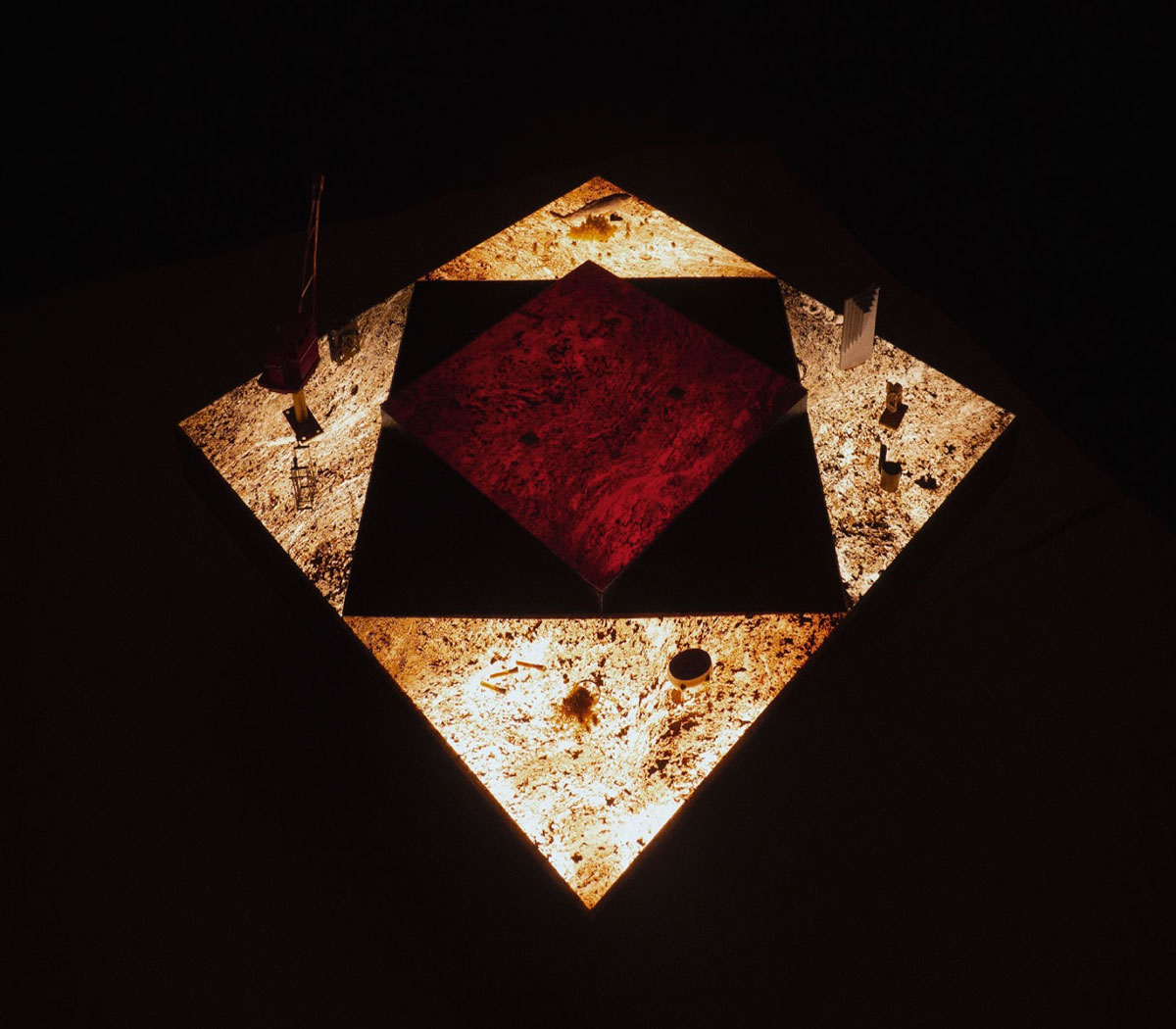
- *Emanuel Swedenborg (1688-1772) was Sweden’s most underestimated futurist. He was a philosopher, a theologian, a mathematician, a geologist, a metallurgist, a mineralogist, a crystallographer, an anatomist, a botanist, a chemist, a physicist, a cosmologist, an astronomer, an engineer, an economist, an editor, a poet, a musician, a mystic and a medium. At the age of 56, he started having intense dreams and visions, which made him turn away from science towards mysticism. After this transformative period, he devoted the rest of his life to theologian writings, mostly regarding the afterlife, including descriptions of the architecture of heaven with engineer’s precision. He claimed to be as objective in his mystical practices as in the scientific ones. Due to his involvement in mysticism, Swedenborg’s groundbreaking inventions such as the ”flying machine” (1716) and the prototype of a modern submarine (1714), were ignored by the scientific community for nearly two centuries. However, his legacy as a theologian has been incredibly influential worldwide to this day.
Monday, March 30, 2020
The last tattoo
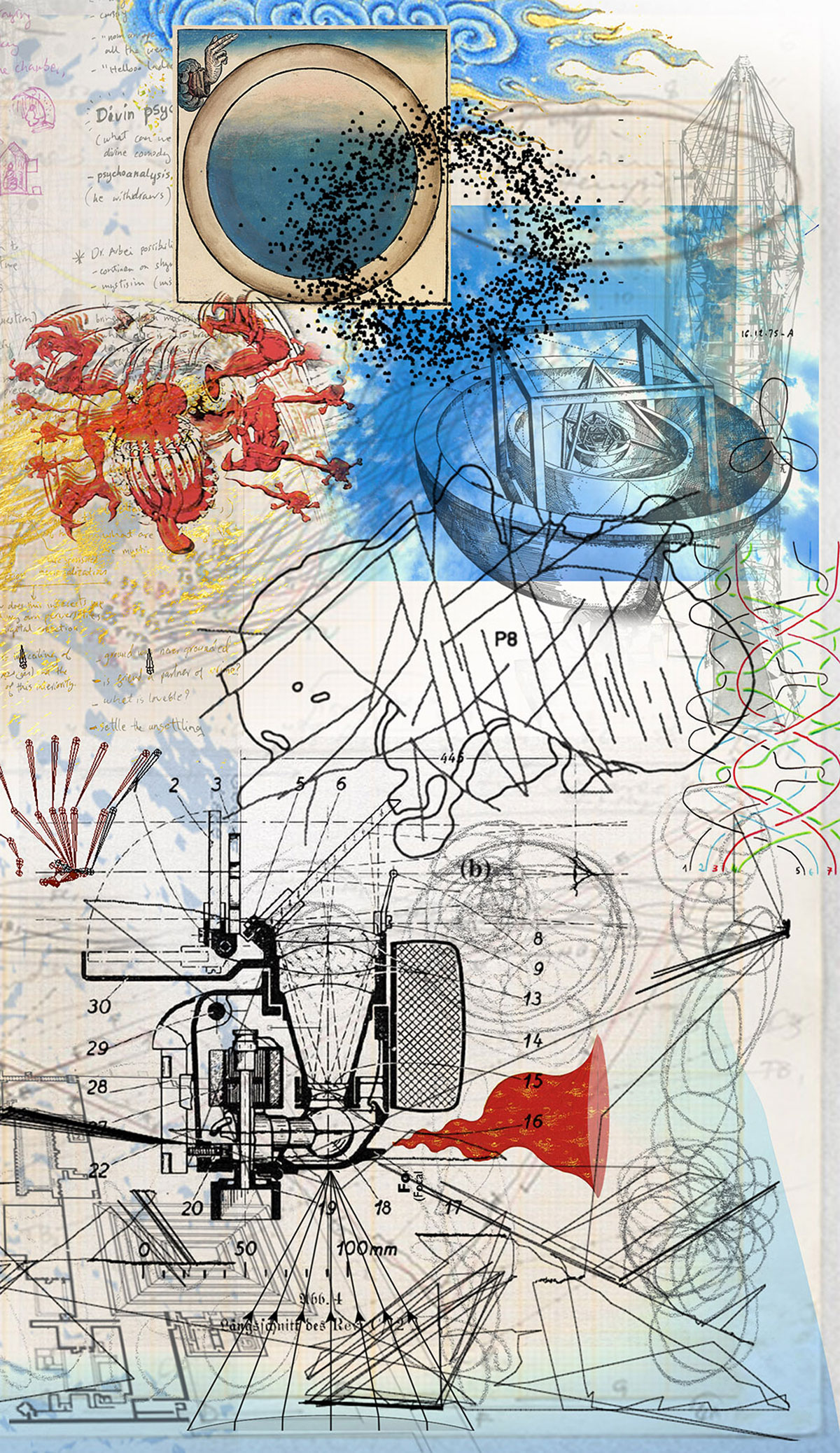
The Tattoo-Studio is open! A gift from tattoo artist Ric Kieckheferーa unique-style baroque-inspired body-art illustration of the end-of-the-world engine, which will be tattooed by the artist himself.
Sunday, March 29, 2020
A party that ended the world
In the year 1971, an incredible and fantastic political theme park emerged in Persepolis. The threats of imminent drought were turned into a garden of Eden, changing even the desert climate for the duration of one week. This was a party that the Shah of Iran gave on the 12th of October 1971. On that day, the Shah could not know that his feast would instigate the end of his reign. The Iranian revolution happened soon after, and led to a radical reform of the people’s lives and beliefs, the exile of the Shah and the eventual suicide of his two children.
The party itself was a statement from the Shah’s family, specialized in an old and expensive denotative game of inclusion and exclusion, call it royalty. It was a show for the world, staging the inner life of a grand history - Persian history. The party was so big that airports and highways had to be built in order to transport its special guests to the location, and the ecosystem had to be designed to assure the guests’ comfort and immersion into a full experience of something epic and monumental. The guests included the world’s royalty, kings and queens, the political elite, and the last monarchs and despots of the Cold War era: the leader of the USSR, the vice president of the USA, the emperor of Ethiopia, the king of Denmark, the queen of Belgium, the princess of Jordan, the emirs of Qatar and Bahrain, the kings and queens of Norway and Greece, the sultan of Oman, the Grand Duke of Luxembourg, the Duke of Edinburgh, the crown prince of Sweden, governors of Canada and Australia, and so on. The party was held with the hope that through its effects both the enunciator and the audience would be redefined. The Shah wanted to buy cultural credit within a cruel international market: the credit of “Iranianness”. The grandiosity of the gesture itself was the signification and its meaning at the same time.
During the preparations in 1971, life in Iran stopped for months: the borders got closed, the roads got blocked, communication was fully surveilled, and a black hole appeared that sucked in the freedom to move and all the wealth of the country. Skeptics might say the memory of that time only too well describes what is happening in Europe today. Is anyone throwing a party?
Saturday, March 28, 2020
The indigenous apocalypse
When did the time stop for the other worlds, those without the burdens of cybernetic techno-capitalism based on the logic of the new economy and its nine-to-five jobs? We saw the colonel coming from there, dragging with him colonialism with progress and catastrophe along the lines of massacres, education, diseases, health care, rape, social justice, literacy, occupation, knowledge, and theft. This we know. But what happened afterwards, when he returned home, his hands full of spears, boomerangs, feathers, leathers, obelisks, and masks? Among other artifacts, he took a statuette, which was designed by the Gods themselves to bring rain to the people’s lands. Like a true adventurer, he took away the most precious trophy, the rain-maker, which assured the very life of the country. He stole it from the foot of earth that served as an altar. His chest is still stained with earth, his shirt had served as a hiding place. He had no regrets: “There are sublime objects which would be a thousand times more disgraceful to buy than to steal.” But did the rain return? No, the land remained dry until today. Meanwhile, the colonel’s homeland is dry as well. His altar, museums and shops are temporarily closed, his nine-to-five job disinfected, and a more giving hand circulates masks for the living.
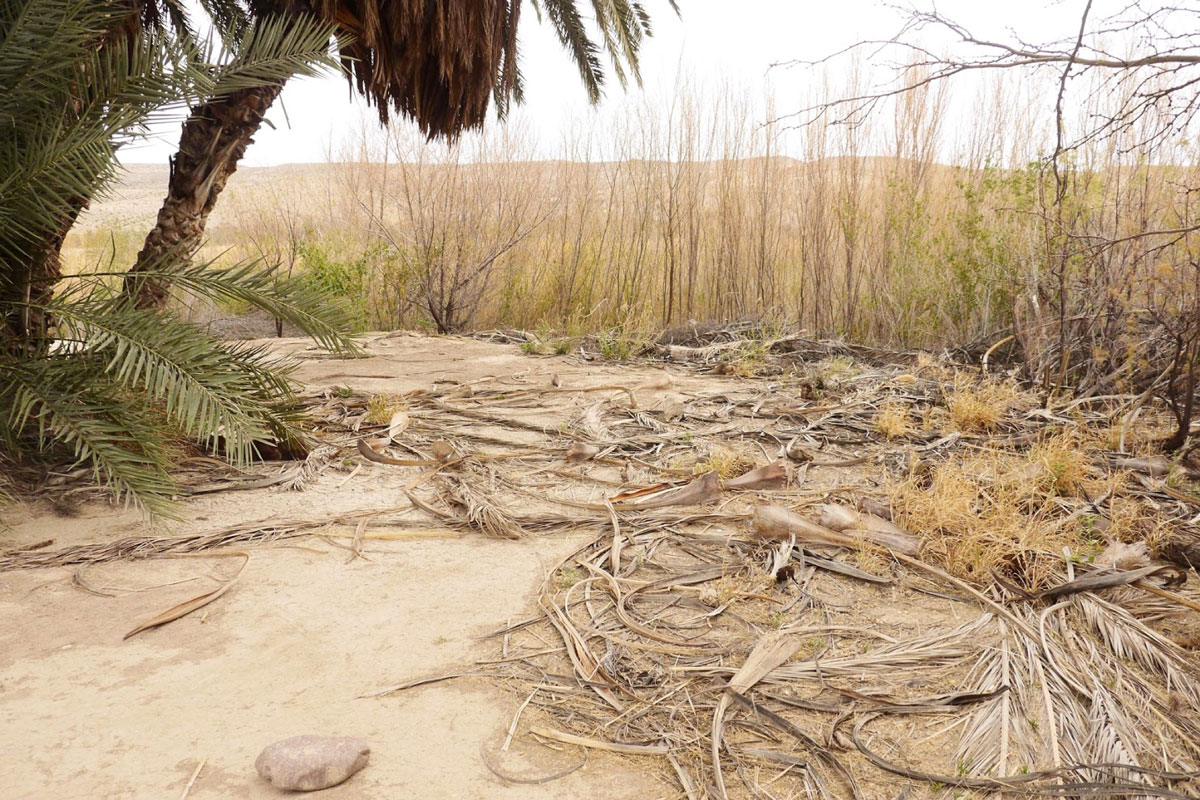
Friday, March 27, 2020
The virulence pestilence 1353
“When the years had reached the tale of one thousand three hundred and forty-eight in the illustrious city of Florence, the fairest of all the cities of Italy, there made its appearance that deadly pestilence, which, whether disseminated by the influence of the celestial bodies, or sent upon us mortals by God in His just wrath by way of retribution for our iniquities, had had its origin some years before in the East, whence, after destroying an innumerable multitude of living beings, it had propagated itself without respite from place to place, and so, calamitously, had spread into the West. Despite all that human wisdom and forethought could devise to avert it the doleful effects of the pestilence began to be horribly apparent by symptoms that shewed as if miraculous.
Moreover, the virulence of the pest was the greater by reason that intercourse was apt to convey it from the sick to the whole, just as fire devours things dry or greasy when they are brought close to it. Any that touched the cloth of the sick or aught else that had been touched or used by them, seemed thereby to contract the disease. I say, then, that such was the energy of the contagion of the said pestilence, that it was not merely propagated from man to man but, what is much more startling, it was frequently observed, that things which had belonged to one sick or dead of the disease, if touched by some other living creature, not of the human species but of the cows, pigs, sheep, goats, dogs, cats, were not merely of sickening, but of an almost instantaneous death.
In this extremity of our city’s suffering and tribulation the venerable authority of laws, human and divine, was abased and all but totally dissolved, most of whom, like the rest of the citizens, were either dead or sick, or so hard bested for servants that they were unable to execute any office; whereby every man was free to do what was right in his own eyes”.
The Decameron by Giovanni Boccaccio*
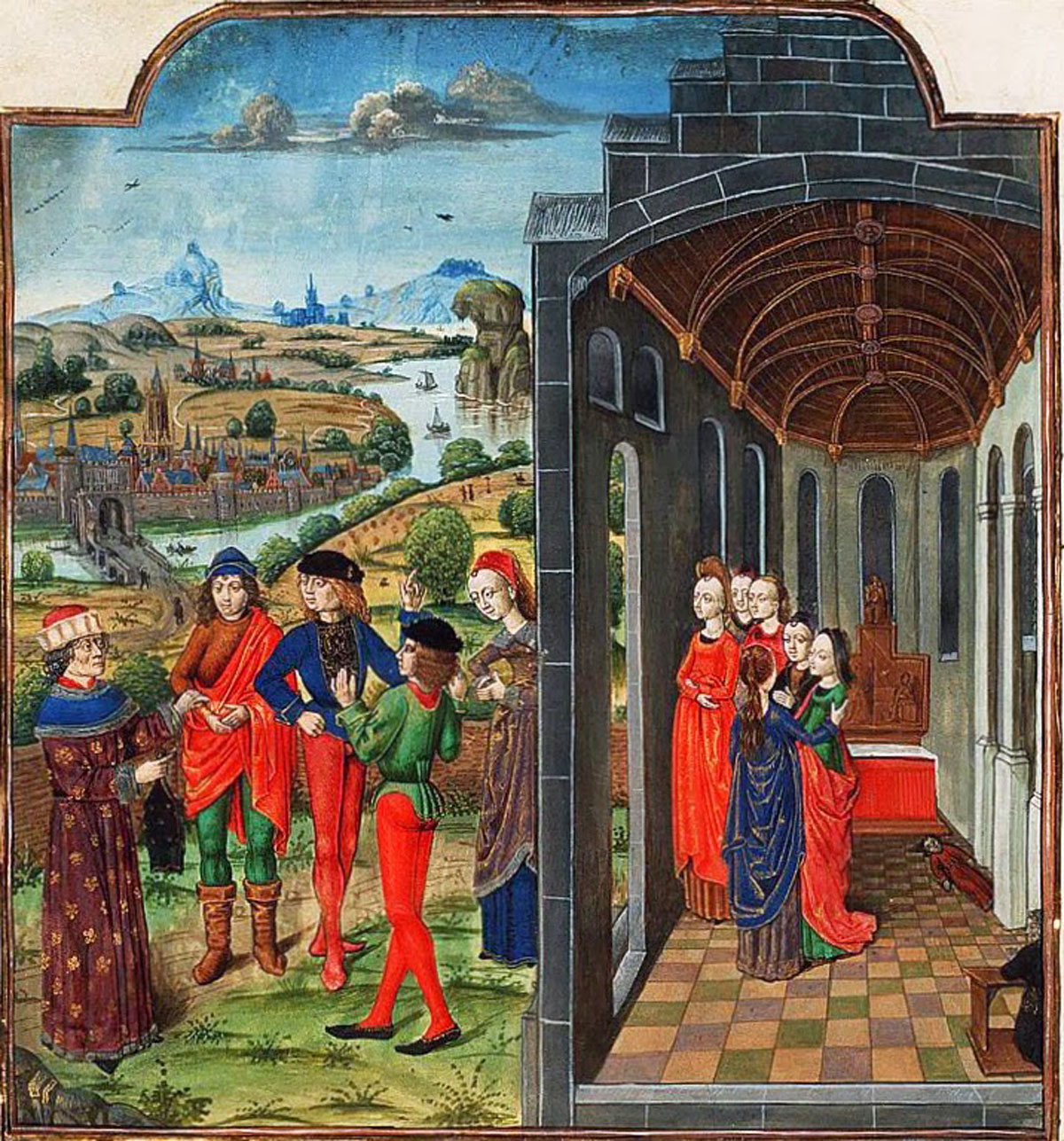
- *The Decameron, by the 14th-century Italian author Giovanni Boccaccio, was written during the plague that devastated Europe from 1347 to 1351. The book is comprised of tales told by a group of seven young women and three young men sheltering in a secluded villa outside Florence to escape the Black Death.
Thursday, March 26, 2020
The friend as the future
Goda,
Some months ago I had the most amazing dream. The world was crumbling, large pieces of land were being pulled down into the abyss, clouds fell down like cheese and exploded hitting the ground. A kind of epic scenography, one that could be expected from the Ibrahimian religions. You could feel the body of a terrestrial world in locomotion, without the surge of friends, or information, or lost saigas... But somehow in the dream no one had fear. People were calm and curious, feeling embedded, just being there. Comfort with the radical state of entropy? Or a sense of radical acceptance of global restructuring? It struck me as I was recently reading about the burning of books in 213BC, and thinking “what does it mean to read the fire of books”? How to read the affects of a perishing moment that are experienced across the imaginary fields? How to sleepwalk at the edge of the world imagined centuries ago by other people?
Yours,
Sina
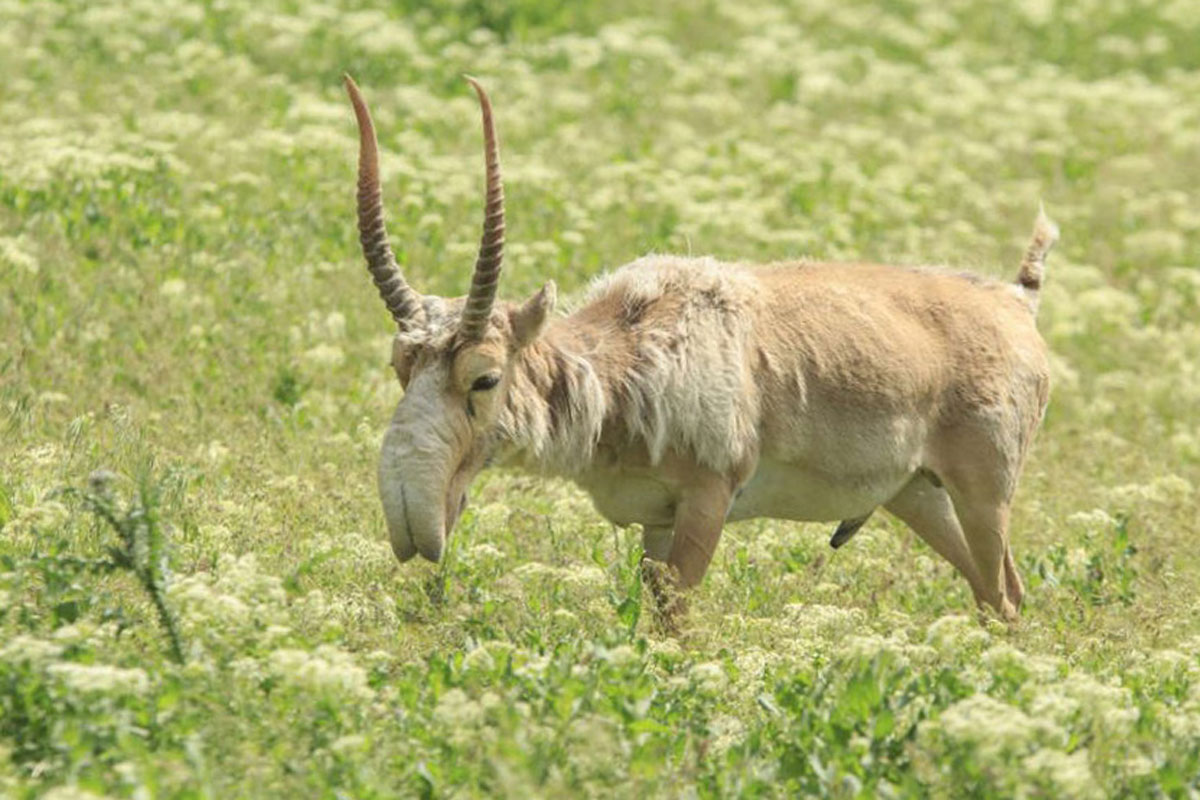
PS: In Quran, the apocalyptic moment is defined by the ending of friendship: [44:41] “The day on which a friend shall not avail (his) friend aught, nor shall they be helped”. [29:22] & [42:31] “Ye cannot escape in the earth, for beside Allah ye have no protecting friend nor any helper.”
Wednesday, March 25, 2020
The extinct dreamhunters’ fish

Recently, this ancient taimen — a fish from the salmon family — was discovered in a special container buried in the saltiest part of the Caspian Sea. Between the 7th and the 10th century, the nomadic Khazars ruled the territory between the Caspian and the Black Seas, the vast steppes stretching from Central Asia to the Caucasus, Crimea, southern Ukraine, and the upper Volga. The people there possibly lived by the laws of ethnic and religious diversity and the wisdom encoded in dreams, with dreamhunting – an advanced religious practice - being cultivated by a sect guided by the most talented and respected dreamhunter and poet Princess Ateh. Yet, the entire kingdom with its towns and settlements disappeared just as the taimen did. Its human and non-human inhabitants were dispersed under the most enigmatic circumstances. The fish portrayed here remained almost undamaged because of a special fermentation technique, which the Khazars called ‘1000 years of fish’. It assured them that their food would be preserved in case of a global disaster and the extinction of the species. In fact, the taimen has been extinct since 1946. Even this fermentation technique has become extinct. However, we know that the container in which this fish was found was kept for the wedding dinner of Princess Ateh. Unfortunately, the princess got lost in history before she got married.
Tuesday, March 24, 2020
A screw from the USSR
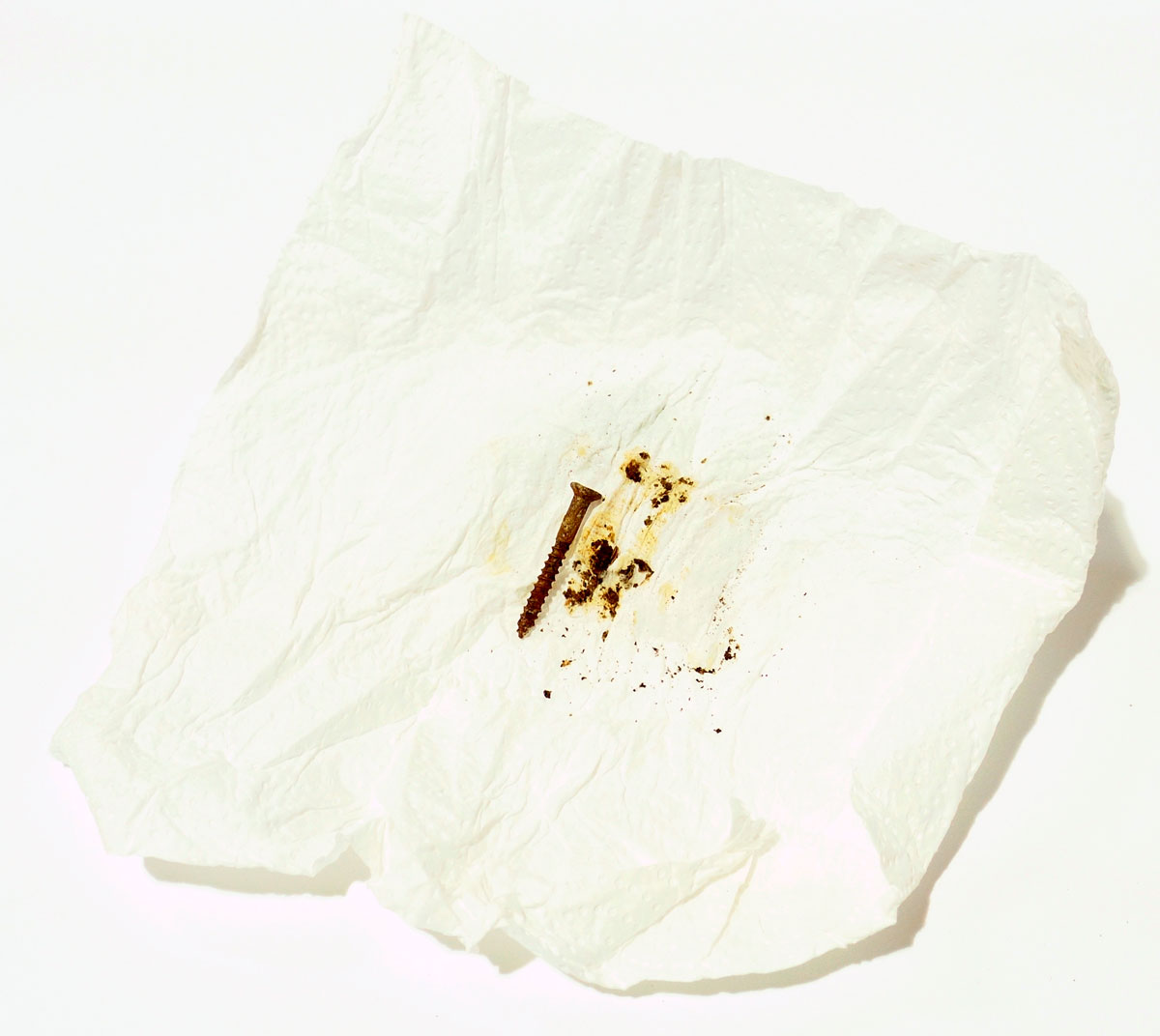
I discovered this object while reading page 103 of Milorad Pavić’s Dictionary of the Khazars, where he tells the story about archeologist Dr. Isailo Suk, who woke up one morning with an ancient key in his mouth. At that moment I was chewing on the bread baked by my grandfather, and felt a slight pain in my mouth. I inserted two fingers and pulled out this screw, which turned out to have been made and used for military machinery in the USSR, the country which I was born in and which does not exist anymore. My grandfather, who is now too old to enjoy most of the pleasures in life, still bakes bread with a recipe learned in his youth while working in a bread factory – the only workplace in the postwar Soviet Union where one could be sure to avoid starvation.
Monday, March 23, 2020
Nomadic war machine
We are at the end of 14th century in Transoxiana or ما وراء النهر, beyond the riverine lands of Amu Darya and Syr Darya, watching the expedition of the last nomadic empire. They say hello by warning: “We build towers of our enemy heads!” And like any nomadic agents, get fully absorbed into the body of the cultures that they subject even faster than they overtake them. It is Timur, that Eurasian dream-hunter, the soldier of fortune, rider of the forces of nature, cultural pollinator, expeditor of transcontinental trade, and facilitator of plague. The Black Death was not possible without the flow of humans and animals that increased rapidly by the establishment of the Timurid Empire. A nomad himself, Timur constructed a “war machine” against other nomads, and obliged to “erect a State apparatus [as the] form of appropriation of that machine”*. Yet, it was a mini Renaissance for itself, when crafty metalwork was developed, enigmatic geometric architecture built, and Chinese rice adapted in Western Asia, among other things. World-conquering and worlding became indistinguishable.**
And that made me to join with Tamburlaine; For he is gross and like the massy earth That moves not upwards, nor by princely deeds.***
Sunday, March 22, 2020
Serpents in a dream
Sina,
Last night I had a dream where on my window I had a plant with snakes in place of branches, lively and slick they squirmed making a squeaky sound, like old rusty bed springs which don't let you rotate in your sleep. I came closer and understood that the snakes were hungry. I then fed them with white worms placing them on the top of my finger one by one. I was slightly frightened, yet I knew I was doing the right thing.
Goda

Serpents are proof against fire, they can poison all apples in a tree, poison water in a well, killing anyone who drinks from it. They can survive in flames and put a fire out.
- *Image from The Aberdeen Bestiary (12th century)
Saturday, March 21, 2020
Have you had archetypical dreams recently?
Artaud’s plague
Antonin Artaud, that vampiric schizoid deviant in existential exile, was interested in plague-ridden dreams. He was not just in exile but in “an extravagant departure from the history of being.” * He wanted to deliberately stay in the state of horrible energy, of necessary cruelty and delirium. For him, the audience is a witness of an apocalyptic spectacle, the stage is a ravage, and the text is to be violated by the plagued organs. The possibility of a theatre or art as a place where both the spectator and the actor are entrapped, rather than protected from each other, is an Artaudian tradition. He rejected any psychological formation and aesthetic distancing, and constructed a hermetic, complete, and inhuman actor/artwork. A “monster,” which is infected and infects the viewer.
- *Jason Bahbak Mohaghegh, Insurgent, Poet, Mystic, Sectarian: The Four Masks of an Eastern Postmodernism, 2015
- **Produced by Videopolis; performed by: J. Pat Miller, Anda Korsts; 1979; source: mediaburn.org
Friday, March 20, 2020
How do our ancestors write about the viral?
Mesopotamian unworldly powers
The Mesopotamians faced the numinous in the things themselves. The numinous is a unique experience of confrontation with power not of this world*. In Mesopotamia, chaos-monsters were immanent, not located before or after the time of the peaceful or systematic world. The Mesopotamians knew that they are not determined but engendered by chaos-monsters or deities. Therefore, they had no idea of transcendence in terms of salvation nor doom. Yet, they had a very positive human response to that unworldly power. It was a reaction to the experience of that supernatural power by means of analogy, namely the invention of metaphor. In this hymn you can feel the movement from dread to fascination with the destructive evil spirit:
they are gloomy, their shadow dark, no light is in their bodies, ever they slink along covertly, walk not upright, from their claws drips bitter gall, their footprints are (full of) evil venom.**
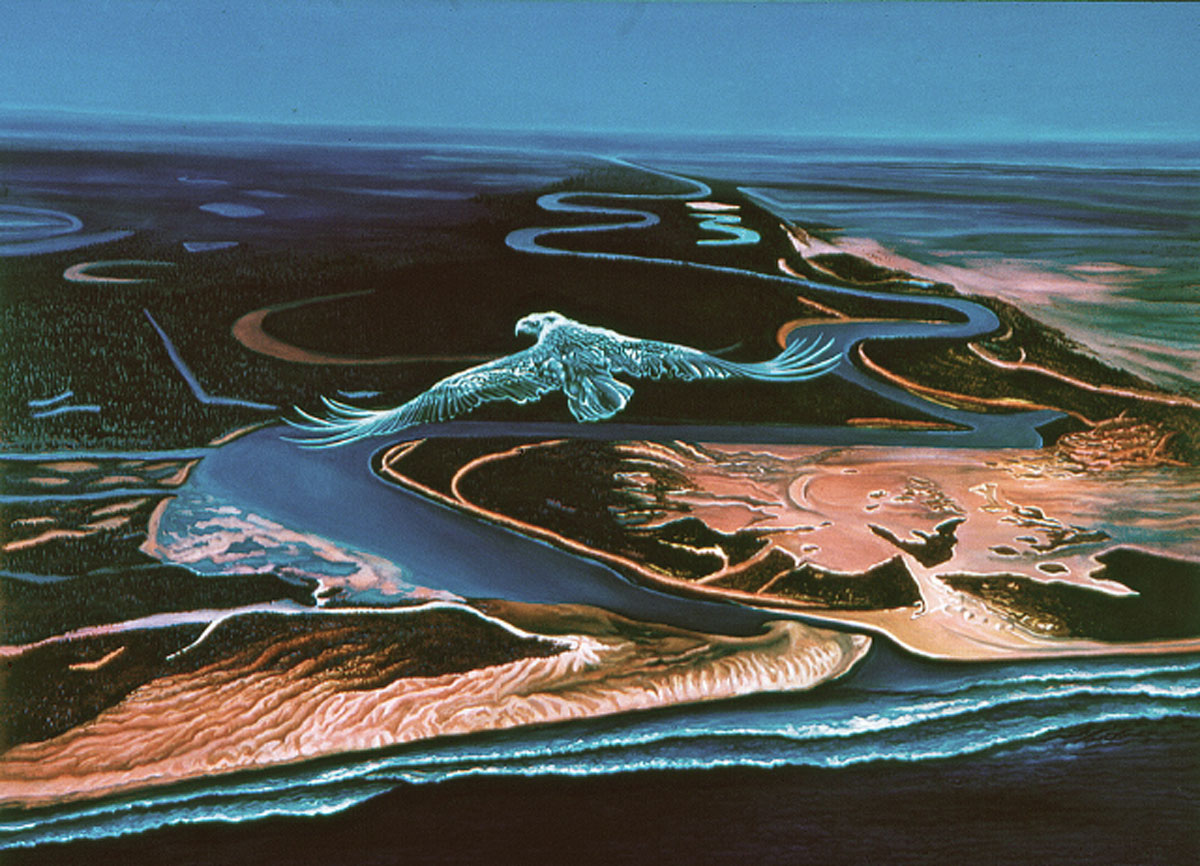
Mesopotamians, living in chronically unstable bodies*** born in the ebb and flow of two rivers Tigris and Euphrates, were the first speeders. They invented the wheel and the technology of cursive writing. That is the idea that hand and instrument scribble in the style of joined characters, in order to increase the speed of writing.
Thursday, March 19, 2020
Genesis
But what about the beginning of the world? Was it also an apocalypse?
Not so long time ago, most Europeans were convinced that the earth was created in six divinely ordered 24-hour time slots. It happened in the spectacular graphics of disaster, the trauma mothered the world, around 4000 BC, a year derived at by tracing biblical genealogies.
Genesis, in tension with its counterpart, Apocalypse, animated a messianically timed event and a figure of thought illustrating the forces of an immemorial nature. Chaos outside the system had been registered as a means for temporal orientation, once as Genesis and once as Apocalypse.
In the beginning, God created the sun, moon, stars, and oceans, then proceeded with the creatures of the air, sea, and land, ultimately followed by the appearance of the most magnificent and most complex creature: man. The first people, Adam, Eve and the animals, harmoniously shared a garden together, until the couple sinned and discovered promiscuousness and brutality, and started to eat meat. The Old Testament's timing of immanence is altogether transcendent, which means that God’s manifestation in material things is purely accidental.
But the Mesopotamians had a completely different type of encounter with the cosmic system...
Wednesday, March 18, 2020
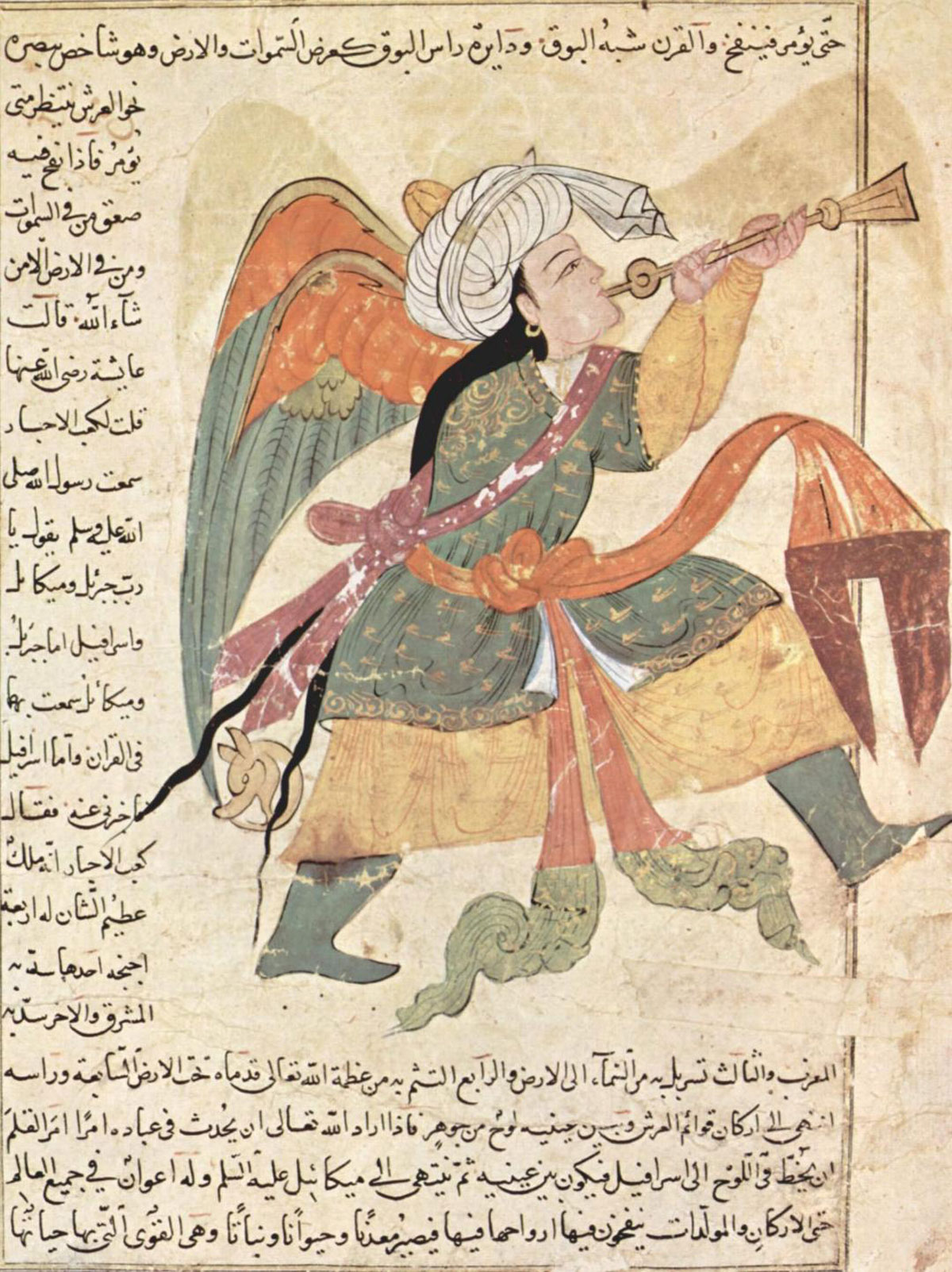
The archangel Israfil is blowing its horn to announce the end of the world. In the Islamic eschatological tradition, it is believed that the sound of Israfil's horn will be the final event of history.
c
clustered | unclusteredRetracement
Ignaas Devisch
Friday, April 3, 2020
Love
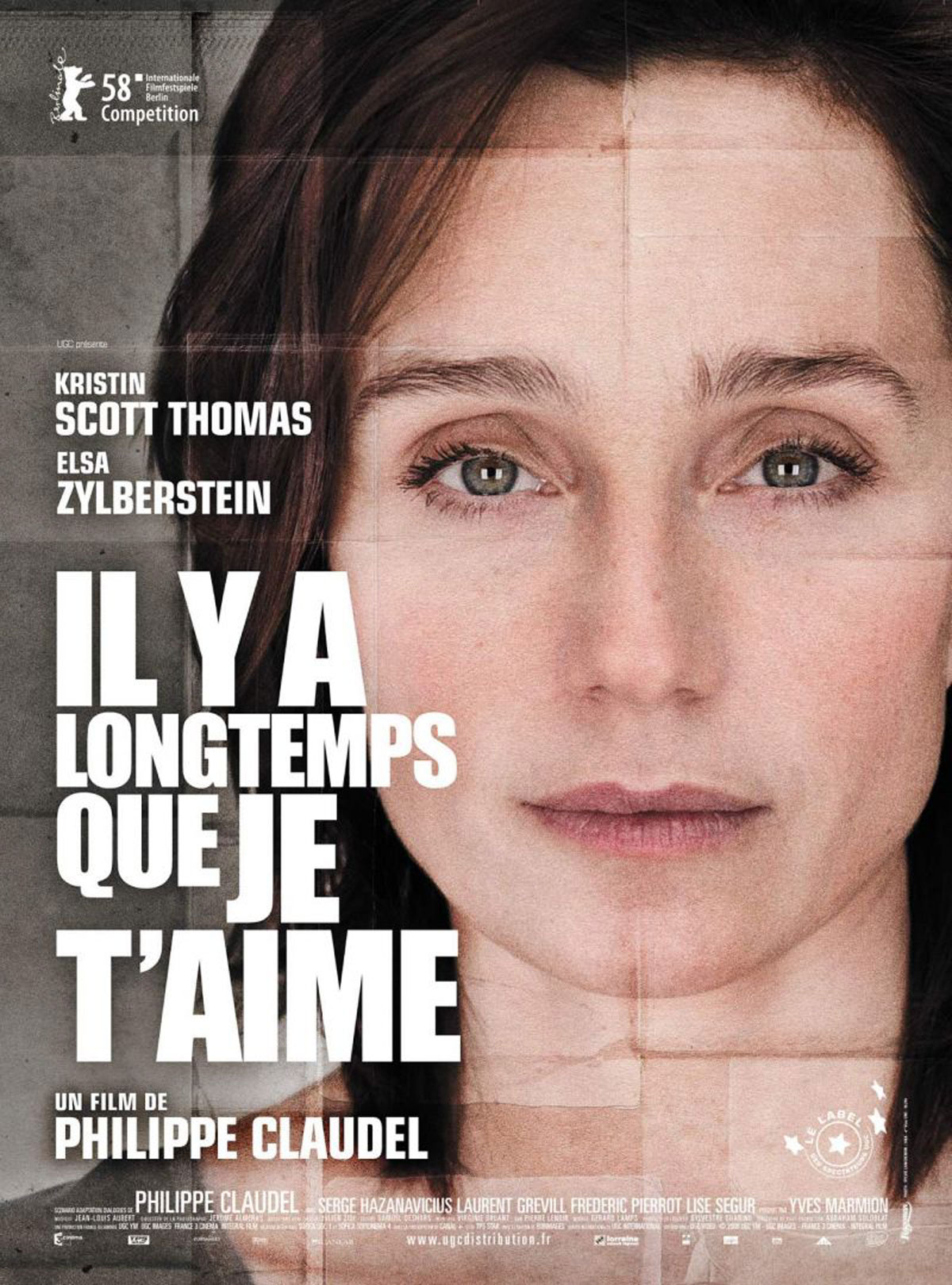
I’ve loved you so long / Il y a longtemps que je t’aime / Ti amo da molto tempo / Ich habe dich schon lange geliebt
Thursday, April 2, 2020
Silence
The streets are silent these days. But can one hear silence? Is silence a kind of noise or simply the absence of it? The sound of silence – remember Simon & Garfunkel – seems to support the idea that silence is a specific kind of not hearing anything.
Maybe silence is hearing nothing when or where you expect to hear at least something. Then silence becomes remarkable. Its non-expected character might also mark the difference between the mere being of silence and the happening of it. Sometimes we say ‘it is silent’. Then it is common. At other moments silence becomes an event: it happens as we try to catch its sound and its happening depends on the not being successful of our attempt.
The last couple of weeks, silence has become one of the most active events of public life. It does something which exceeds the mere not happening of noise. That’s what makes silence wonderful: its happening is at the same its not being something. It’s ungraspable and therefore it is.
Silence is one of the most intriguing objects of philosophical reflection.
Wednesday, April 1, 2020
Noli me tangere/mê mou haptou
Jesus said to her, “Do not touch me, for I have not yet ascended to the Father; but go to my brothers, and tell them, ‘I am ascending to my Father and your Father, to my God and your God.’” (John, 20: 17)
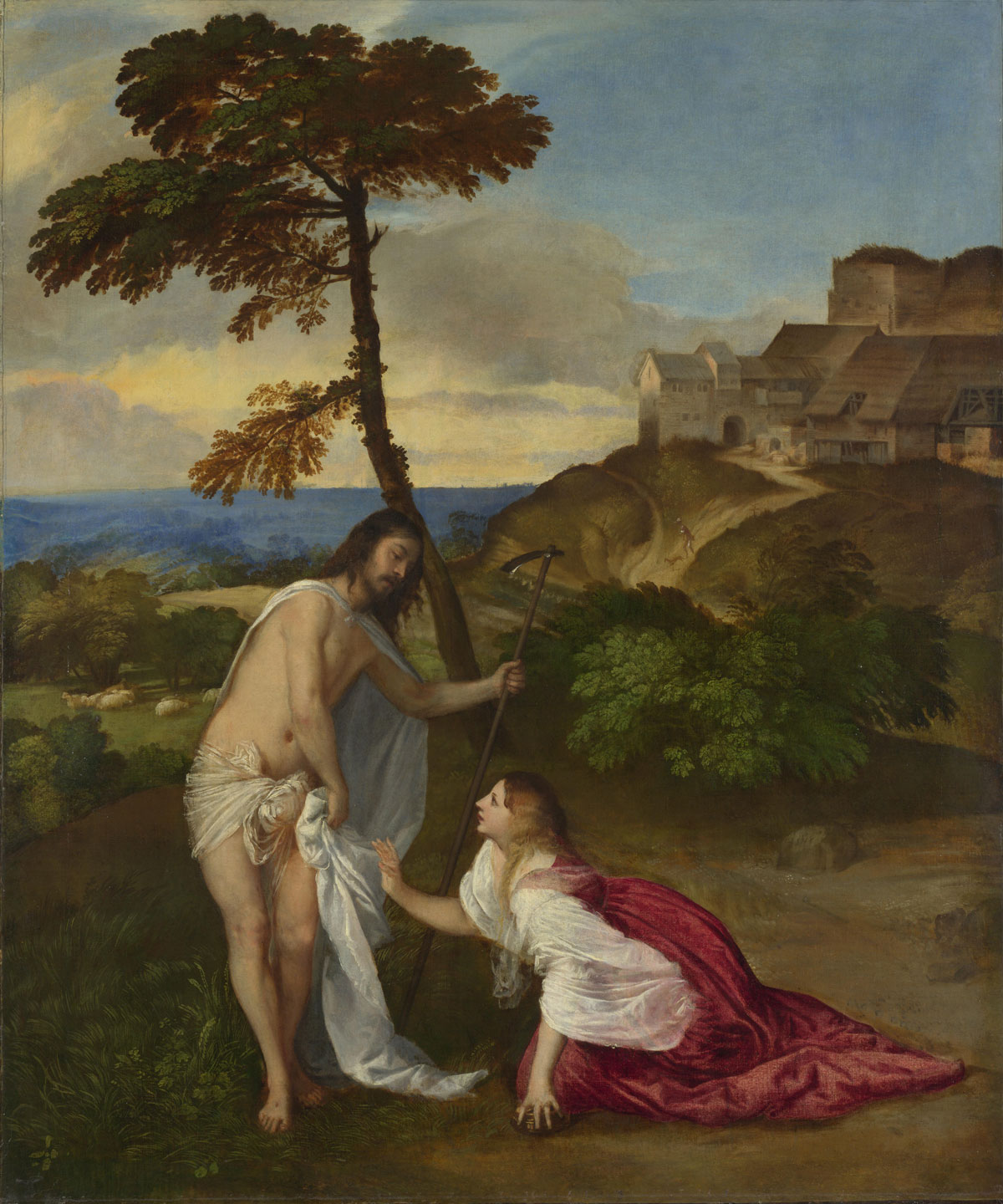
Tuesday, March 31, 2020
Oughtonomy
Today, we have the ‘freedom to make the right choices’, as Nicolas Rose would put it. In this sense, we’re still considered to be autonomous beings but it is clear that today, we cannot make use of our freedom of choice. We are supposed to trust science now, which is fine. But at the same time, we run the risk of installing a new authority which we thought we had dealt with.
In a publication from ten years ago, I called this ‘oughtonomy’ to emphasize that in this case autonomy is only possible as heteronomy. There is a choice to make and at the same time an obligation from outside.
Monday, March 30, 2020
Is the revolution coming?

Is this an era of revolution as some say? Before we start a new glorious revolution, let us at least reflect on what Saint-Just, one of the Jacobin leaders in the French First Republic and a leading figure during La Terreur, famously stated in “Pour un gouvernement révolutionnaire” (October 10, 1793):
Les lois sont révolutionnaires, ceux qui les exécutent ne le sont pas. The laws are revolutionary, those executing them are not.
Saint-Just means we are never fully ready for a revolution. In his eyes, therefore, some of us should make revolutionary laws in order to get things done. And that’s how a revolution can get started.
I hope we won’t go through a revolution. And if we do, let our leaders not be inspired by Saint-Just.
Sunday, March 29, 2020
Numbers
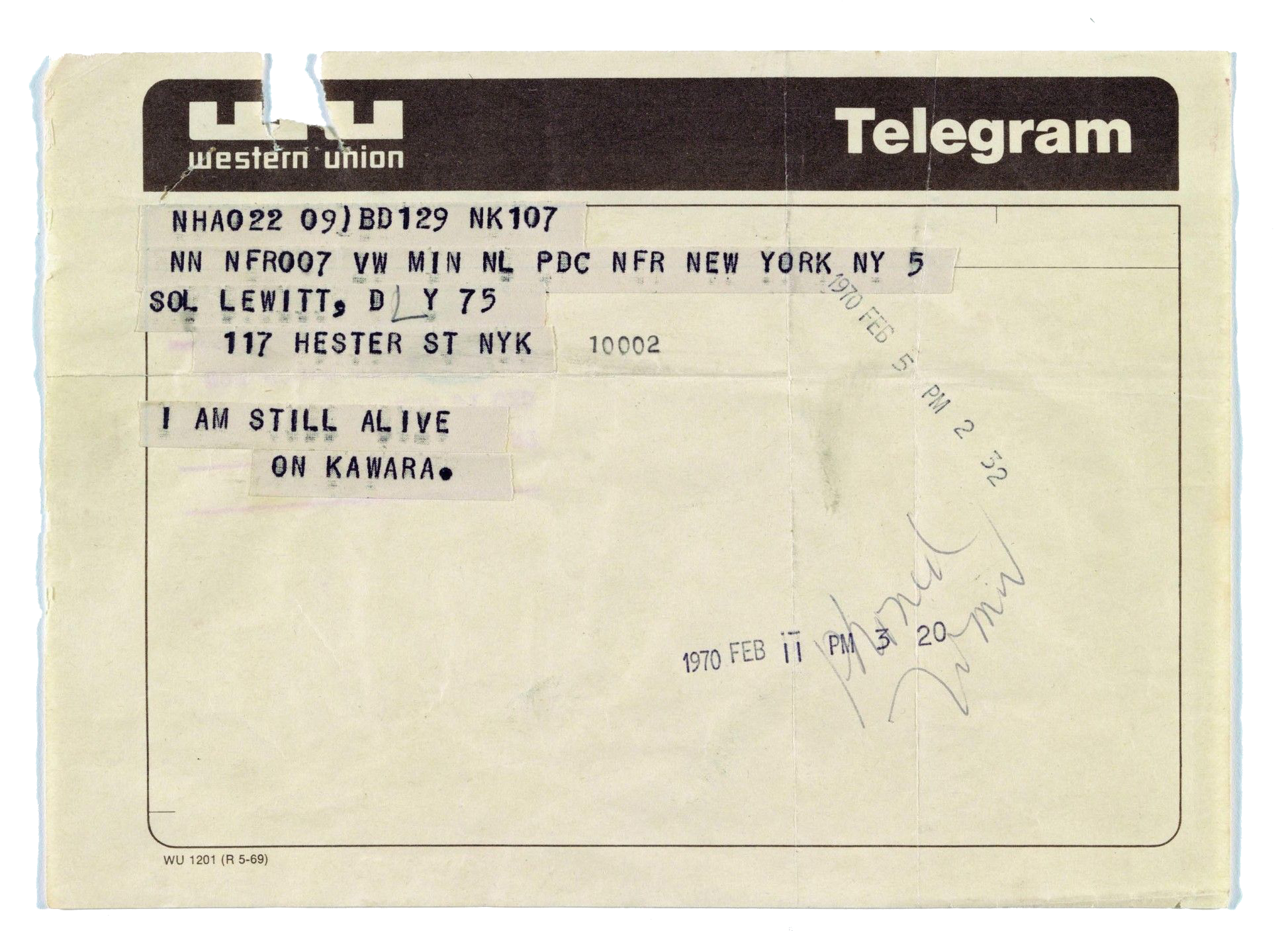
Day by day, we are counting the numbers: x people died, x people infected. How to relate ourselves to these numbers? What does it mean that 100.000 people are infected? Is this 100.000 times worse than 1 person? Or is it the other way round: if numbers are too big to imagine, do we still even care about them? As Stalin said: a single death is a tragedy; a million deaths is a statistic. This statement is the most cynic in history, I guess.
It’s better to take a closer look at an artist who worked with nothing but numbers: On Kawara and his so-called date paintings. On Kawara used to send telegrams to various people bearing the message ‘I AM STILL ALIVE’.
Maybe this is what we ought to do today? We are still alive. And our number is massive.
Saturday, March 28, 2020
Humour
Something in between The Handmaid’s Tale and Black Mirror. That is how I would describe walking into public space nowadays. Despite the sun the world seems grey and depressed. Not only do people take a distance – which is a good thing –, they also seem to be afraid of smiling at each other. As if it is forbidden to laugh out loud about a joke or a funny situation. Has feeling bad become a moral obligation?
A sense of humour is crucial in the midst of a crisis. To survive. To keep going on. To work through negative experiences. When I’m in a crisis, my first reaction is to make a joke of my own misery. It helps me to leave it behind me.
For sure, in a couple months, we will have a shitload of jokes about Corona. For now, we can always lean on the Simpsons.
Friday, March 27, 2020
Compearance
Compearance is a juridical concept that means becoming a defendant, appearing before a judge. It also has the general meaning of a gathering or meeting. Moreover, it is a linguistic relative of the Greek ‘parousia’, the anticipated (second) coming of the Lord in Christian religion, and thus also of ‘dies irae’, the day of the Last Judgment. The meaning of compearance circles around the appearance or arrival of something, on the one hand, and the multiplicity of that arrival, on the other. This is also why co-appearing (in French: ‘comparaître’) means that the appearing (‘paraître’) takes place never other than as ‘co’ (with).
It is sad that these days it is hard to compear. We can only hope and wait until the arrival of the other. This is an almost evangelical structure: the other is always yet to come.
Thursday, March 26, 2020
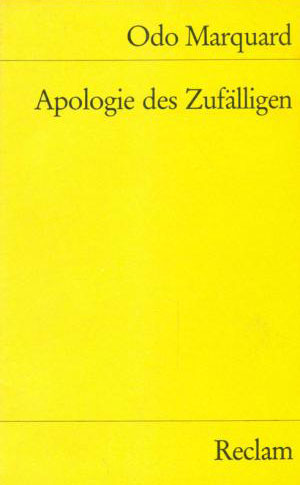
Modernity is the age of distance
Only in modernity the question of evil becomes pertinent. Once we start to reflect upon evil, German philosopher Odo Marquard writes, we take distance from it; modernity is essentially characterized by this ‘reflective distance’. Modernity is the age of distance. When things are no longer natural or obvious, we simply no longer accept them as such. If there is hunger everywhere, you acknowledge it as your condition. Only if you have sufficient food you start wondering why you would still accept moments of starvation. This is what Marquard calls ‘the law of increasing annoyance’: the more negativity (evil, pain, suffering) is eliminated, the more angry we are about the remaining negativity. If my street is full of dirt, I accept that my street is dirty; but if everything is clean, except for one or two places, I distance myself from it and the remaining dirt annoys me terribly.
Wednesday, March 25, 2020
What is left to us?
We are said to do right. But what does the modern era still have to do with right or with just measure? With the withdrawal of God, creation is thrown back increasingly on itself. Lacking any criterion or limit point, it becomes its own measure, with the proviso that in this order all measure is absent, which now will come to mean that excess comes to constitute measure. Creation can measure itself against nothing other than itself. One can therefore no longer properly speak about creation: it is now purely being that is its own measure. It is precisely for this reason that all former measures no longer hold.
The question is therefore: what is left to us? What if there is no measure at all in the modern world?
Tuesday, March 24, 2020
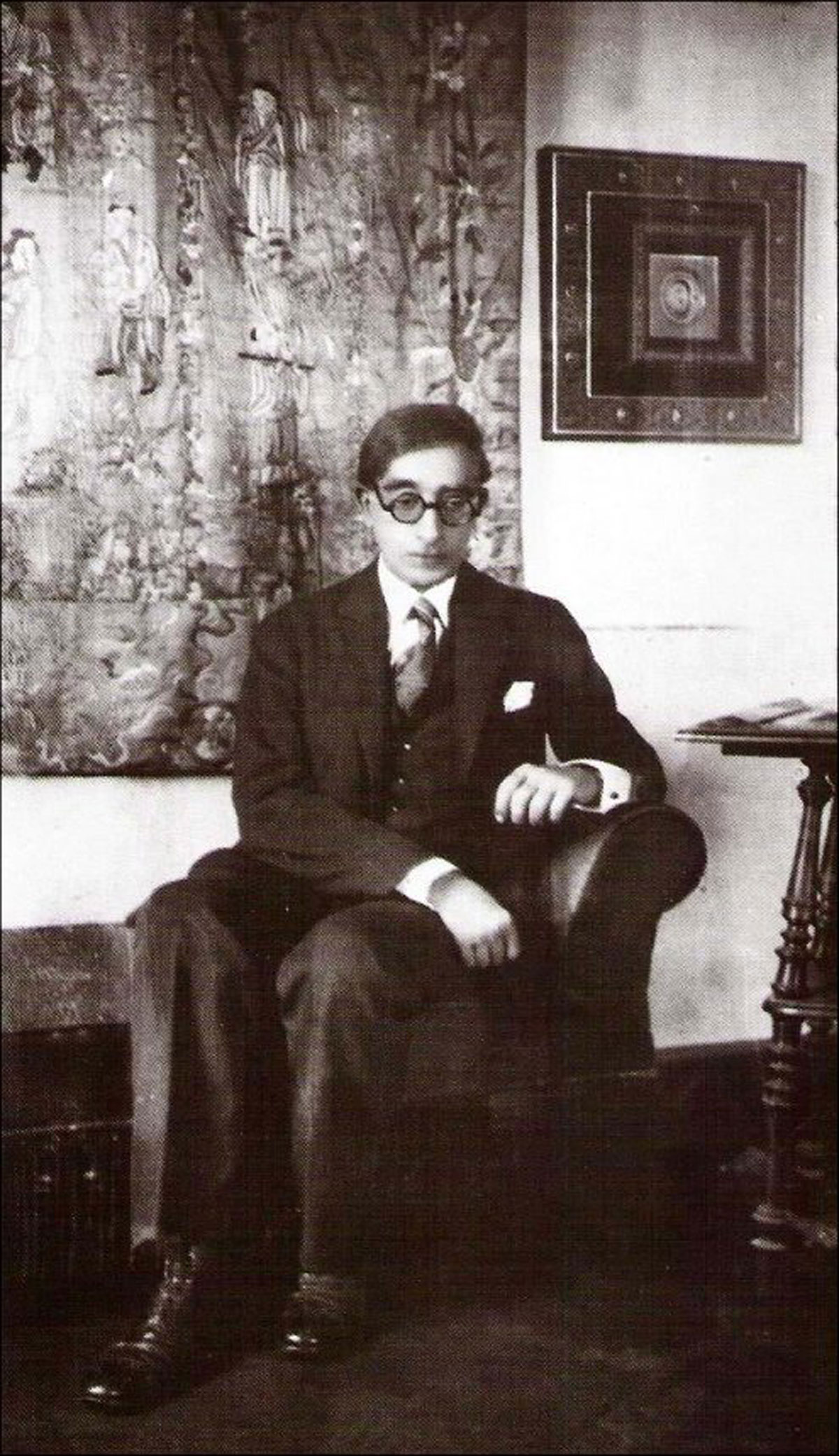
Walls
With no consideration, no pity, no shame, they have built walls around me, thick and high. And now I sit here feeling hopeless. I can’t think of anything else: this fate gnaws my mind - because I had so much to do outside. When they were building the walls, how could I not have noticed! But I never heard the builders, not a sound. Imperceptibly they have closed me off from the outside world.
Konstantinos Kavafis (1897)
Monday, March 23, 2020
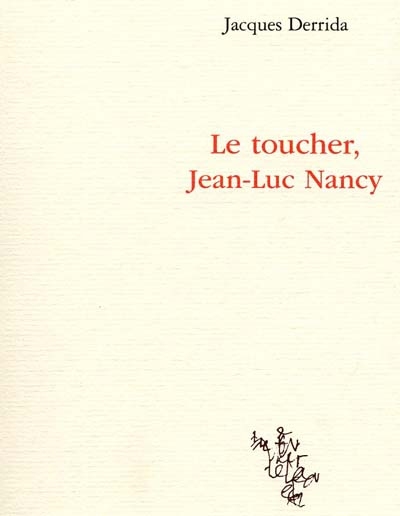
While everyone is asking how Covid-19 will change the world, we should better ask how the world is today. How to understand world if we do no longer accept a creator giving sense to the world from outside? The world is only as the local taking place of all existences. We touch each other and are touched by things and traces of others in the world. Because the world happens all the time, there is touching. In his book Le toucher. Jean-Luc Nancy, Jacques Derrida wrote about what he called ‘humainisme’ – hard to translate as it is a pun between ‘humanisme’ (humanism) and main (hand). Touching is what makes the world as world and what makes us worldly beings.
Sunday, March 22, 2020
The sun
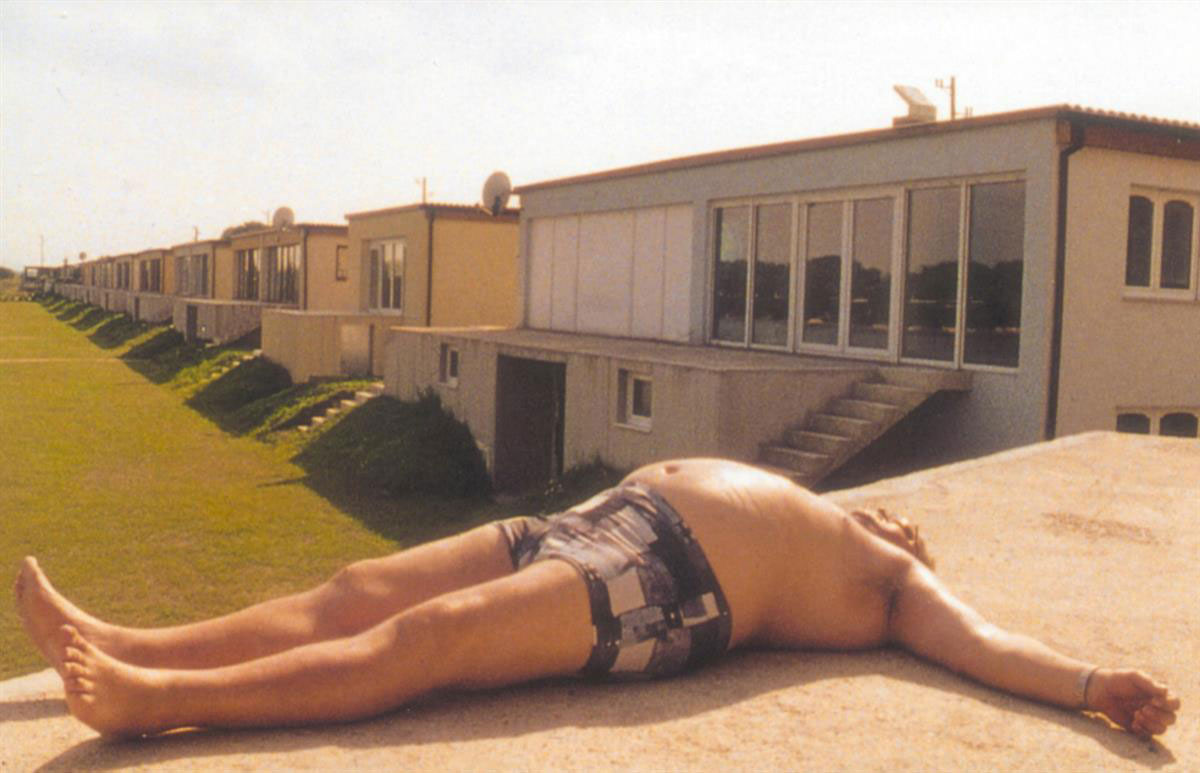
Today, the sun was shining – the absurdity of sunshine. People die and the sun is shining. Why is it always raining in Hollywood when people die? In the movie Hundstage from Ulrich Seidl, the sun is burning. And people experience the most tragic emotions. The sun makes it even worse. Death is unbearable when the sun is shining.
Saturday, March 21, 2020
Looking backwards
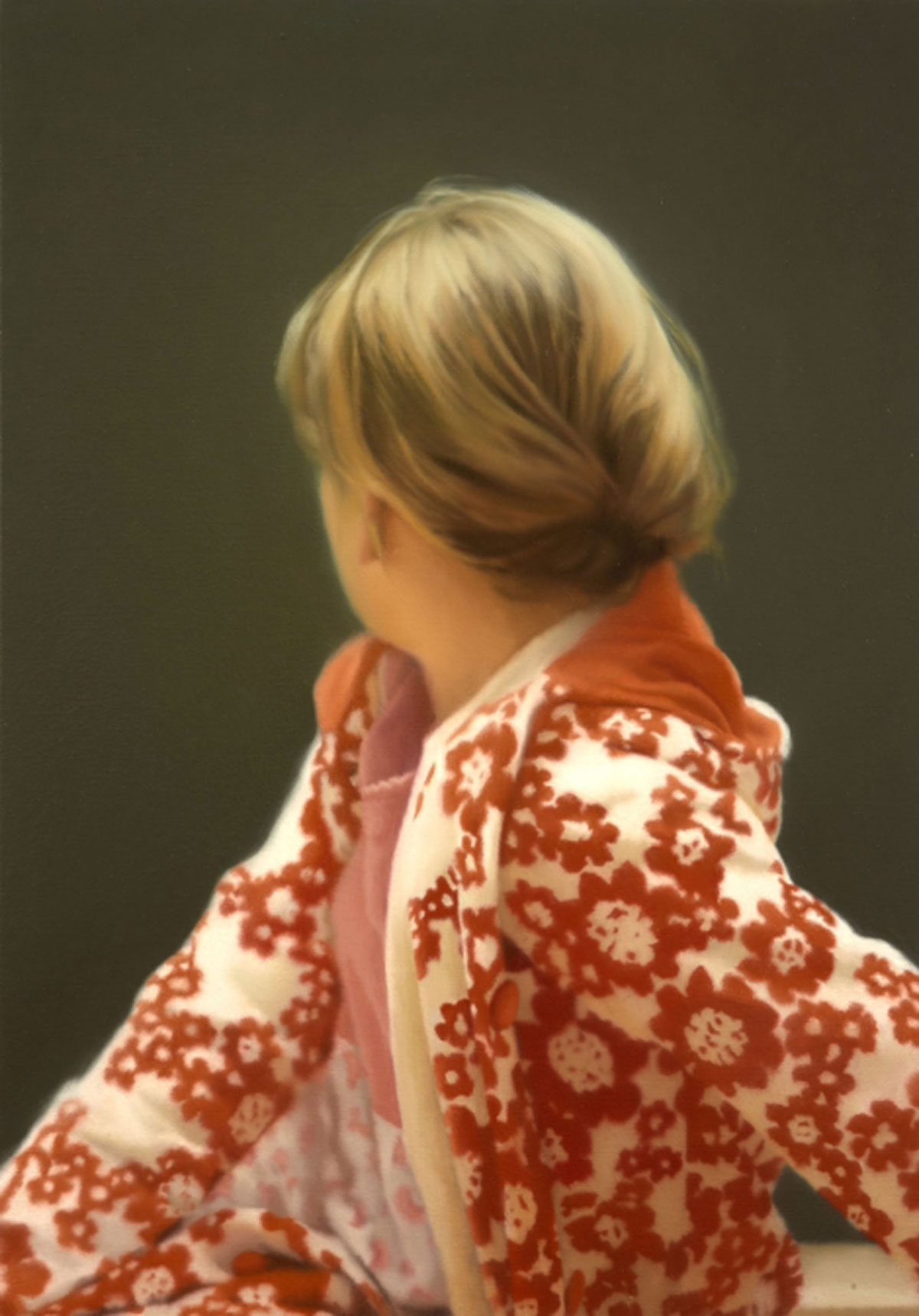
In the midst of a crisis, one can do at least two things: to look forward or to look backwards. Looking backwards, we often turn to objects of the past, reflecting how things used to be. Think of paintings or portraits.
Normally, portraits look us in the face and it’s up to the spectator to imagine a world behind the individual. With Betty, Gerhard Richter radically disrupts this tradition. We don’t see Betty’s face as she is looking behind. She looks at something we cannot see. Martin Heidegger would have said: the ‘painting paints’. The painting is not an object, it is an event. It does something. While regularly it is up to the spectator to let the painting enter the world, Betty herself opens up a world and at the same time leaves us on our own. We can’t see her, we can’t grasp it. It’s a mystery. Such as Covid-19. Every representation of it fails.
Friday, March 20, 2020
Sada Abe

Being locked down also means being locked up. One can get bored, irritated or excited about this. The movie In the Realm of the Senses reminds us of what it means to get excited. This Japanese ‘scandal’ movie from 1976 shows how two lovers get stuck in each other’s desire. The woman is always hungry for more and she exhausts her lover completely. She needs his love all the time and doesn’t get satisfied, until he dies after a game of strangling sex that ran out of hand. After his death she cuts off his testicles and carries them around in her kimono with a big smile on her face.
Don’t try this at home!
Thursday, March 19, 2020
Covid-19 supports MeToo
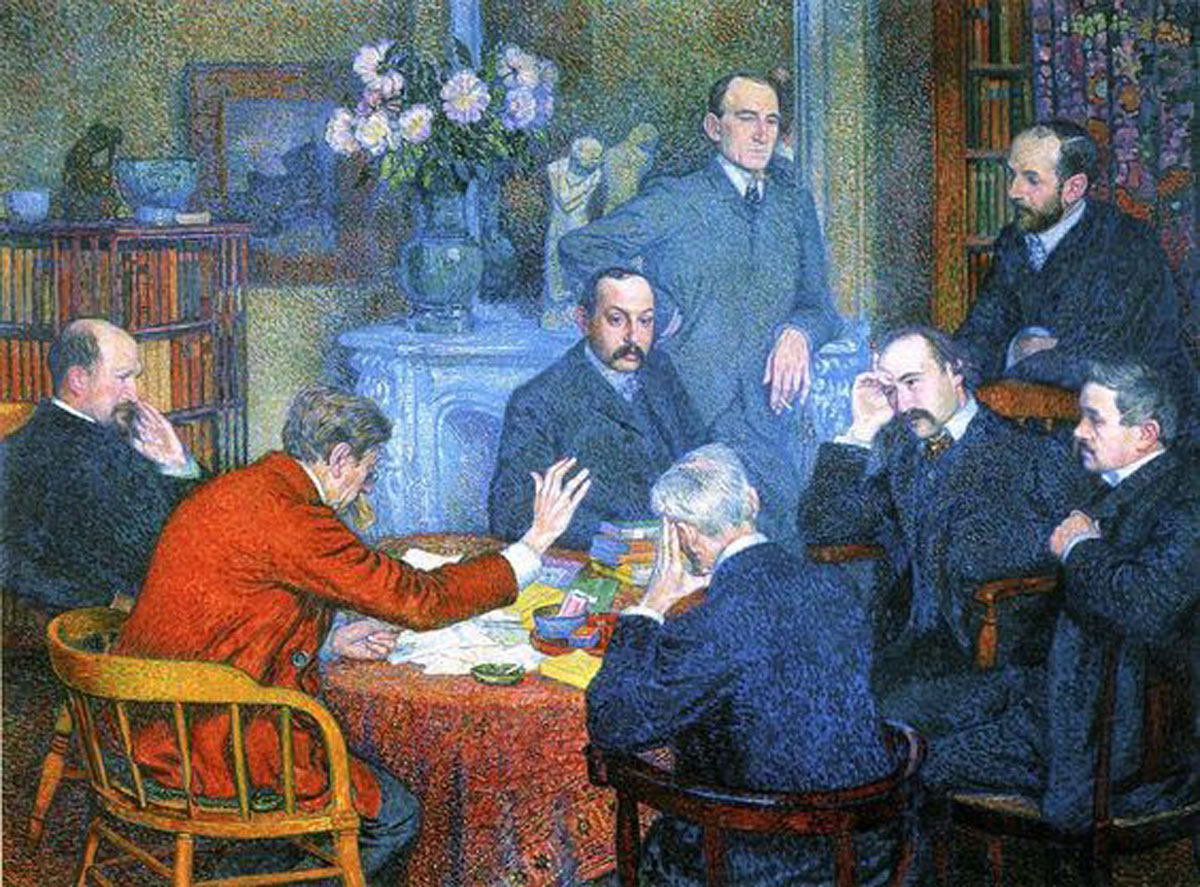
Don’t come too close is the advice.
Why wasn’t Weinstein – or were his victims – infected by Corona? Covid-19 is the perfect MeToo virus. Don’t come too close.
Looking at things from a distance. In normal times, it relates to being able to see things clearly. In the Covid-19 era, it sounds like a punishment.
Looking at things from a distance makes me think of pointillism. If you stand in front of a pointillist painting, you simply can’t discover what’s on the painting. You need to step back.
So, let’s look at each other for a while as if we are pointillist paintings. Probably, we will discover new things, new details of the persons we’ve been knowing for a long time, or a new perspective on the world in general.
Wednesday, March 18, 2020
Social distancing and existence
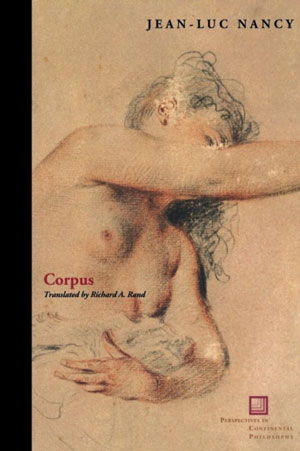
In his book Corpus Jean-Luc Nancy talks about the exposure of surfaces to one another and calls this expeausition – playing on the term ‘exposition’: ‘peau’, in French, means skin. Skin is literally exposed to contact with another skin or surface. Such exposure and such contact is in a way our world, in the same way that a product exchange between two people is. The world, Nancy concludes, stands for an ‘attouchement de toutes choses’, a touching of all with all.
The reason why the model of social distancing is not easy to swallow is that it breaks with our world. It does more than limiting interactions. It limits our being-in-the-world. We are exposed to one another and locking us up inside our houses is a different way of existing in the most basic sense of the word: ek-sistence becomes in-sistence.
d
clustered | unclusteredRetraite
Students PXL-MAD | School of Arts
Vrijdag 3 april 2020
↓ Jet Driesen
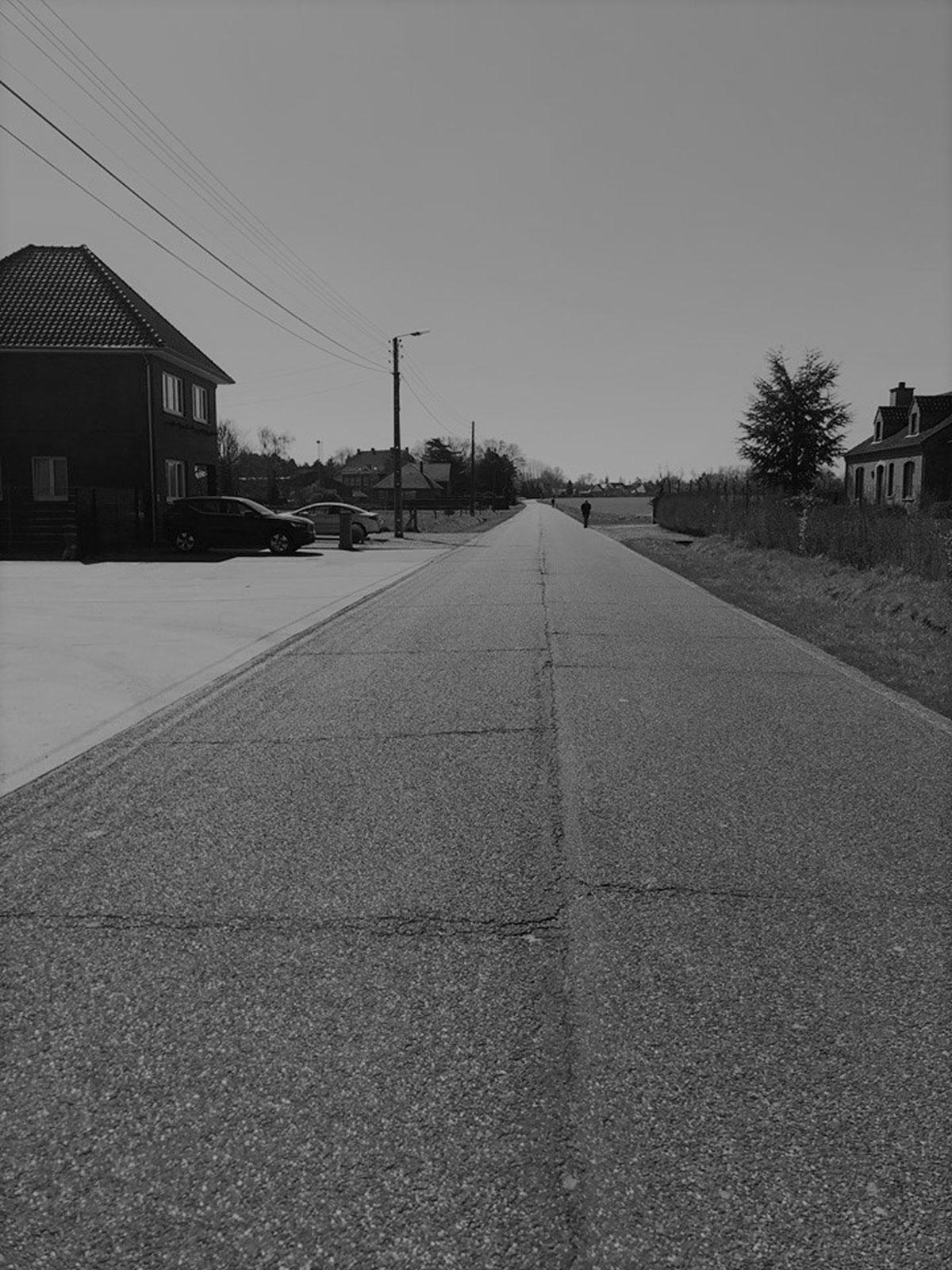
↓ Evelien Naegels
vandaag ervaar ik niets louter onverschilligheid het is niet de laatste dag we zitten er nog middenin
↓ Louise Jans
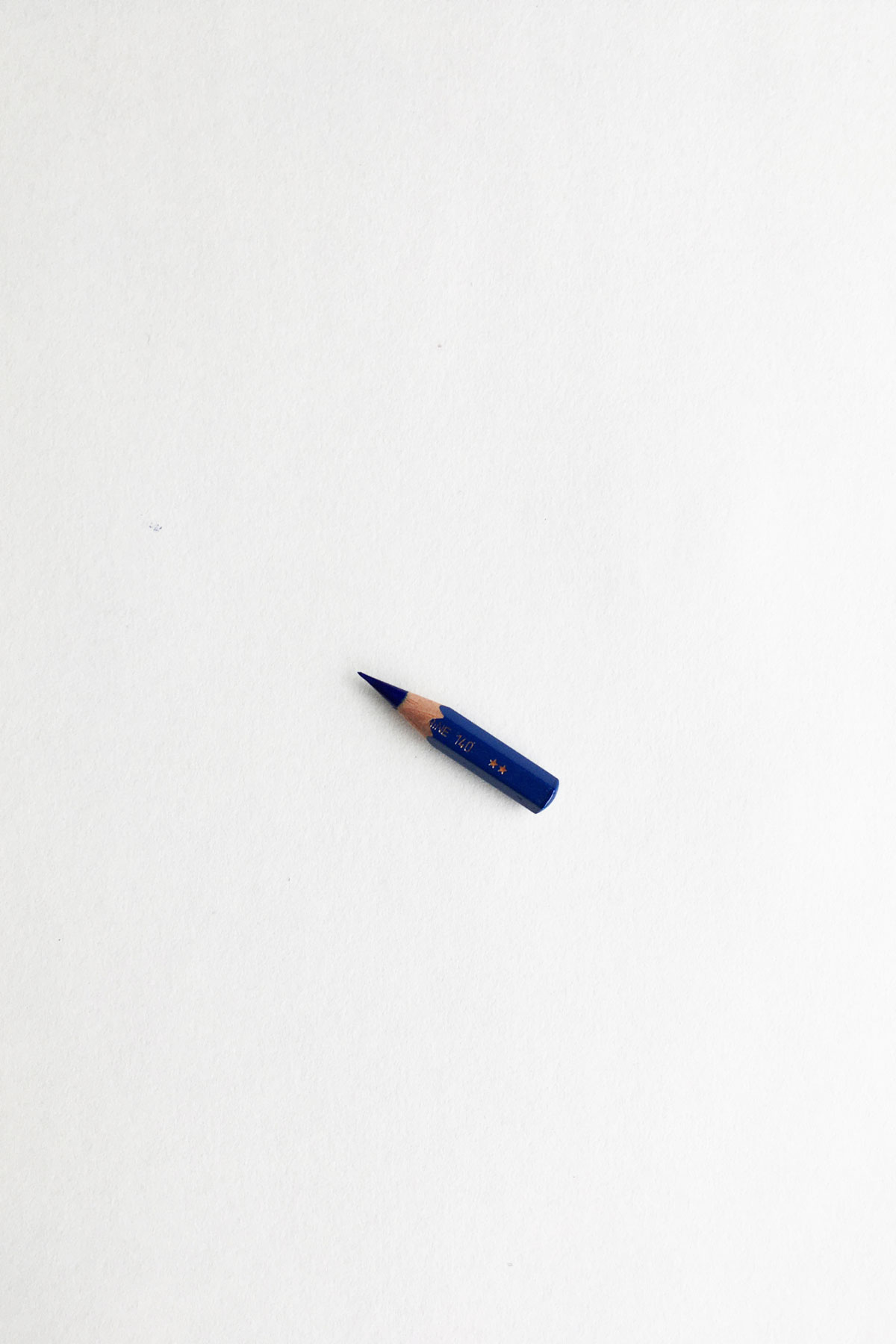
↓ Liselot Smolders
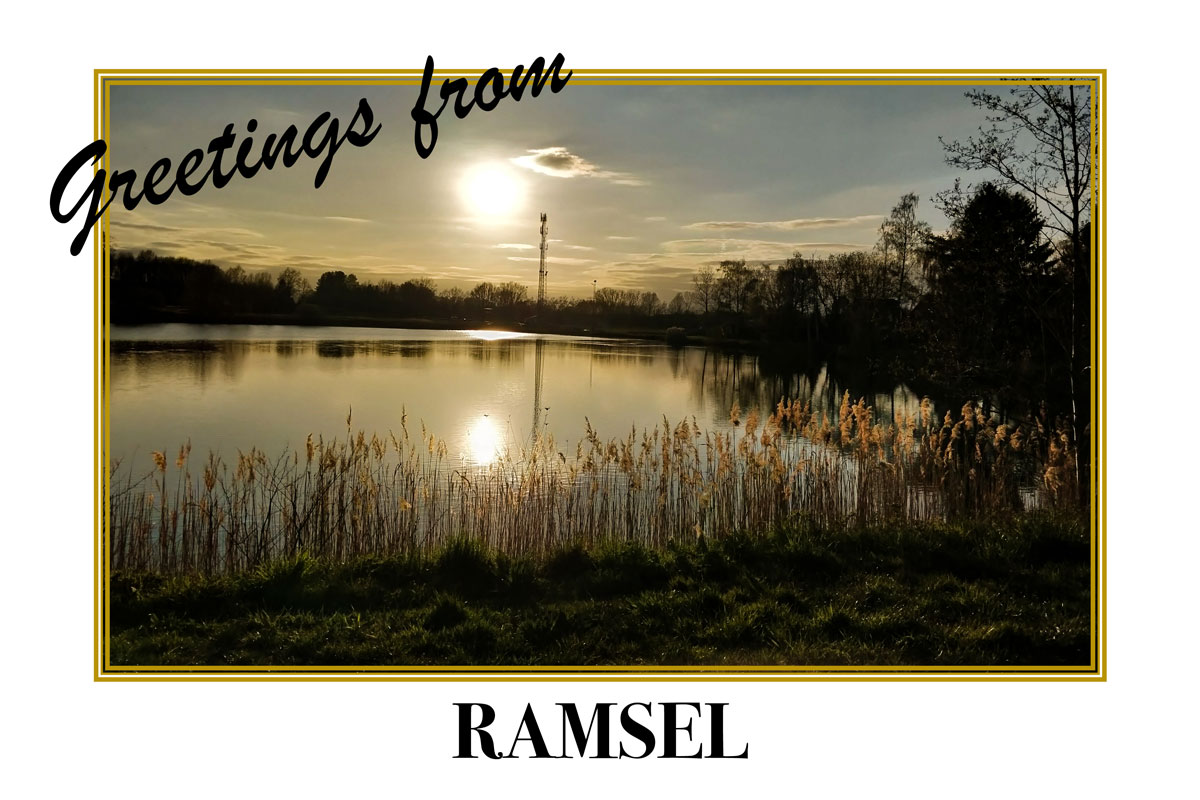
↓ Céline Mannens
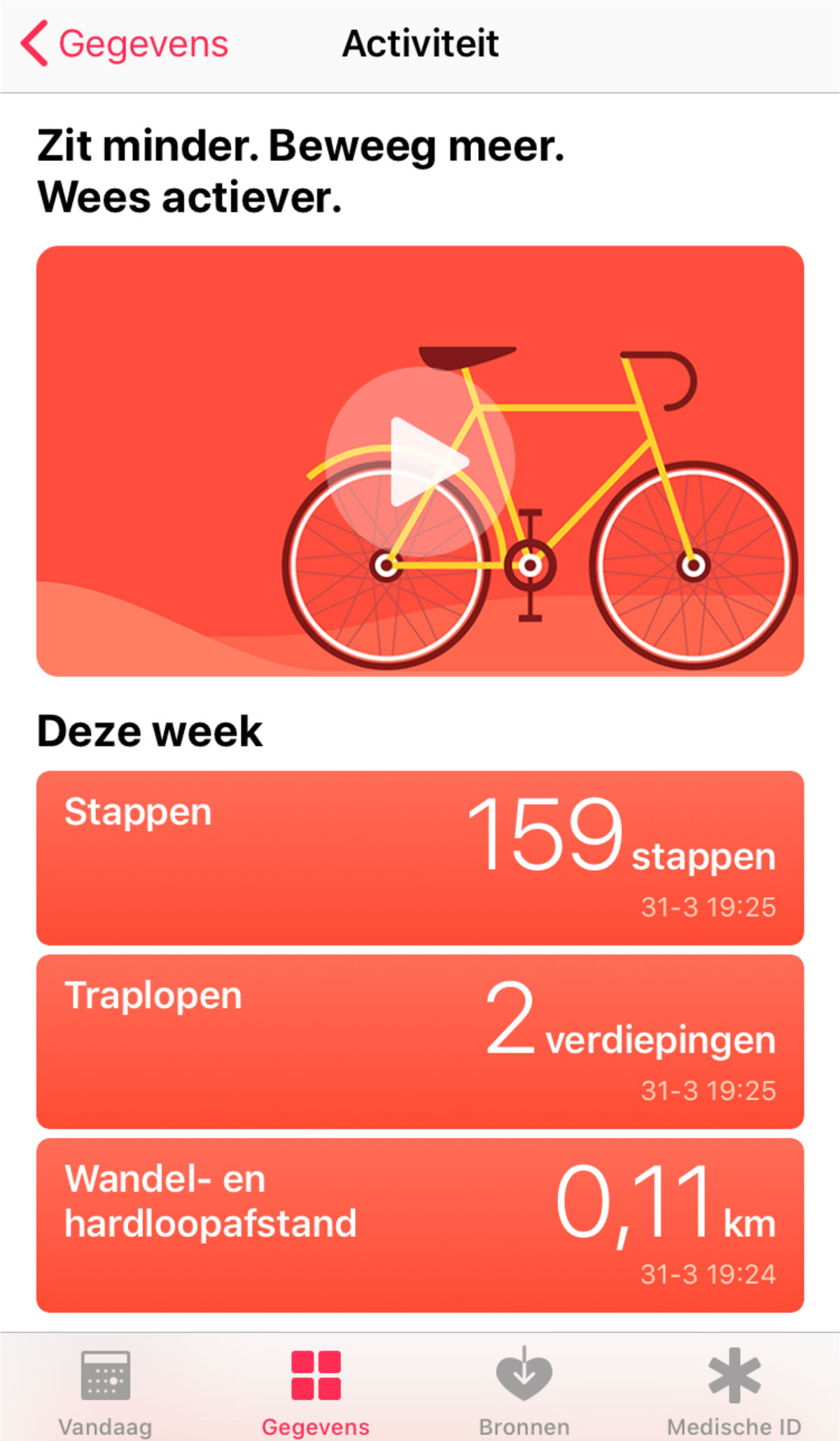
↓ Gert Duquene
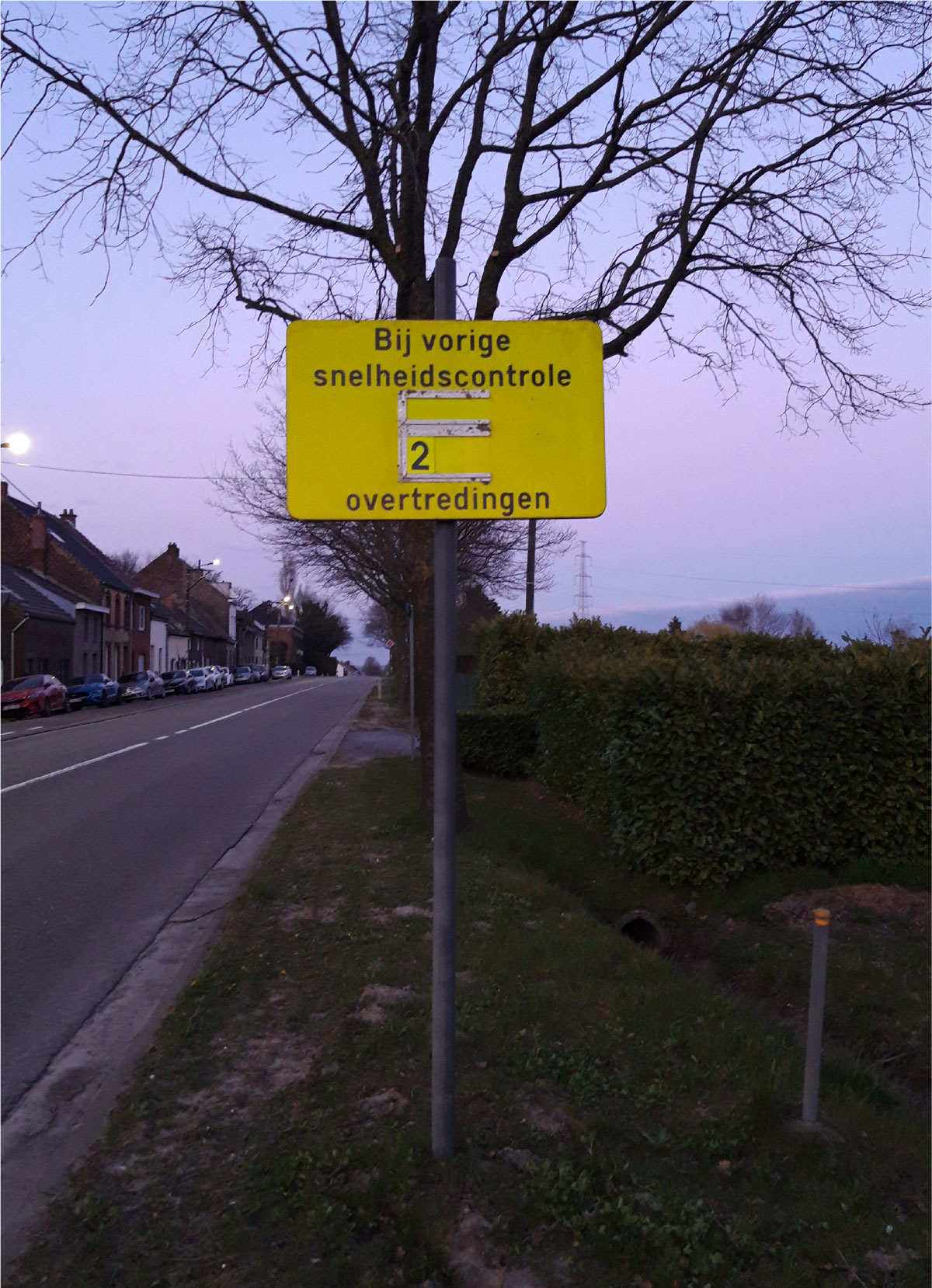
↓ Romi Paspont

↓ Veerle Klein
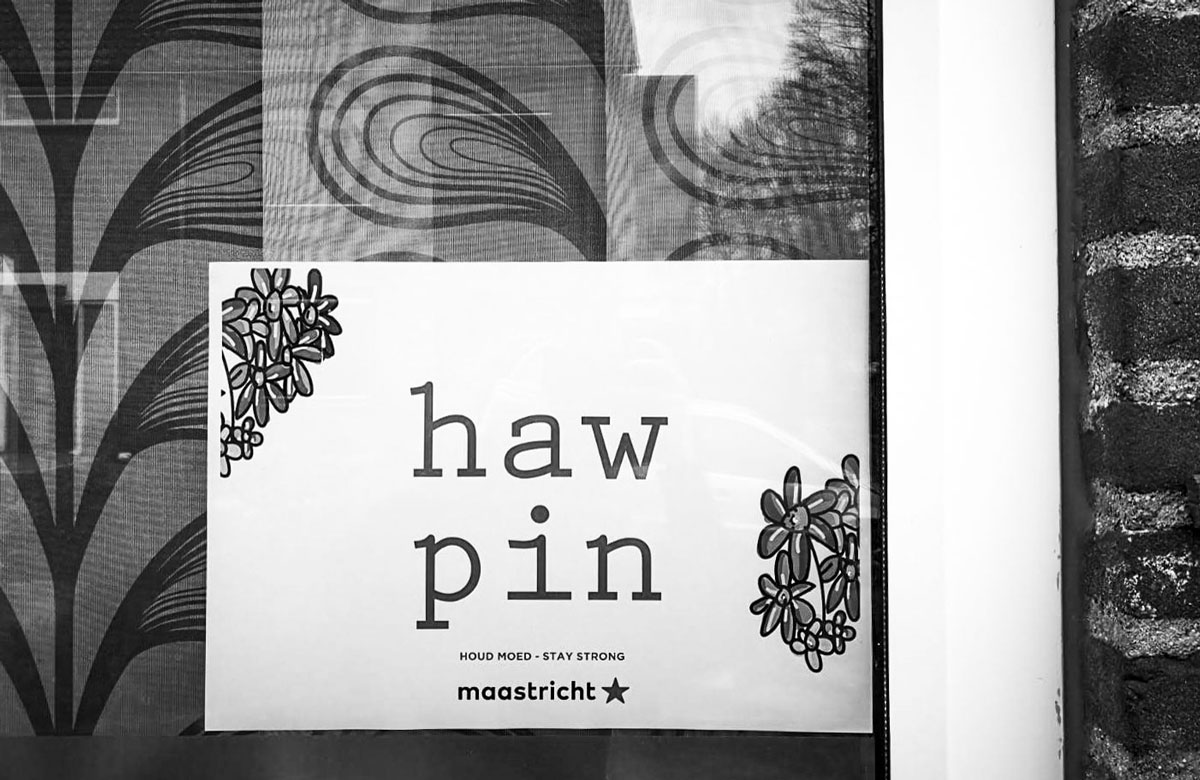
Donderdag 2 april 2020
↓ Katinka Bassleer: Midnight Thoughts
Hoe is mijn mentaal welzijn nu? Nou, we zitten in lockdown wegens Corona. Voor de eerste keer ooit weeg ik mijn voedsel niet en eet ik allesbehalve veganistisch. Ik eet relatief gezond (zwijg, je eet fucking gezond – het is niet omdat je nu 1 el mayonaise eet of voor een keer pizza of gewoon olijfolie gebruikt dat je ongezond eet). Maar die koffie met suiker dan? (omg, je hebt al zoveel honing en suiker gegeten). Vanaf nu gewoon zwarte koffie.
Wat ik wou zeggen is dat ik mij heel bevrijd voel. Bij momenten denk ik wel: Laat me niet alleen op mijn kamer, want dan begin ik te wenen of te prutsen aan mijn pols. Ik voel Max om de hoek. Hij staat klaar. Klaar om mij weer langs achteren te tackelen, op de grond te smakken. Ik neem het dag per dag en voel mijn honger aan. Ik verhonger mezelf niet (jawel, dat doe je nog steeds: als je met honger gaat slapen, ben je nog altijd blij).
Ik zie deze 3 weken in quarantaine als mijn opname. Ik was toch van plan mij te laten opnemen, maar dan ambulant. Je moest mijn pols eens zien. Littekens voor het leven zullen ze zijn. Herinneringen aan een periode waarin ik permanente paniekaanvallen had en me volledig verloren voelde. Mijn ouders weten echt niets over mijn situatie. Mocht ik het mijn moeder vertellen, ze zou flippen; ze weet nu al niet hoe me te helpen.
Ik ben bang terug op kot te moeten gaan. Ik weet dat ik geen angst mag hebben, dat ik mij moet beheersen. Maar ik voel tegelijk dat ik zo terug in mijn situatie kan verglijden. I can feel it. Het zijn al die kleine gedachten die dat kunnen triggeren. Omg, haal dit uit mijn brein, uit mijn lijf. Lopen doet me vaak deugd, het zet alles op een rijtje. Gelukkig heb ik nu een statuut voor mijn situatie, al ben ik er niet trots op zo’n zielig geval te zijn. Maar ik kom wel op voor mijn problemen en zorg ervoor dat er ergens verbetering komt.
Het feit dat ik de lockdown bij een vriendin doormaak helpt enorm. Ik zit hier op een prachtige locatie en heb veel afleiding. Dat is wat ik nodig heb: afleiding. Mijn donkere gedachten negeren. Maar ik mag ze niet negeren, want dan vallen ze mij weer langs achteren aan zonder dat ik het doorheb. Nee, nee, ik moet naar ze luisteren en er dan niet op ingaan. Mijn gedachten laten binnenstromen en dan gewoon goed handelen. Maar nu, dat weet je zelf, verdring je ze. Niet? Of is dat juist goed. Ik weet het niet.
Het feit dat ik nu 2 eieren, veel kikkererwten, 2 dikke grote sneden brood met wat boter en mayonaise erop kan eten. Zonder problemen of veel bijgedachten. Dat is toch goed? Wat zei je toen tegen jezelf? Ik zei dat het lekker is en niet erg is om te eten. Ik zei het niet zo uitdrukkelijk in mijn hoofd, maar zei wel tegen mezelf dat ik dit eten nodig heb. Dat het me voedt en dat ik net heel veel heb gelopen. Dat ik niet bijkom zolang ik maar in balans blijf en zo veel blijf sporten. Hoe moeten gewone mensen zich wel niet voelen?
Kan ik dit aanhouden op het moment dat ik terug alleen ben?
↓ Leroy Goorts
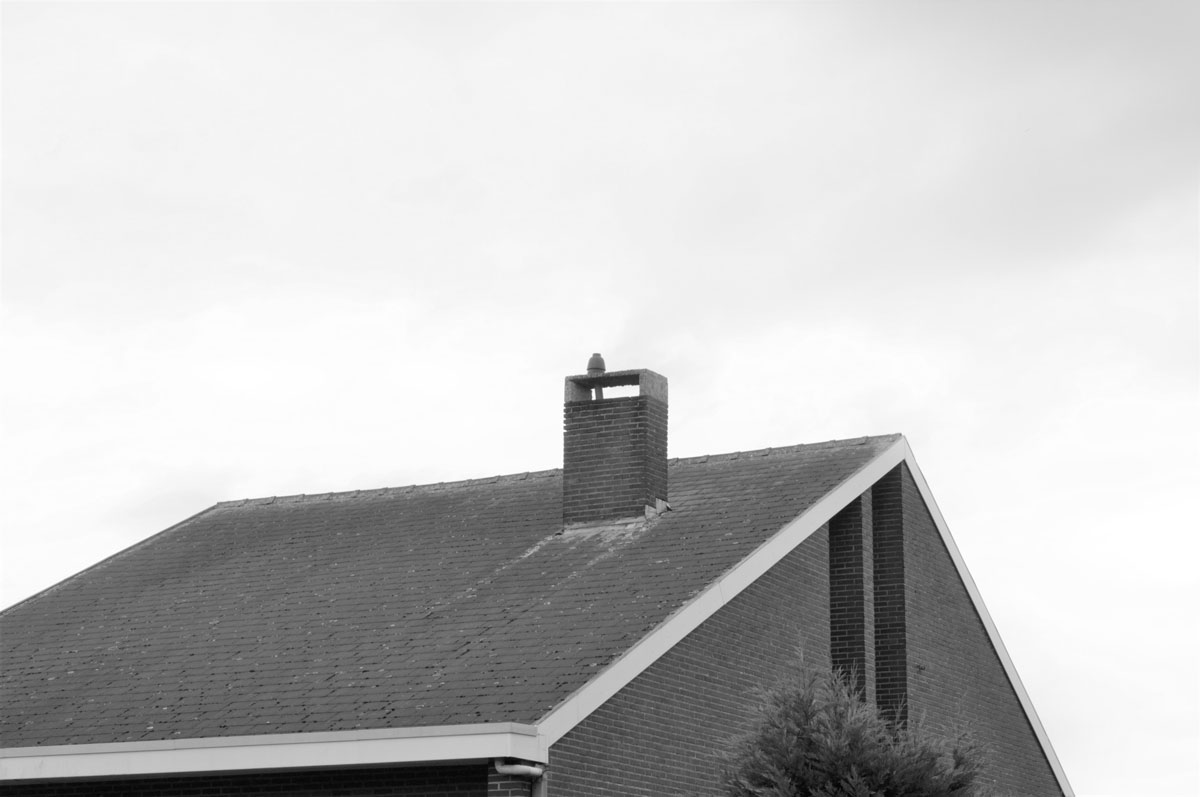
↓ Maud van Erkelens
Hij zat op houten platen die op een of andere manier een bank moesten voorstellen. Het was misschien volgens de wet niet essentieel, maar hij snakte naar wat frisse lucht. Hij werd vrolijk van alles om zich heen: de vogeltjes die floten, de zon die scheen. Alles was in bloei, behalve de levens van de mensen die opgesloten zaten in hun eigen huis. Na heel wat discussie mocht hij eindelijk een kwartiertje door het park wandelen dat vlak bij het bejaardentehuis lag. Hij had er behoorlijk voor moeten zeuren, maar het was het waard. Nadat hij vijf minuten rustig had gezeten, ervoer hij plots een jeukend gevoel. Was het wat hij dacht dat het was… ja hoor. Hij voelde het kriebelen en kriebelen en opeens… Snel liet hij met opzet een harde scheet om zijn hoest te verbergen. Niet dat er iemand in de buurt was om die te horen – iedereen was immers te bang om ook maar één stap buiten te zetten –, maar zo verzekerde hij toch dat hij niet helemaal anders behandeld zou gaan worden. Na een kwartier stond hij op en liep keurig terug naar het bejaardentehuis, om daar vervolgens zijn kamer weer in te gaan, op zijn stoel te gaan zitten en weer urenlang te kijken naar het plekje waar hij net nog gezeten had.
↓ Veerle Klein
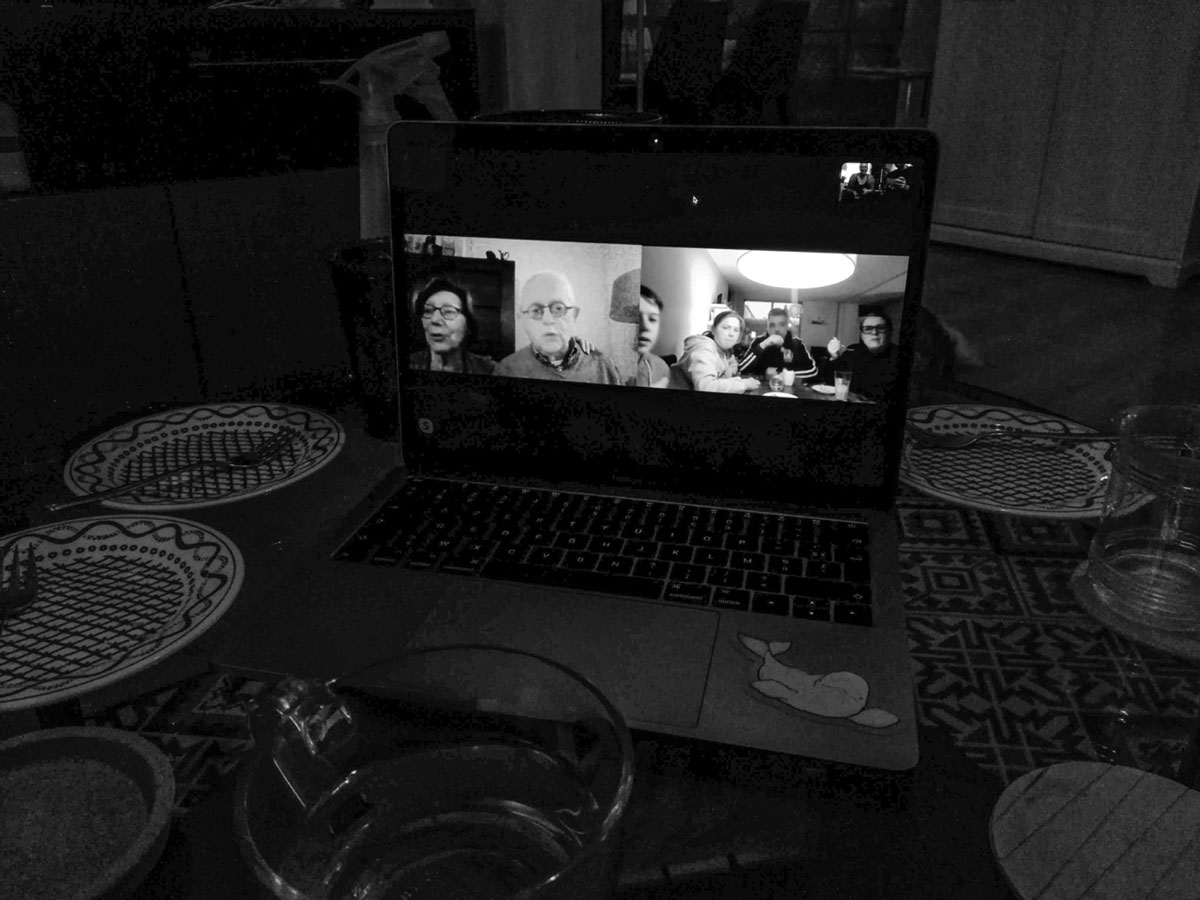
Woendag 1 april 2020
↓ Cleo Reniers
Ik mag niet meer naar mijn andere thuis Ik mag hen ook niet meer aanraken Ik ben hun angst voor het mogelijke geworden Ik ben helaas nu ook de eenzaamheid
↓ Gert Duquene
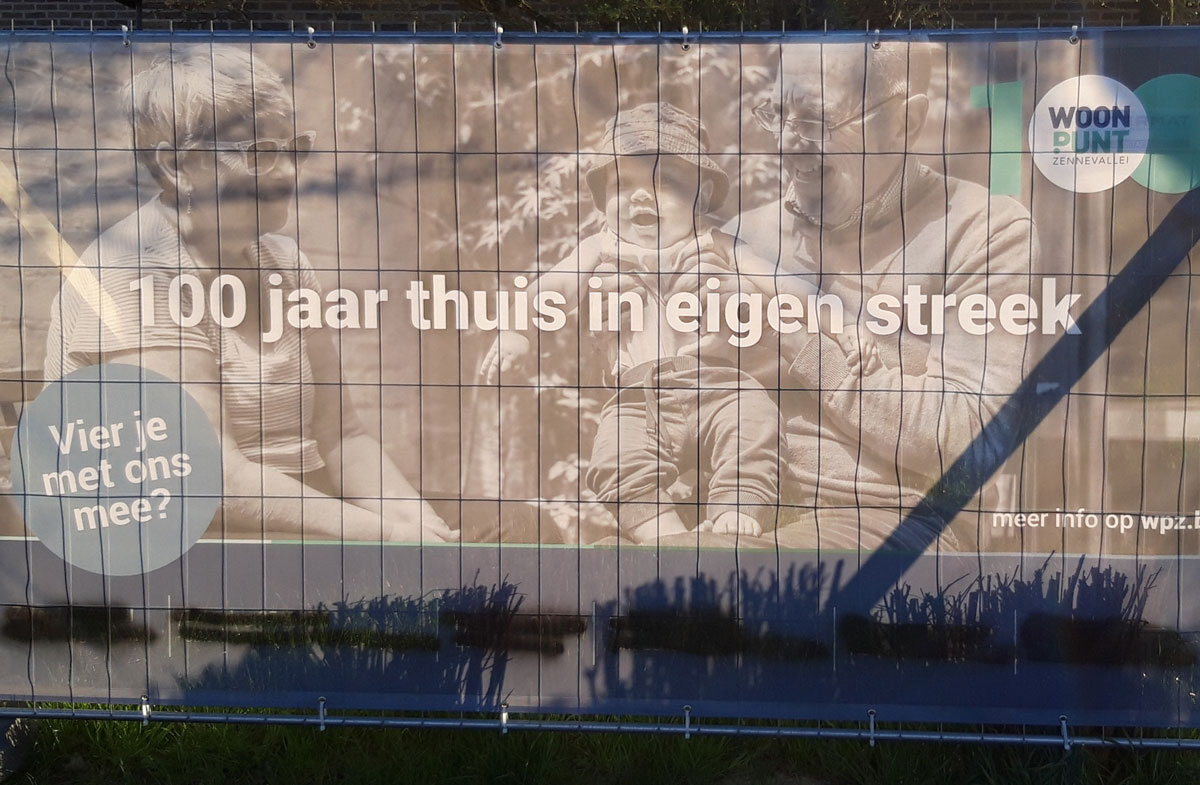
↓ Frauke Coune
Sta op Drink water Kleed me aan Ga naar de winkel Eet wat Poets mijn tanden Lees wat Volg mijn les Hoor de hond blaffen Eet Kijk wat tv Val bijna in slaap Speel met de hond Werk wat voor school Maak eten Dag duurt lang
↓ Paulien Bloemen
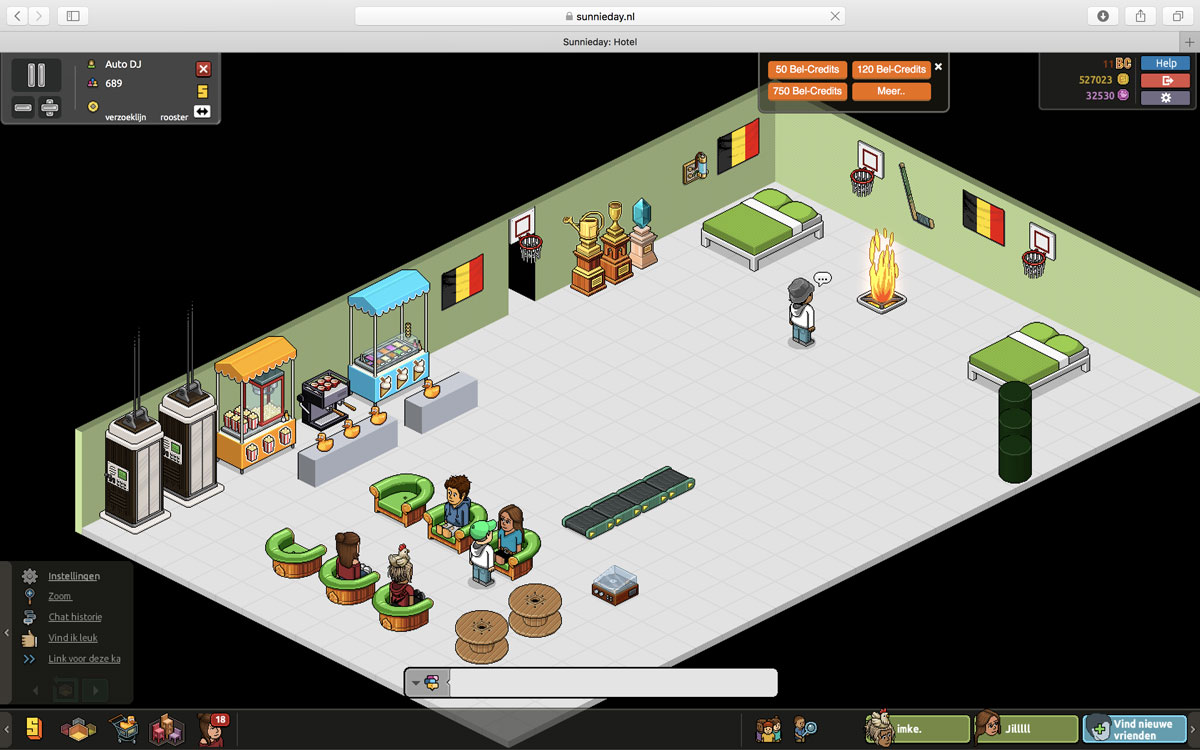
↓ Louise Jans
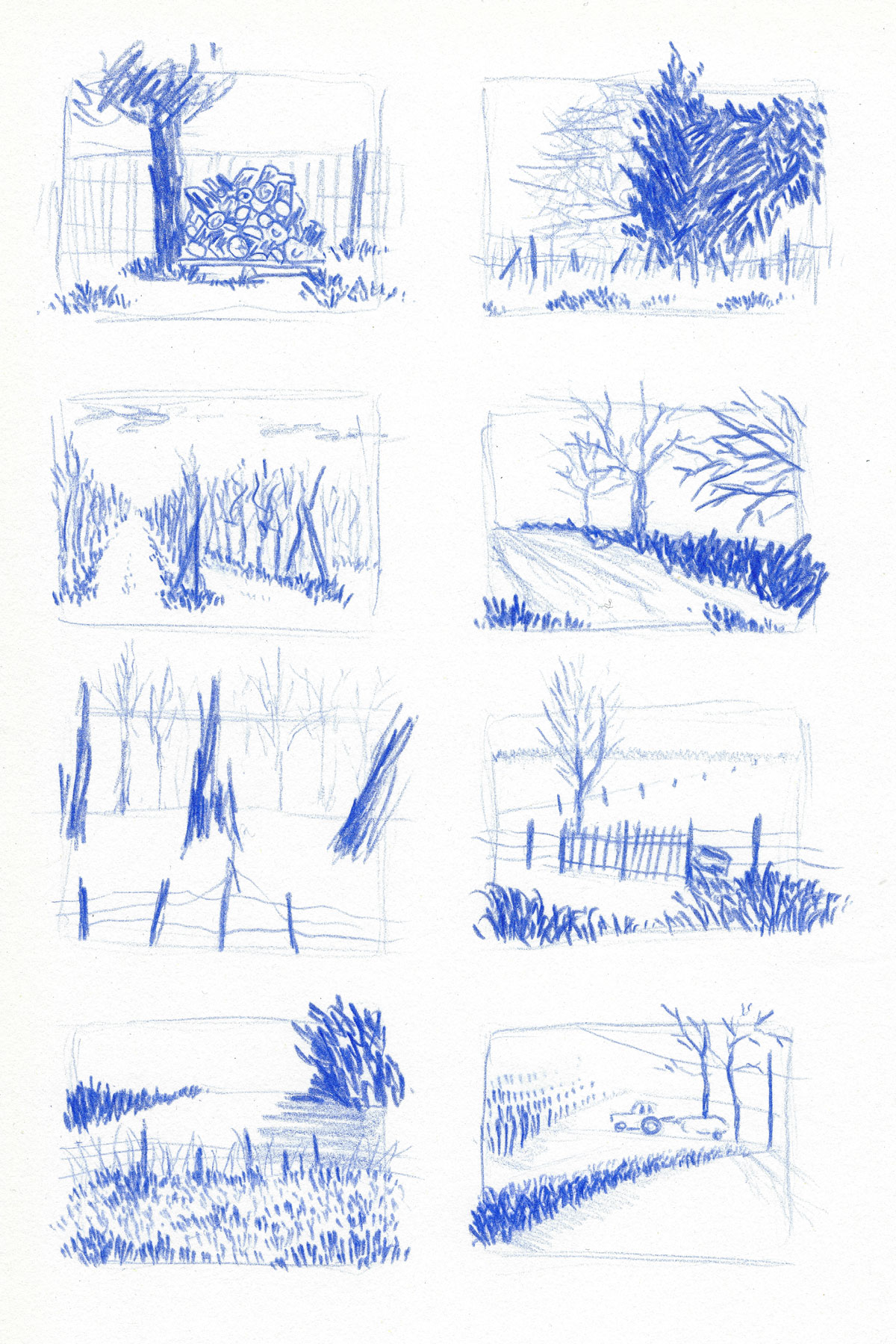
Dinsdag 31 maart 2020
↓ Lisa Schelkens
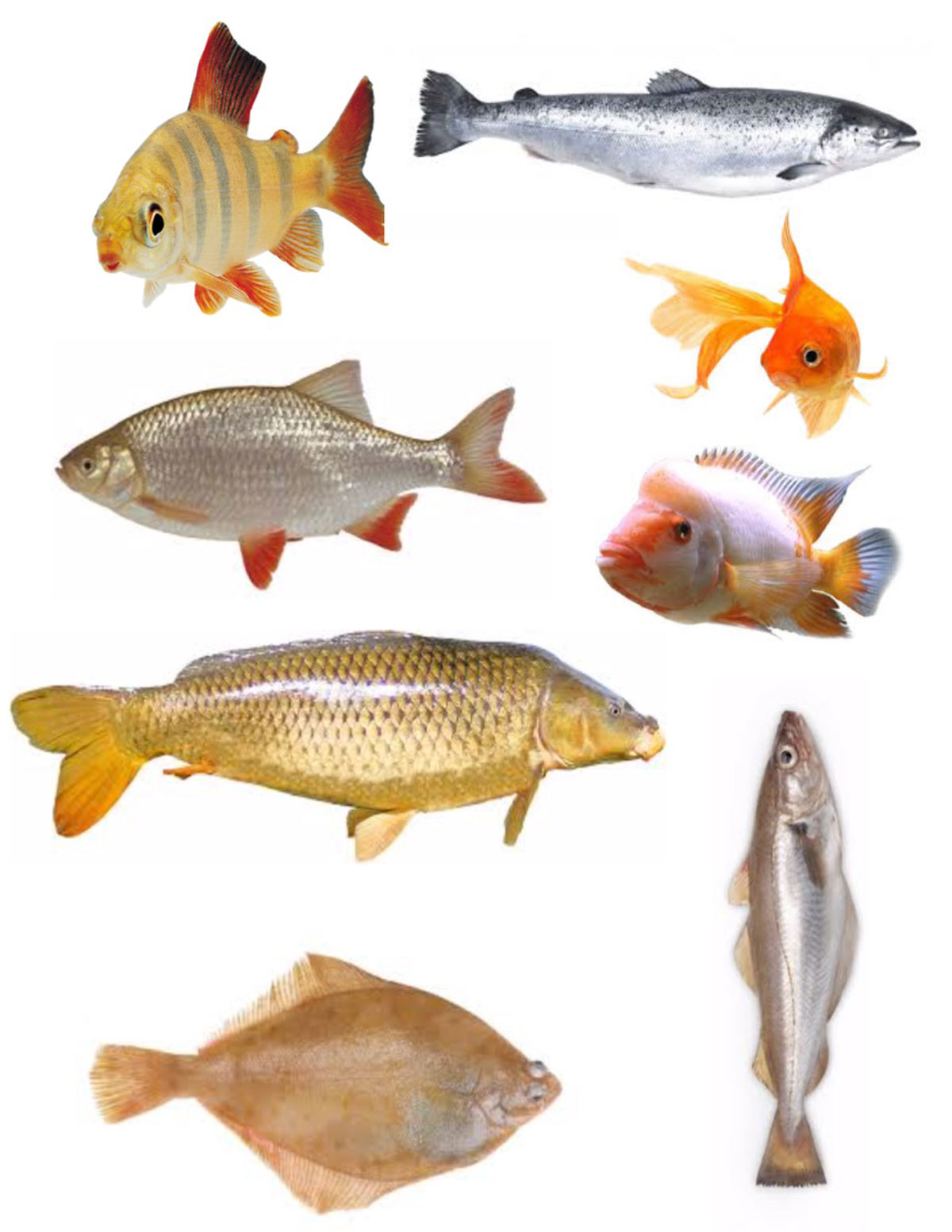
MORGEN IS HET 1 APRIL. WAT EEN GRAP! KNIP EN PLAK, EN... LAAT JE NIET VANGEN!
↓ Ekatériné Lortkipanidze
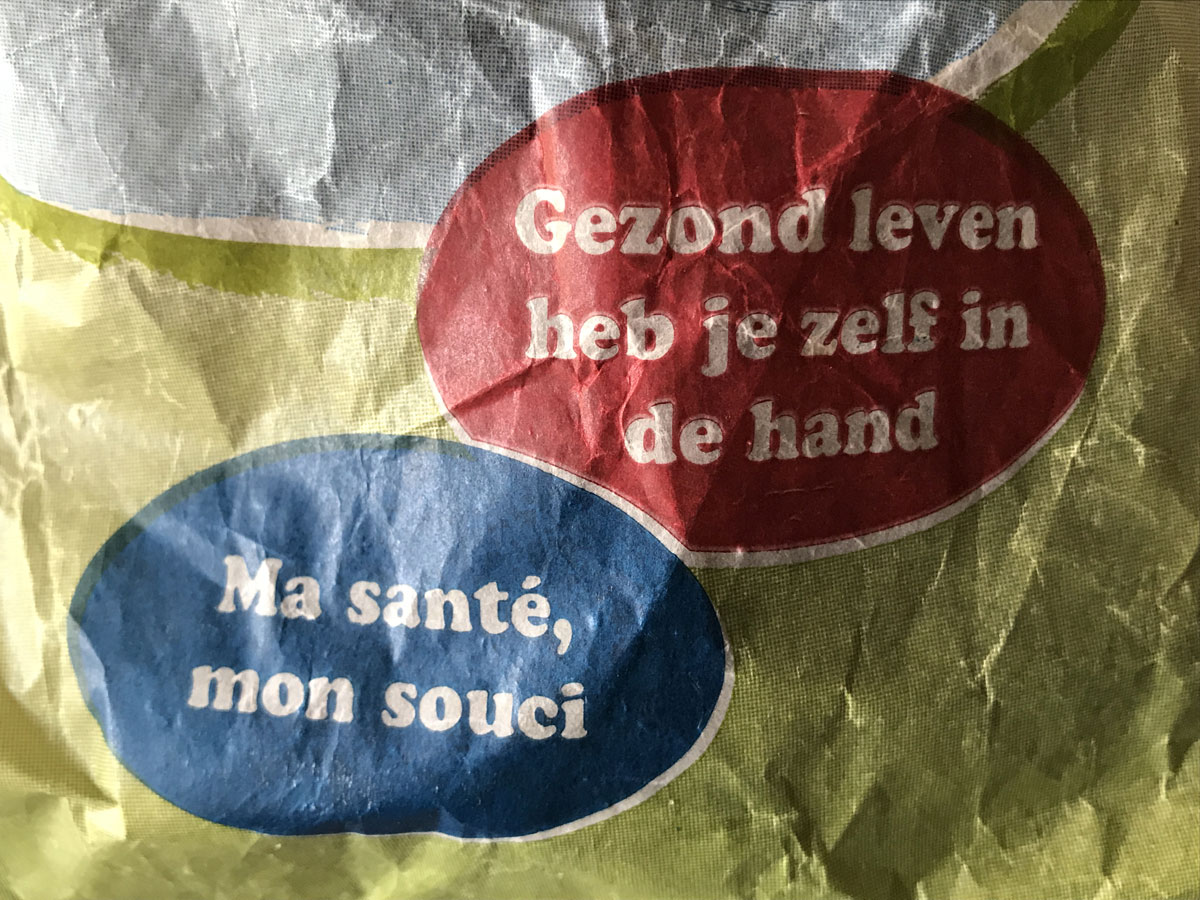
↓ Elke Palmaerts
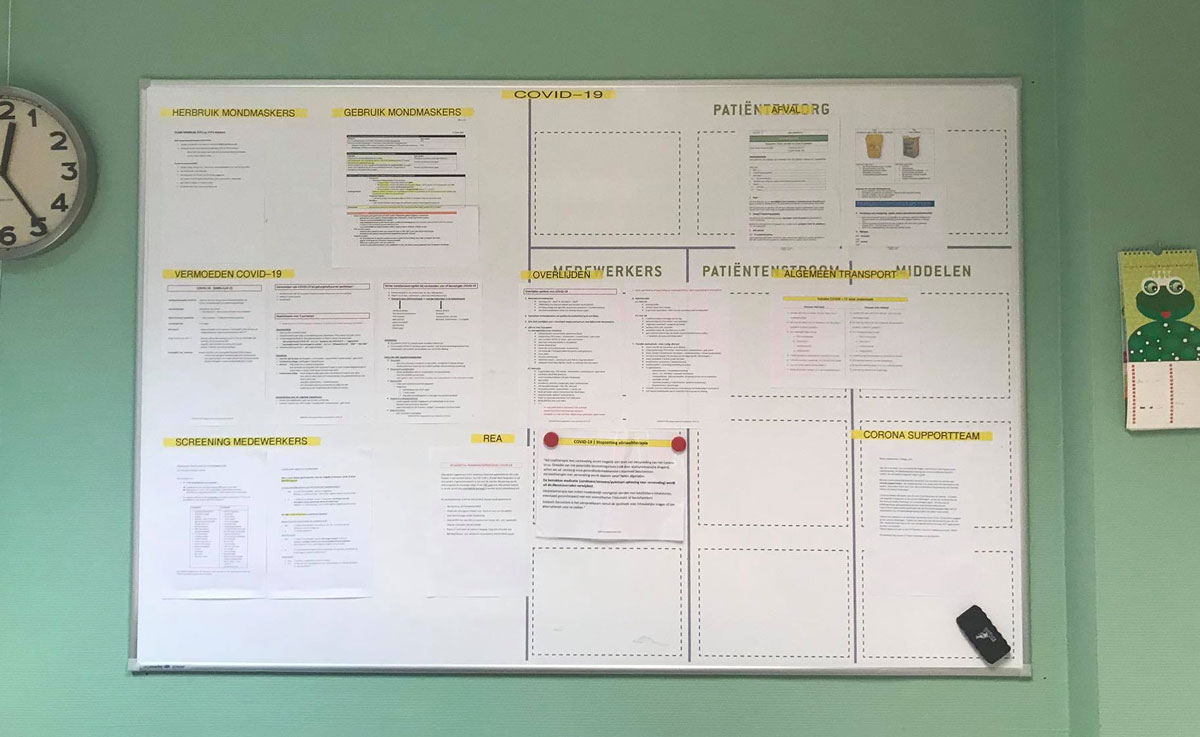
↓ Paulien Bloemen
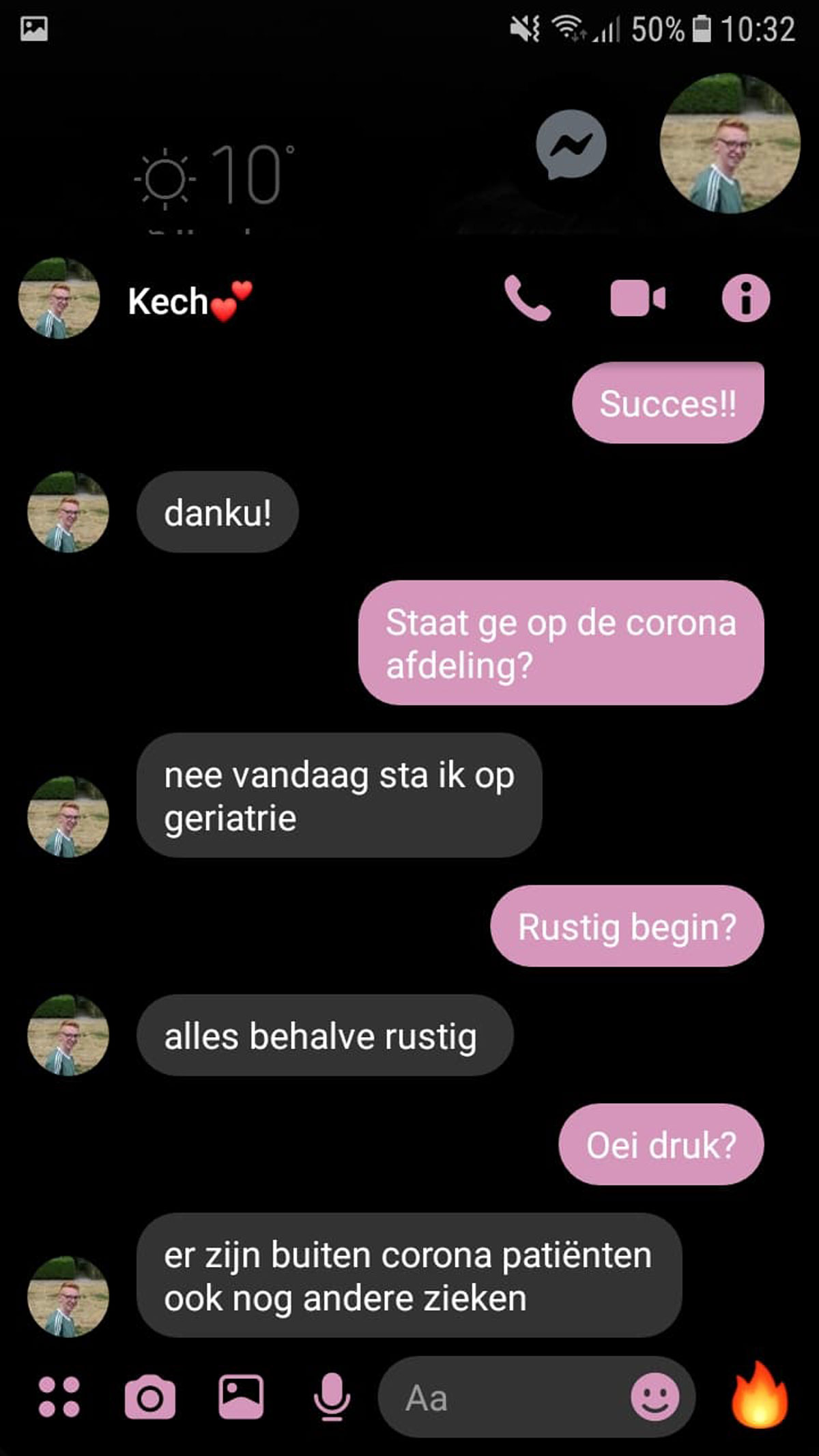
↓ Liselot Smolders: Sentimentele radio
Dag 14 van de lockdown: we zijn bijna twee weken bezig, of net niet meer bezig. Ik kan me alleszins nog heel goed bezighouden. Wanneer ik niet voor school aan het werk ben, maak ik me druk over hoe melig de Vlaming wel niet is. Om solidair te zijn met de thuiszittende Vlaming draait de radio immers de hele dag verzoekjes.
Eerst en vooral wil ik mijn frustratie meedelen over hoe harteloos ik genegeerd werd met mijn origineel verzoekje. Voor alle mensen die niet luisteren naar de overheid had ik het liedje “Fuck you” van Lily Allen aangevraagd, maar ik werd dus onbegrijpelijkerwijs straal genegeerd. Nog niet eens een vriendelijke afwijzing kreeg ik à la “dat is wat gemeen.” Niks, nada, noppes. Maar goed, dat de radio mijn liedje niet draait, daar kan ik nog mee leven. Waar ik gek van word is al die meligheid. Een hele dag worden er liedjes aangevraagd voor Jos, Jef, Ilse, Marleen, Frida, Chris… want oh, wat zijn dat toch schatten van mensen. “Mag ik nog eens de groeten doen aan mijn liefste ventje dat er altijd voor mij is…” – dan zeggen mijn hersenen even “error”. Ik zie de situatie zo al voor mij: Kristel, een vrouw van middelbare leeftijd met twee pubers die de hele dag lopen te zagen en een man die de vuilbakken is vergeten buiten te zetten (waarvoor hij net de volle laag heeft gekregen) krijgt plots telefoon - het is de radio. En wat zegt Kristel op de radio? “Ik zou graag ‘Nobelprijs’ van Cluseau aanvragen, omdat mijn ventje zo lief is en er altijd voor mij is, en omdat mijn kinderen ook zo braaf zijn en zo goed hun best doen…” Het meligste liedje van Clouseau dan nog. Clouseau, komaan please! Waarom Clouseau?
Ik weet dat het harde tijden zijn en dat we solidair moeten zijn, maar moet al die sentimentele bucht echt? Luisteren naar de radio lijkt wel alsof er een hele dag getuigen van Jehova in je deurgat staan, die je maar niet buitengewerkt krijgt.
↓ Julie Geudens
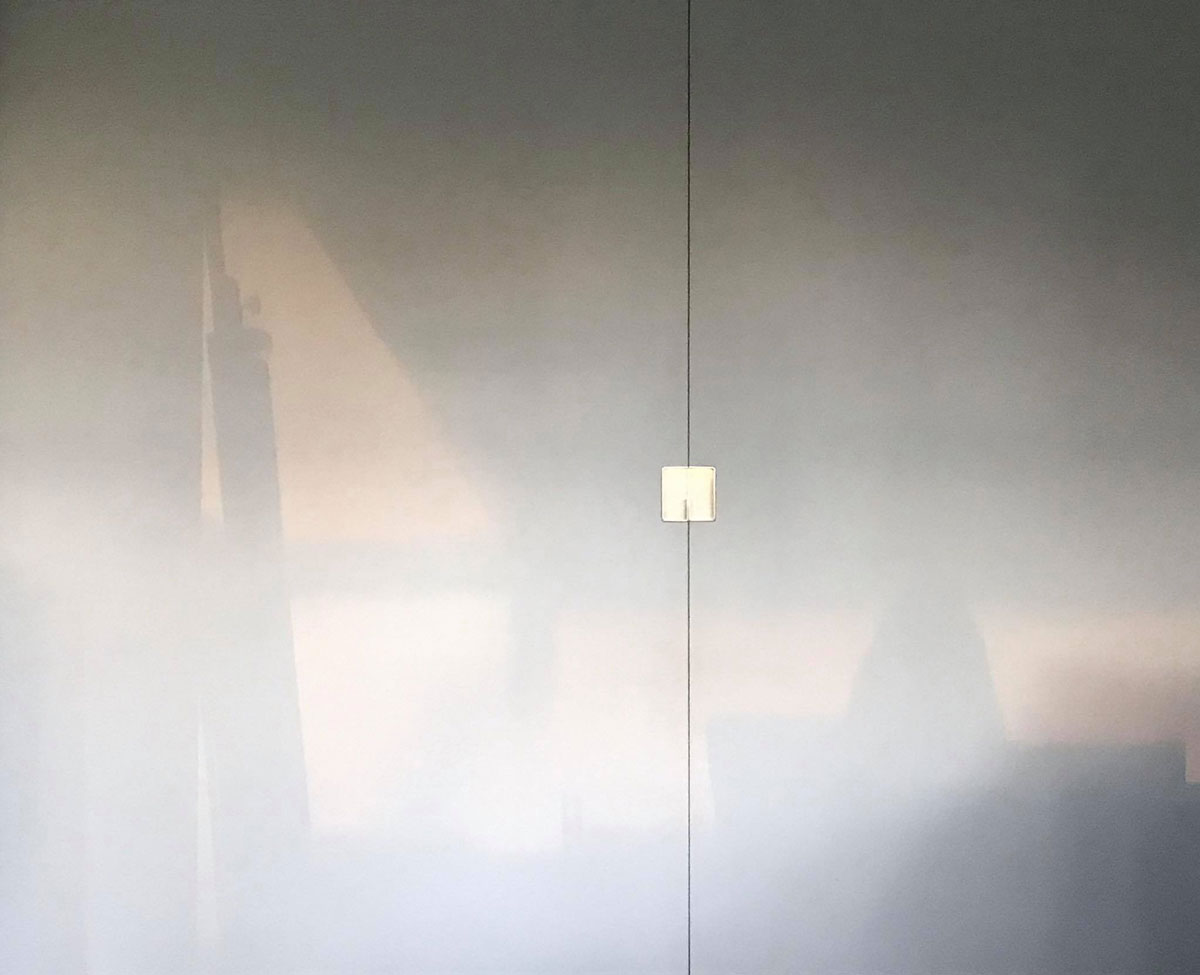
↓ Kayra Rommen
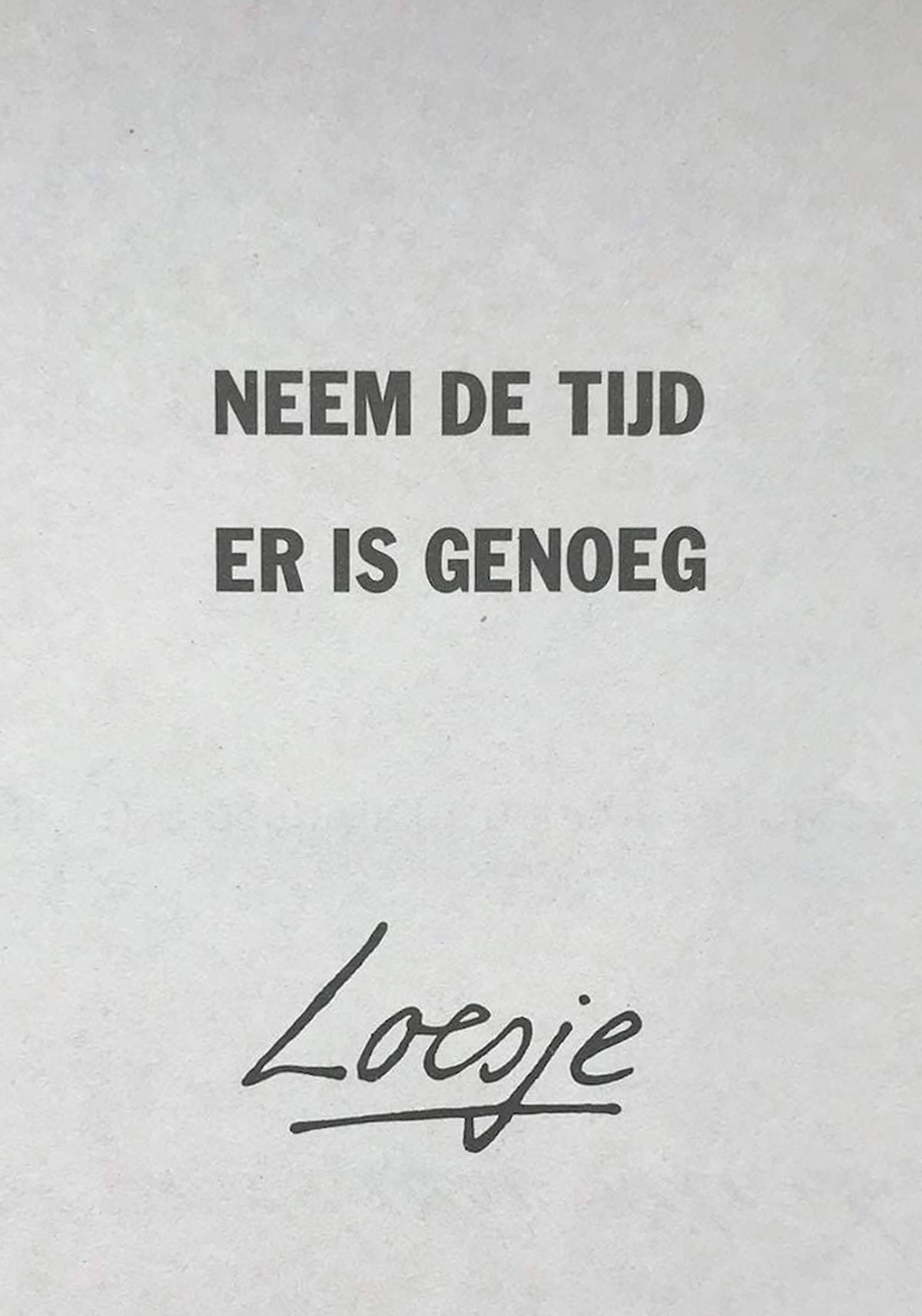
↓ Céline Mannens
↓ Veerle Klein
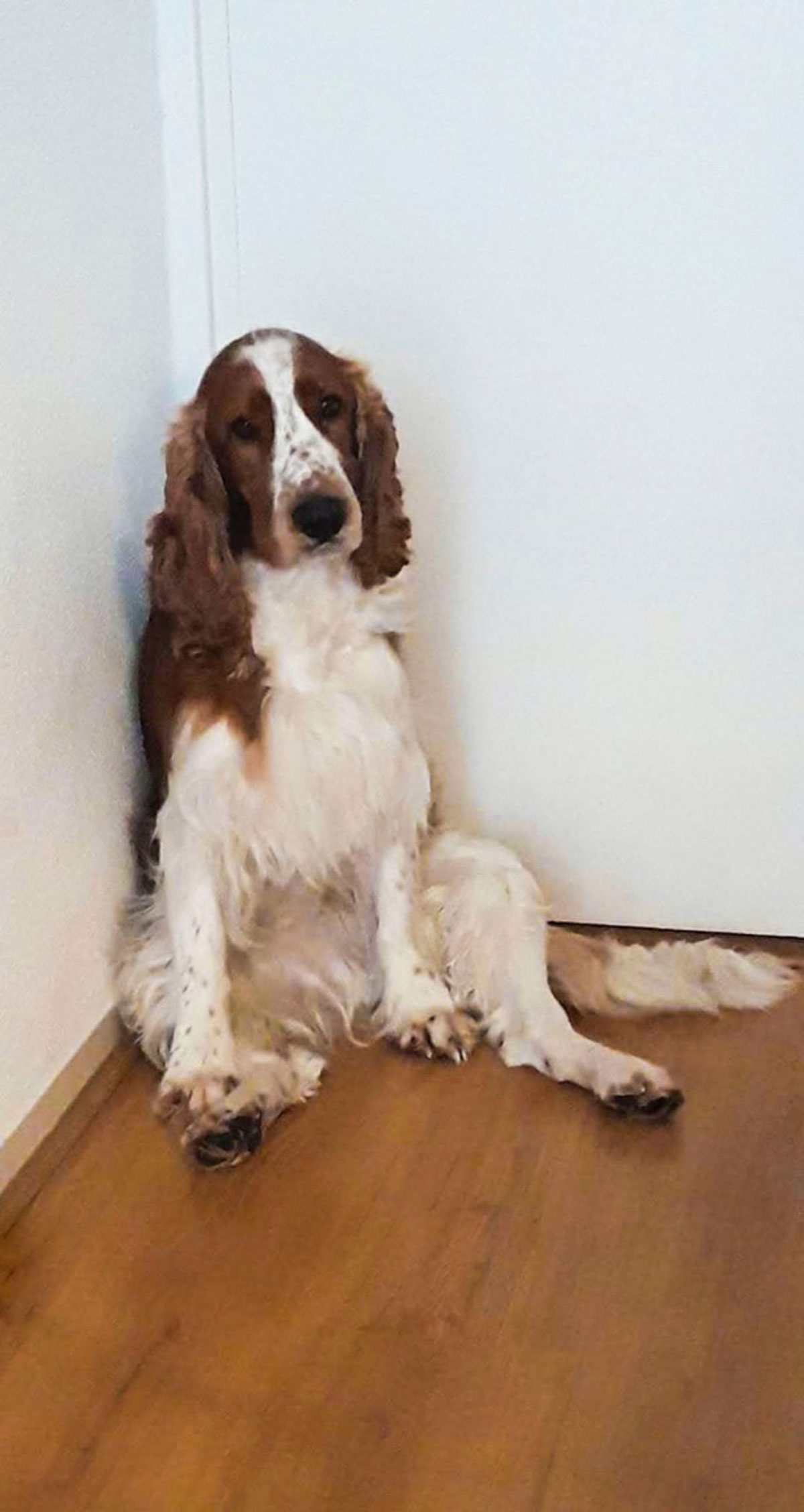
↓ Louise Jans
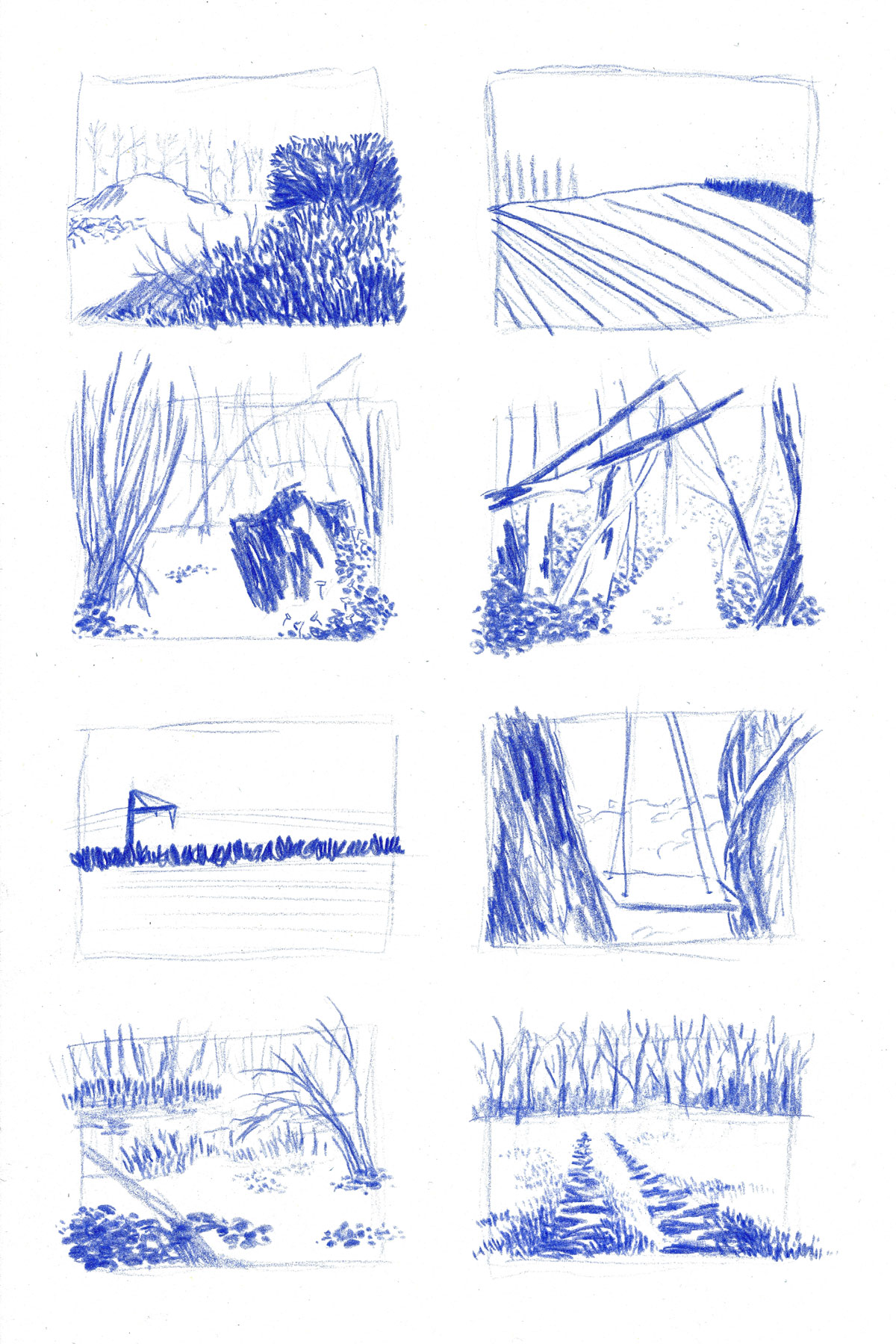
↓ Jornick Pellizzari
De 28 stenen die het gat in mijn schoen heeft verzameld sinds de start van de lockdown
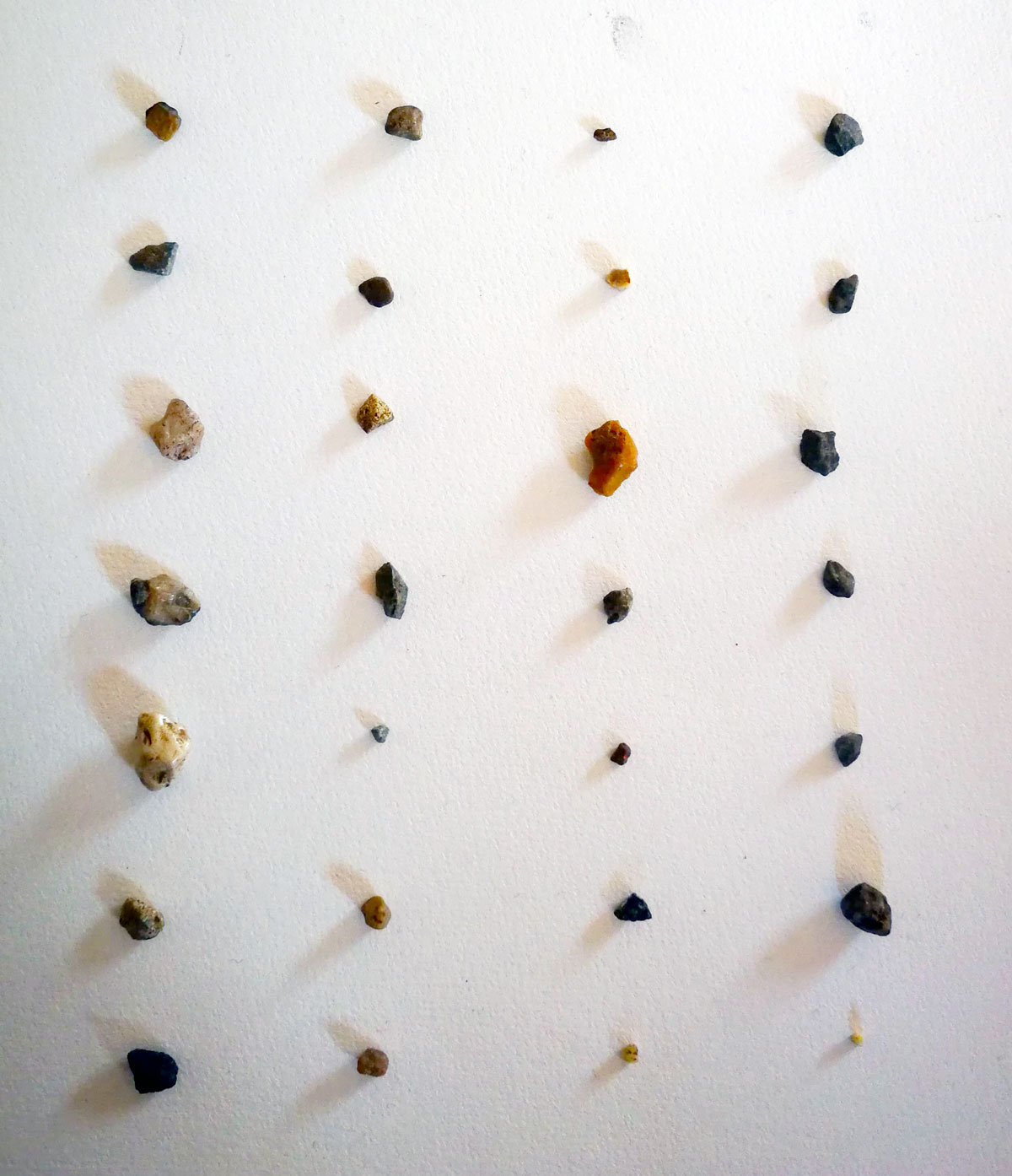
Maandag 30 maart 2020
↓ Elke Palmaerts: Sofie Palmaerts
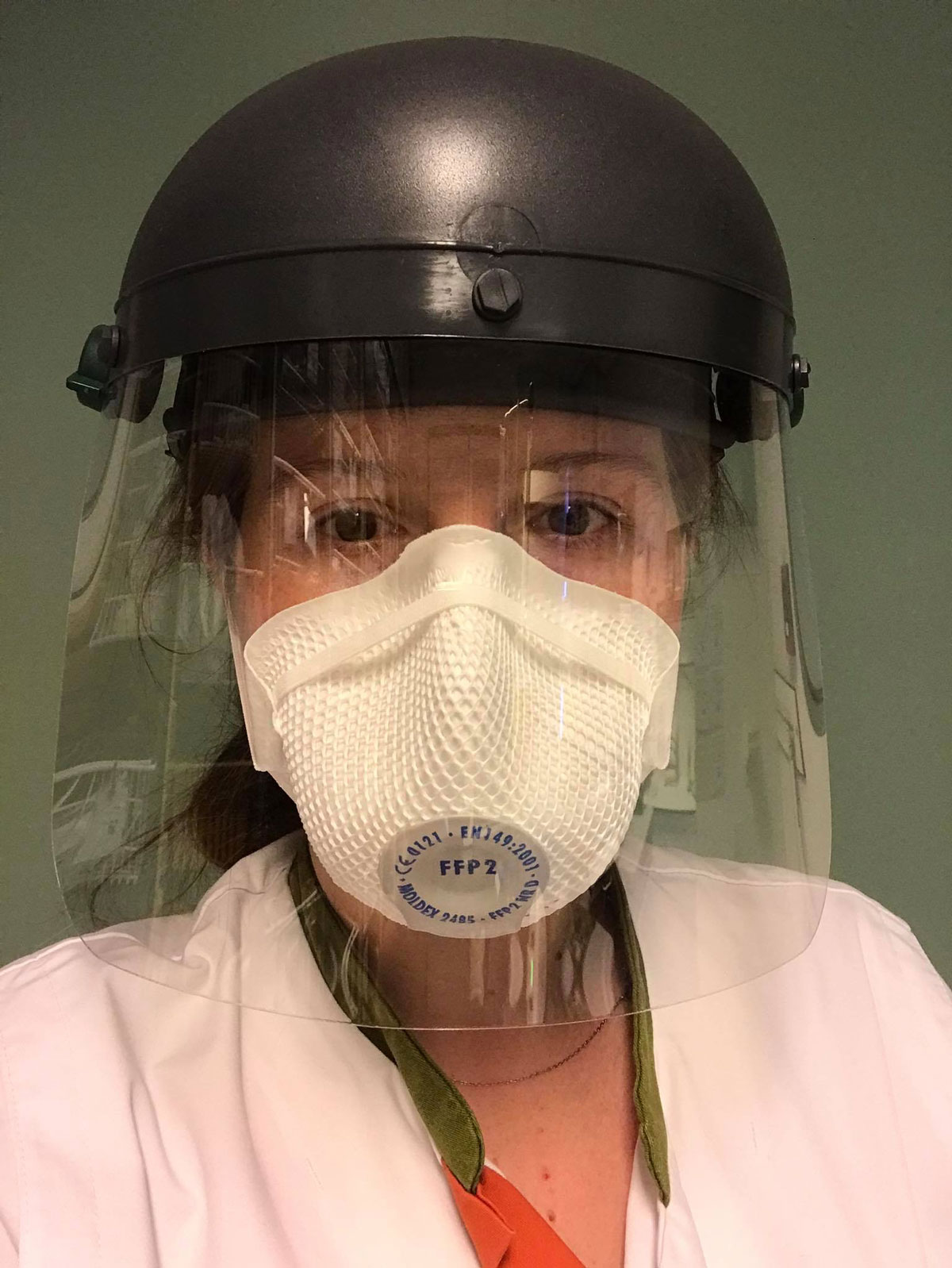
↓ Veerle Klein
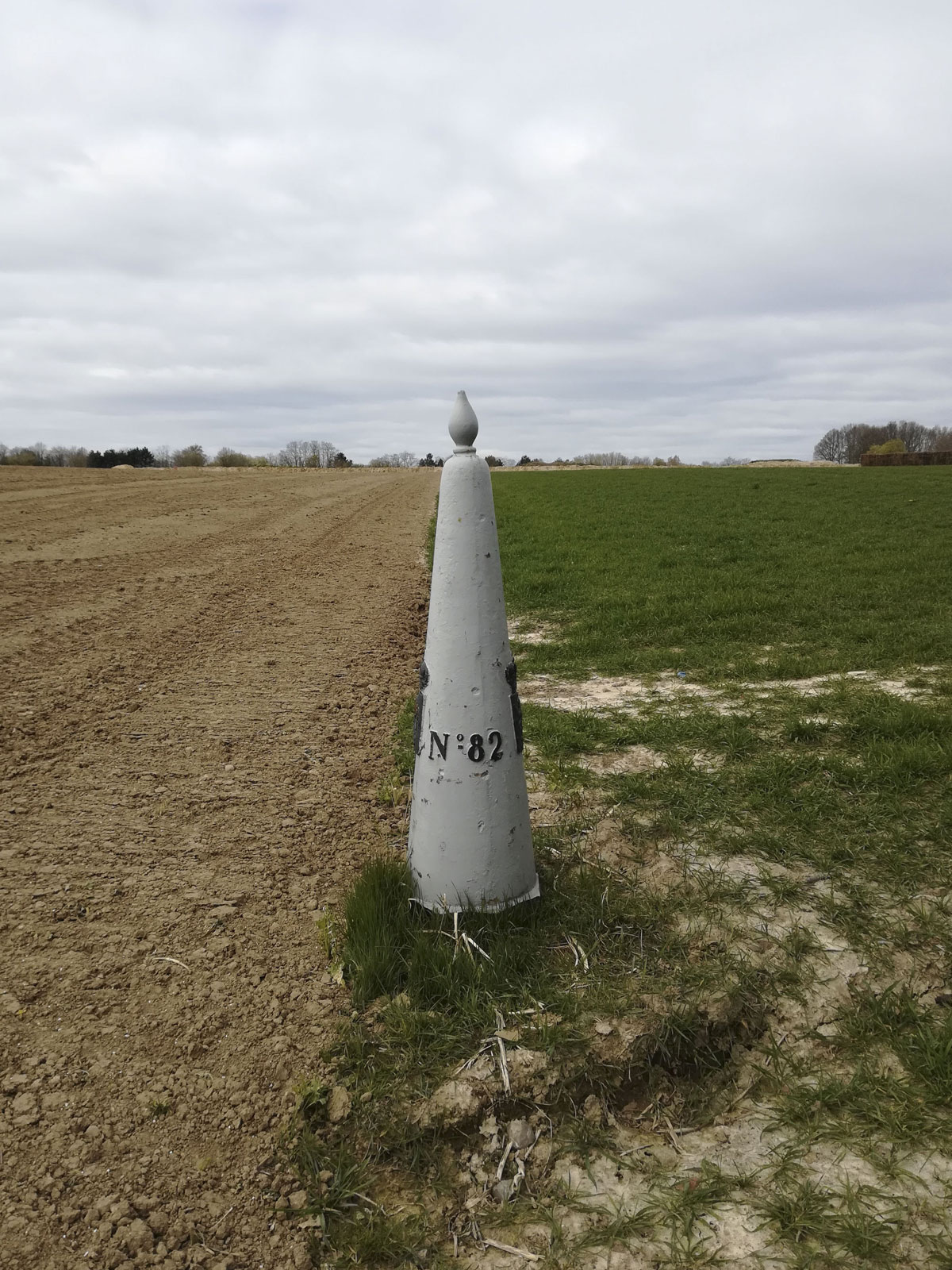
↓ Louise Jans
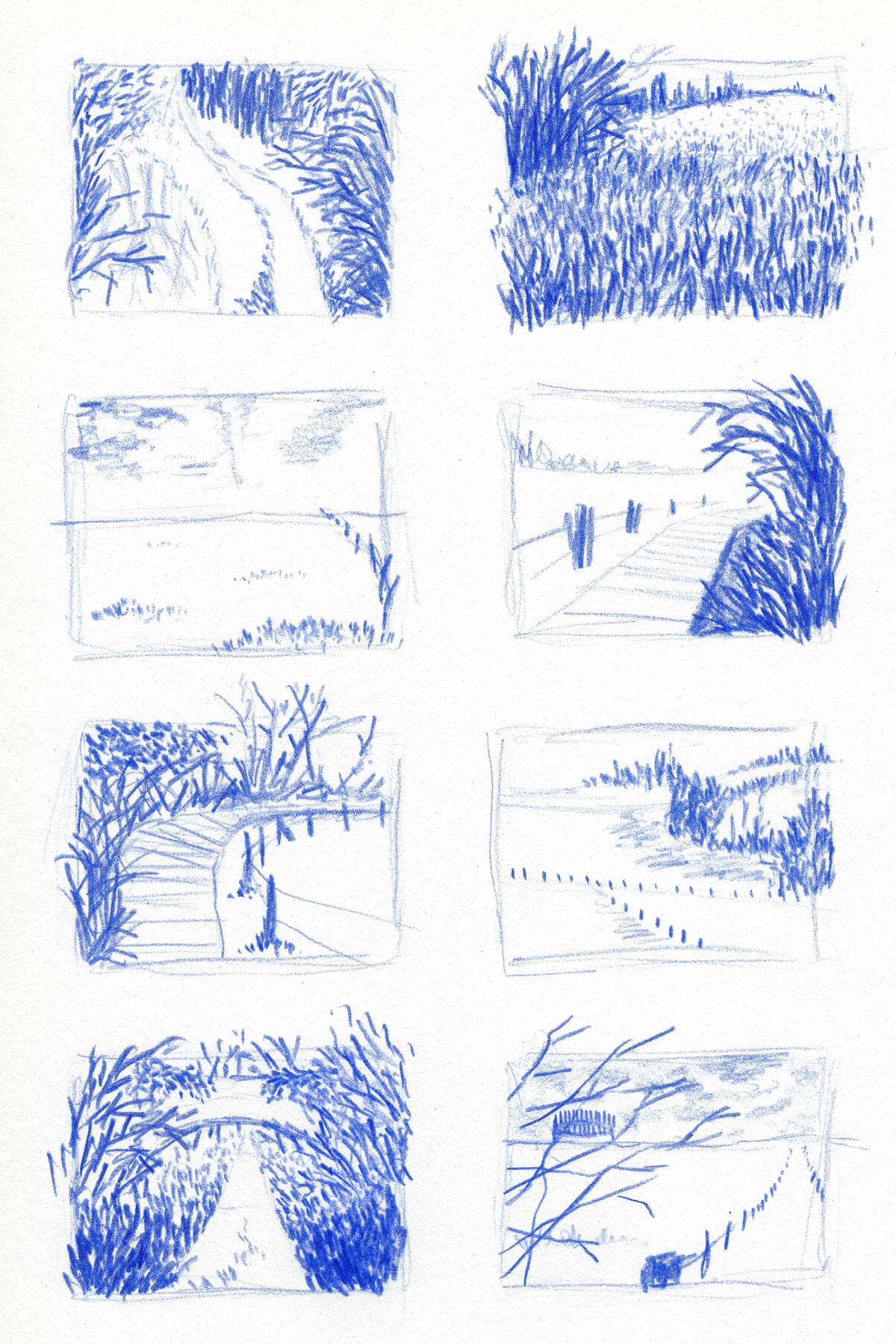
↓ Paulien Bloemen
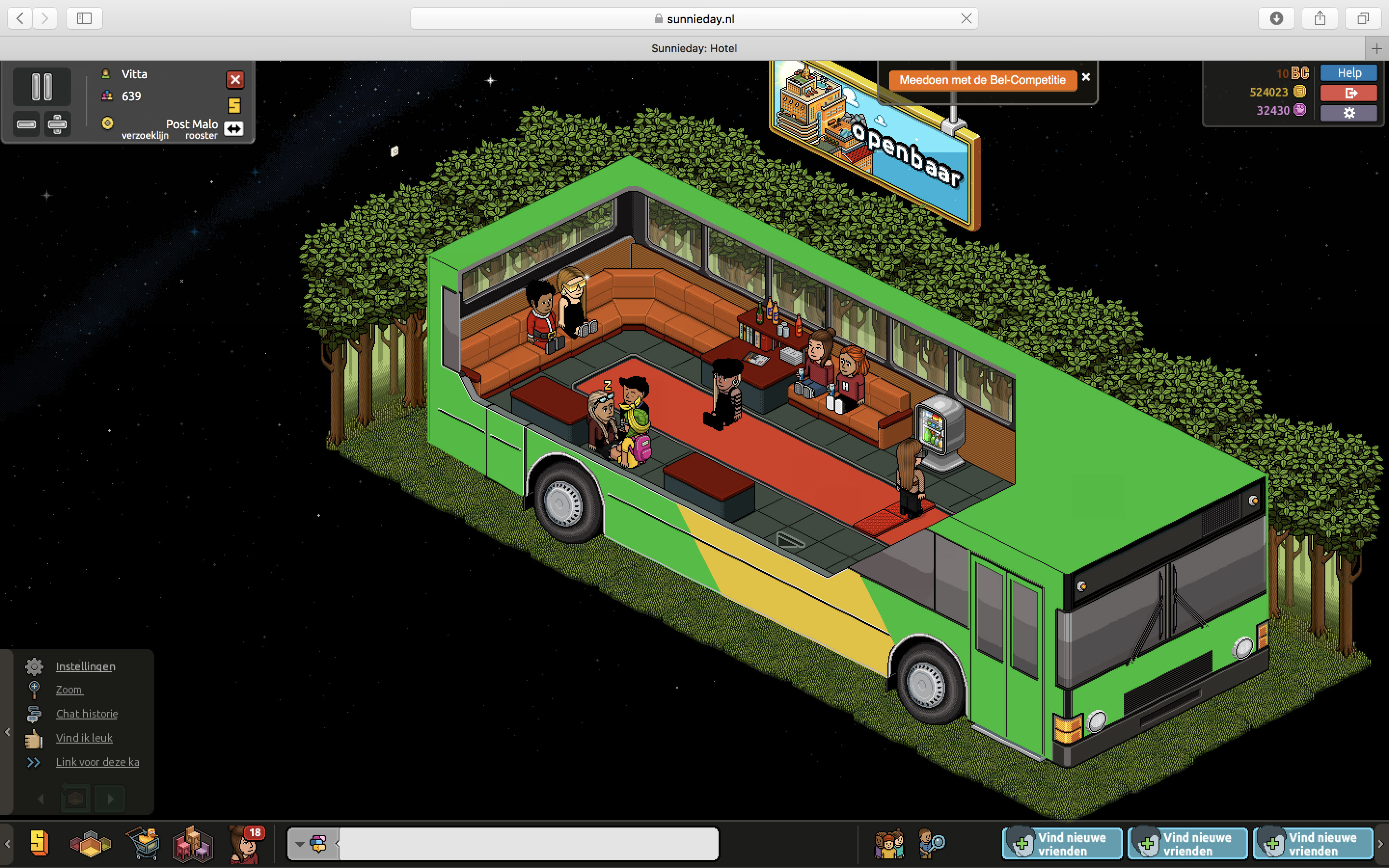
↓ Ekatériné Lortkipanidze
2019: DIY (Do It Yourself) 2020: YHTDIY (You Have To Do It Yourself)
Zondag 29 maart 2020
↓ Céline Mannens
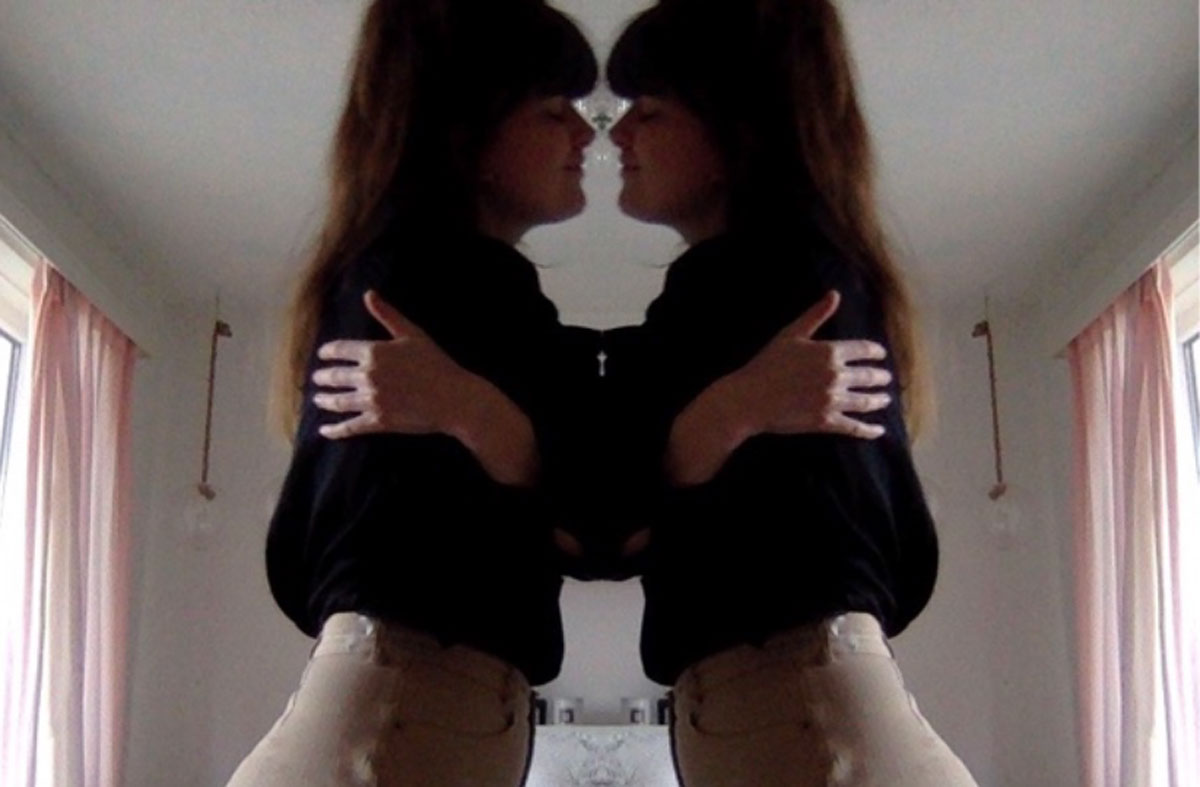
↓ Igor Cleeren
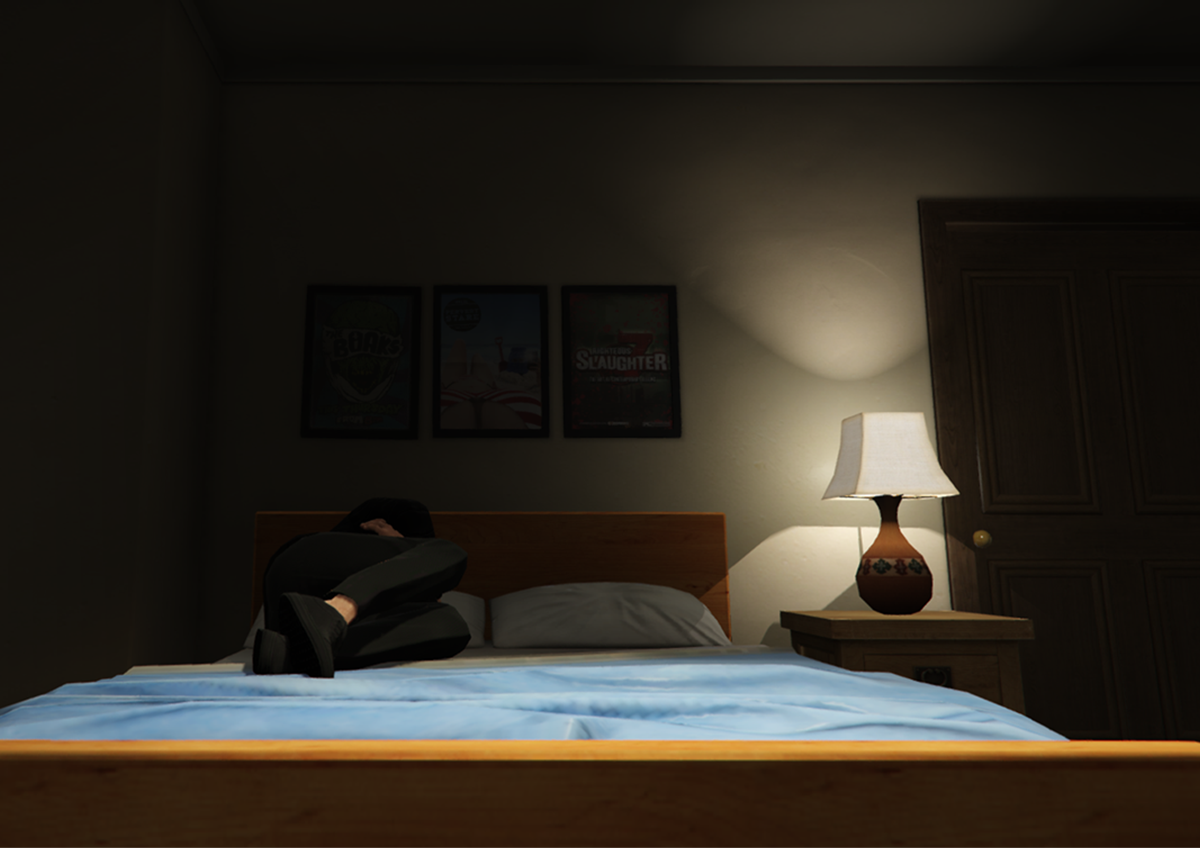
↓ Anouk Meirens
Zaterdag 28 maart 2020
↓ Eline Swennen
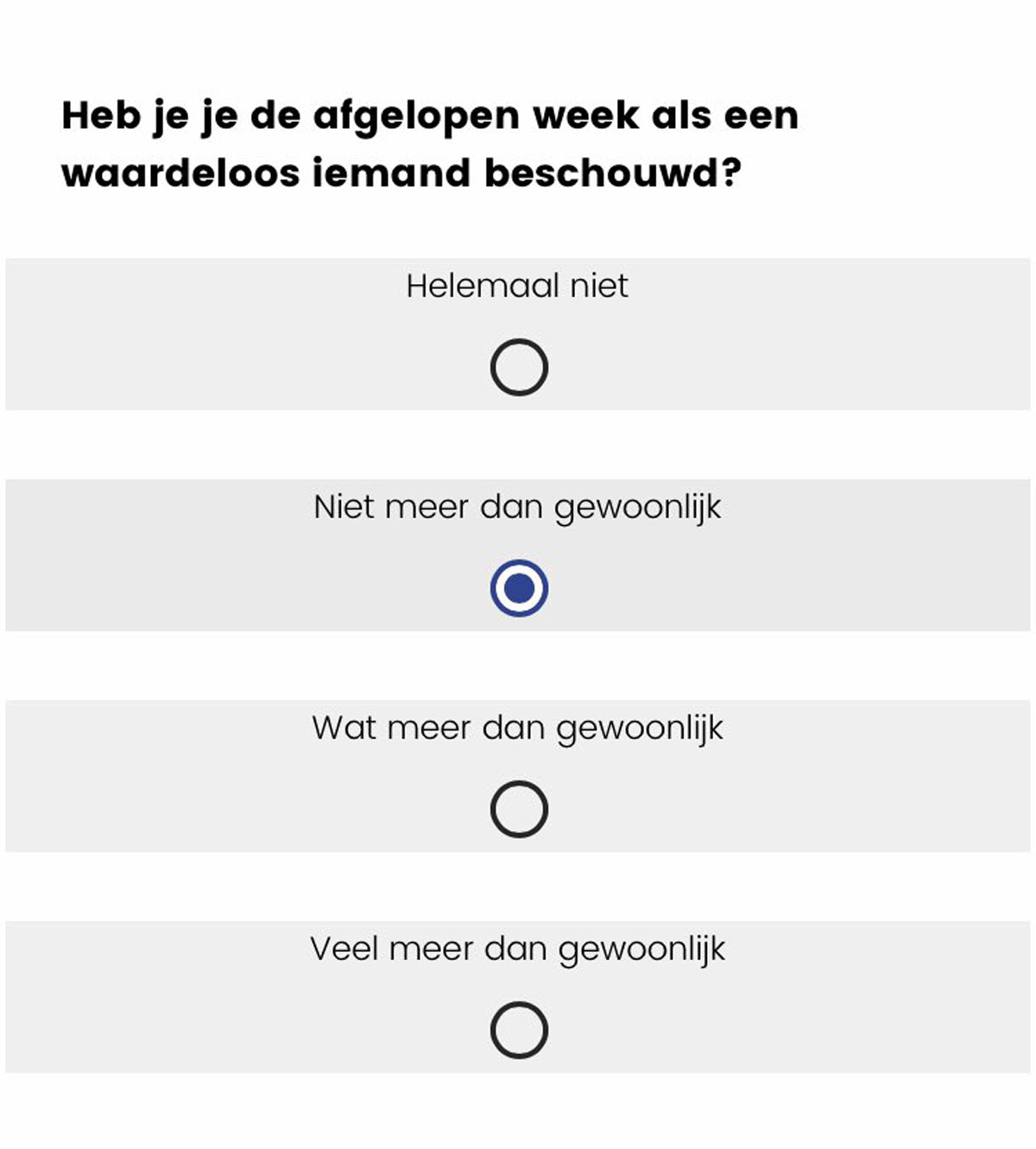
↓ Julie Geudens
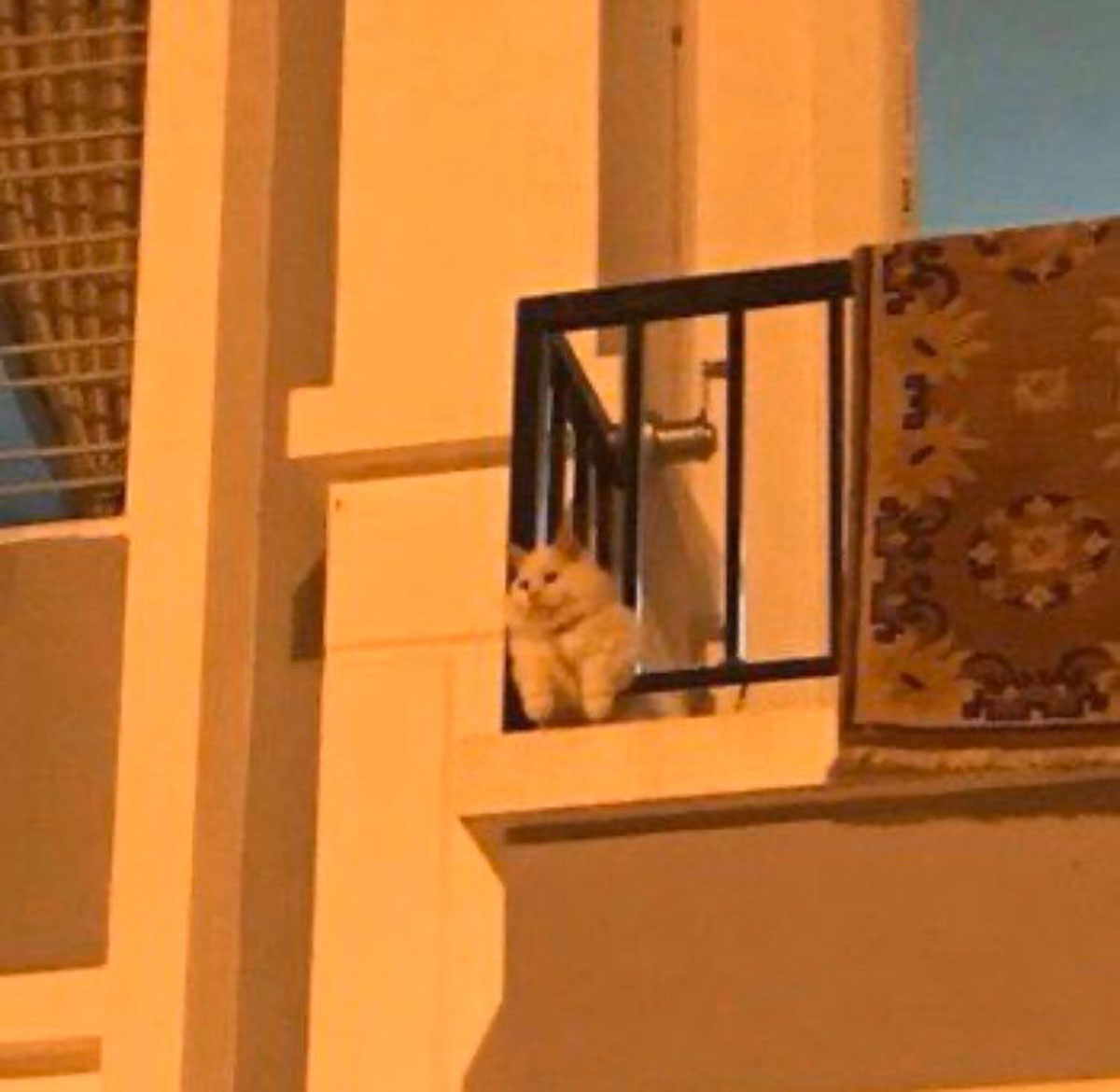
↓ Lisa Schelkens
Zet de juiste naam bij deze natuurverschijnselen.
Datura Stramonium (Doornappel) — Liquidambar Styraciflua (Amberboom) — Aesculus (Paardenkastanje) — Allium (Sierui) — Castanea Sativa (Tamme Kastanje) — Covid-19 — Echinocactus Grusonii (Bolcactus) — Carduus (Distel) — Platanus Acerifolia (Plataan)
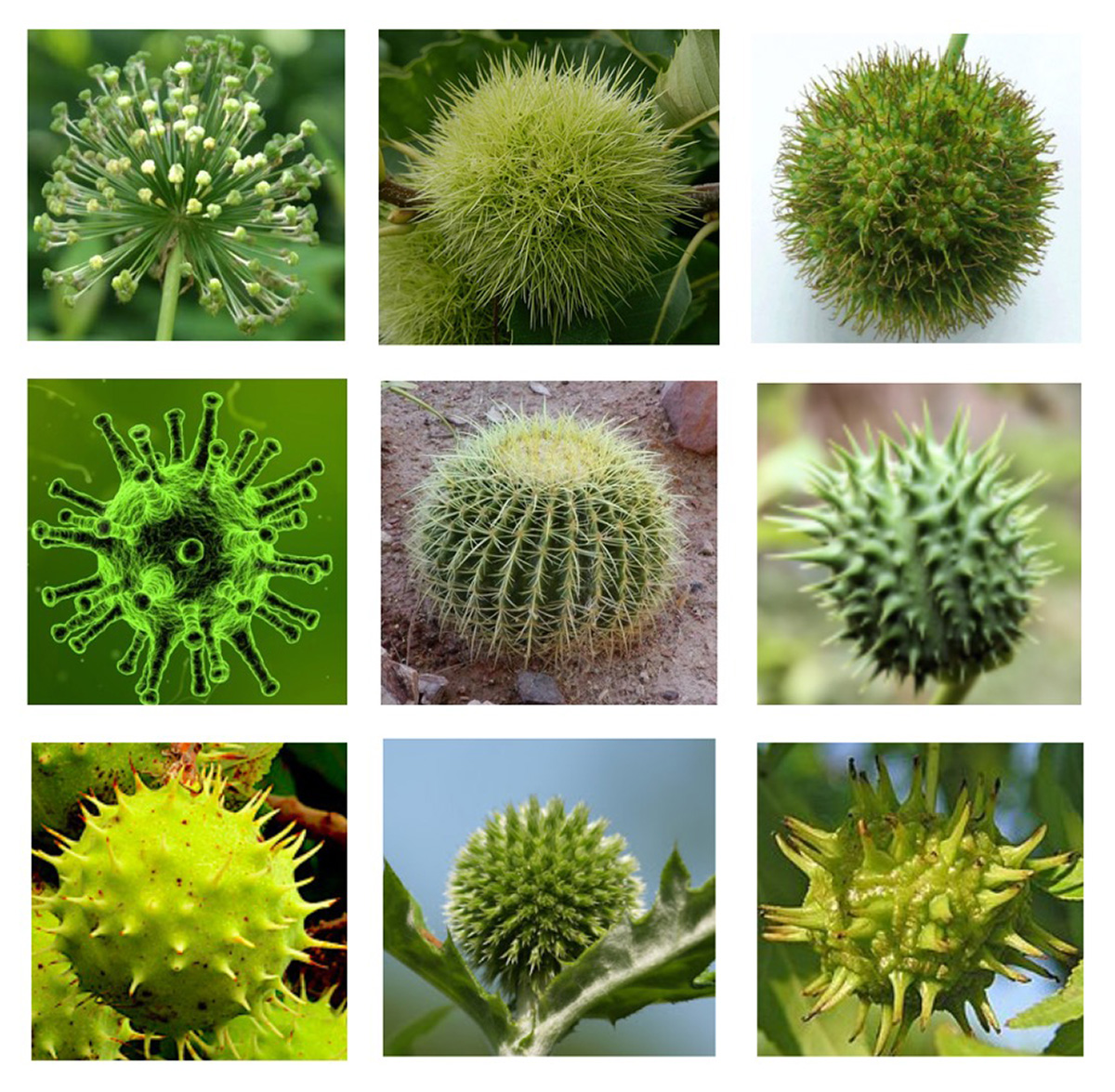
↓ Louise Jans
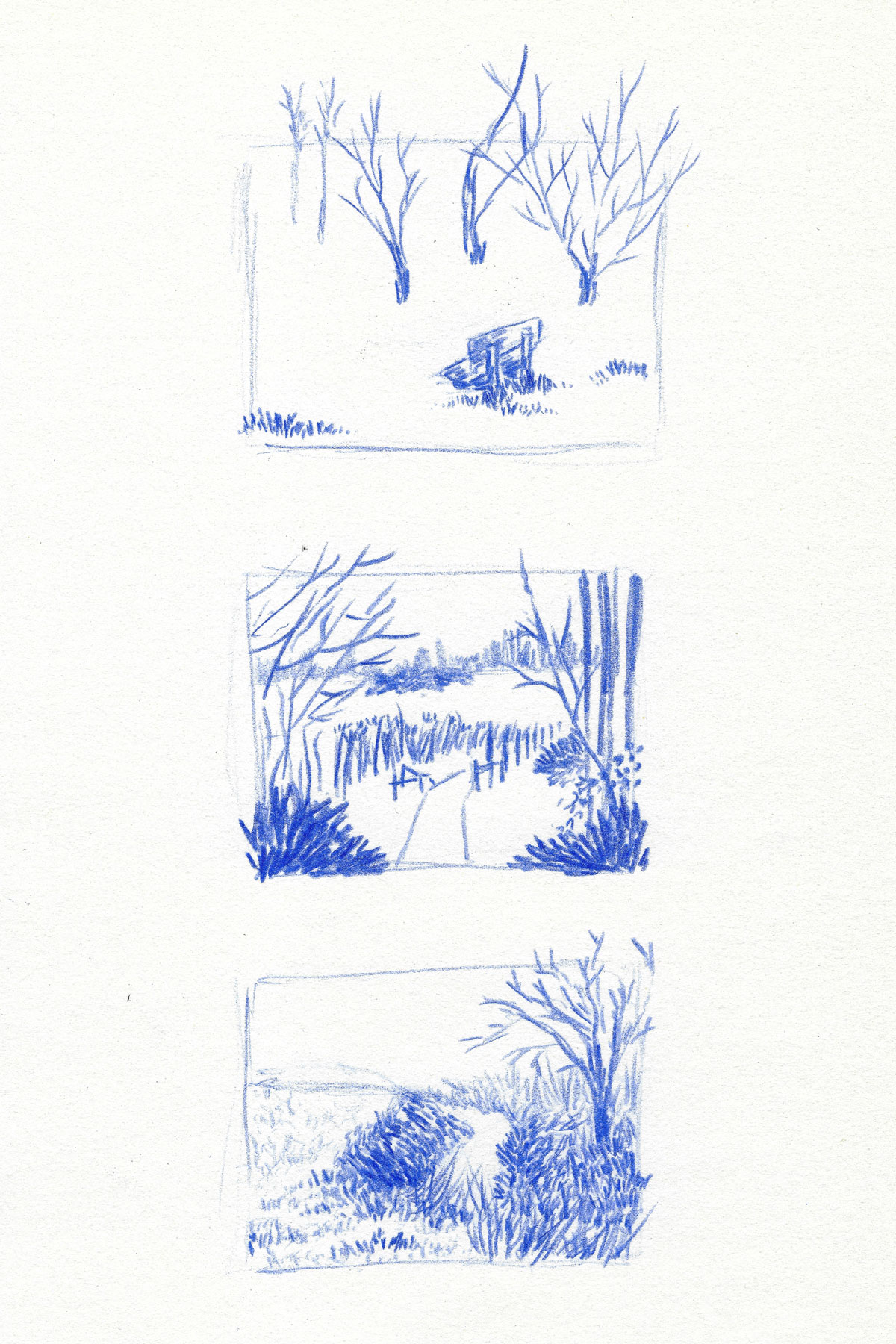
↓ Elke Palmaerts
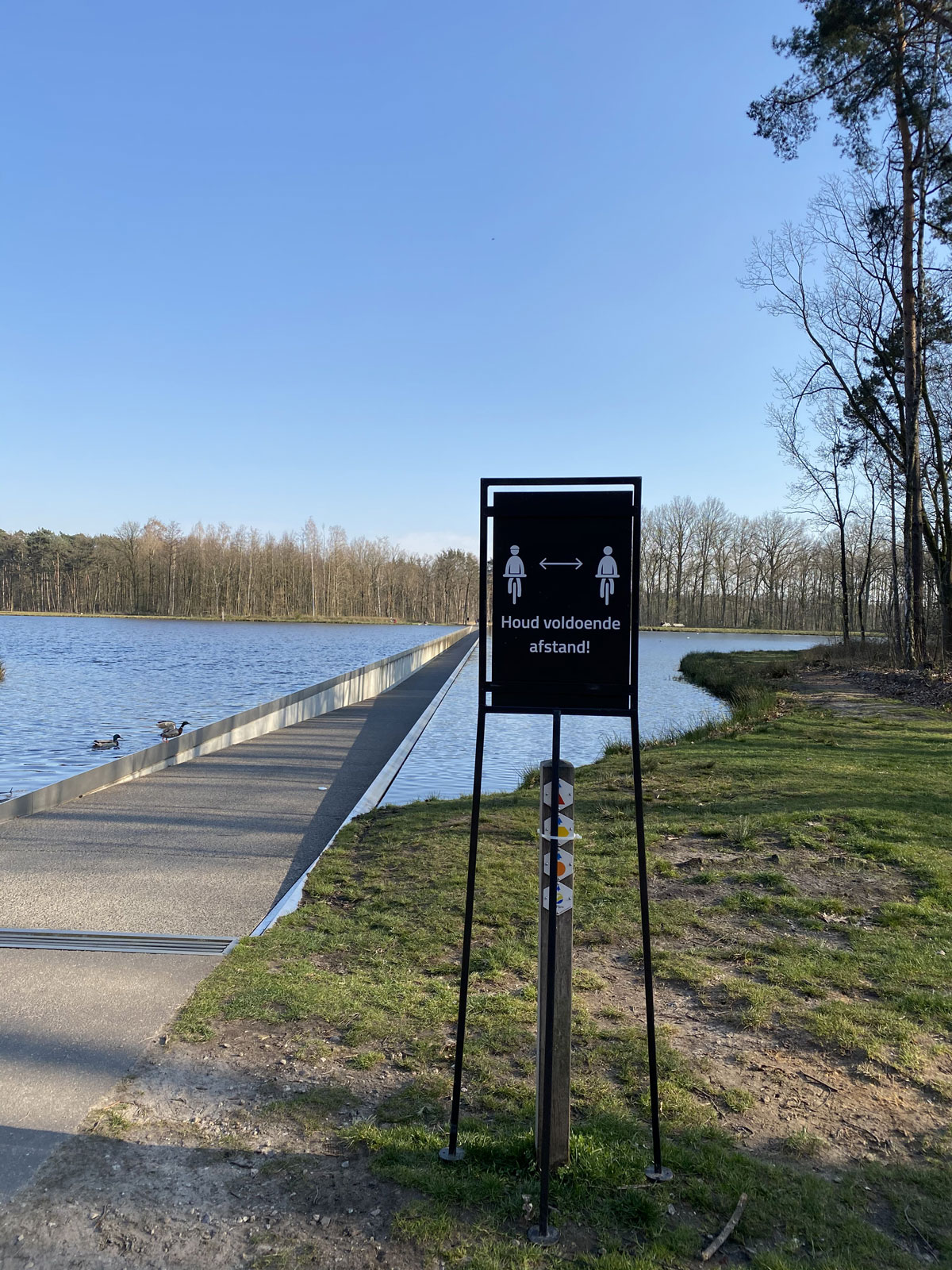
↓ Gert Duquene
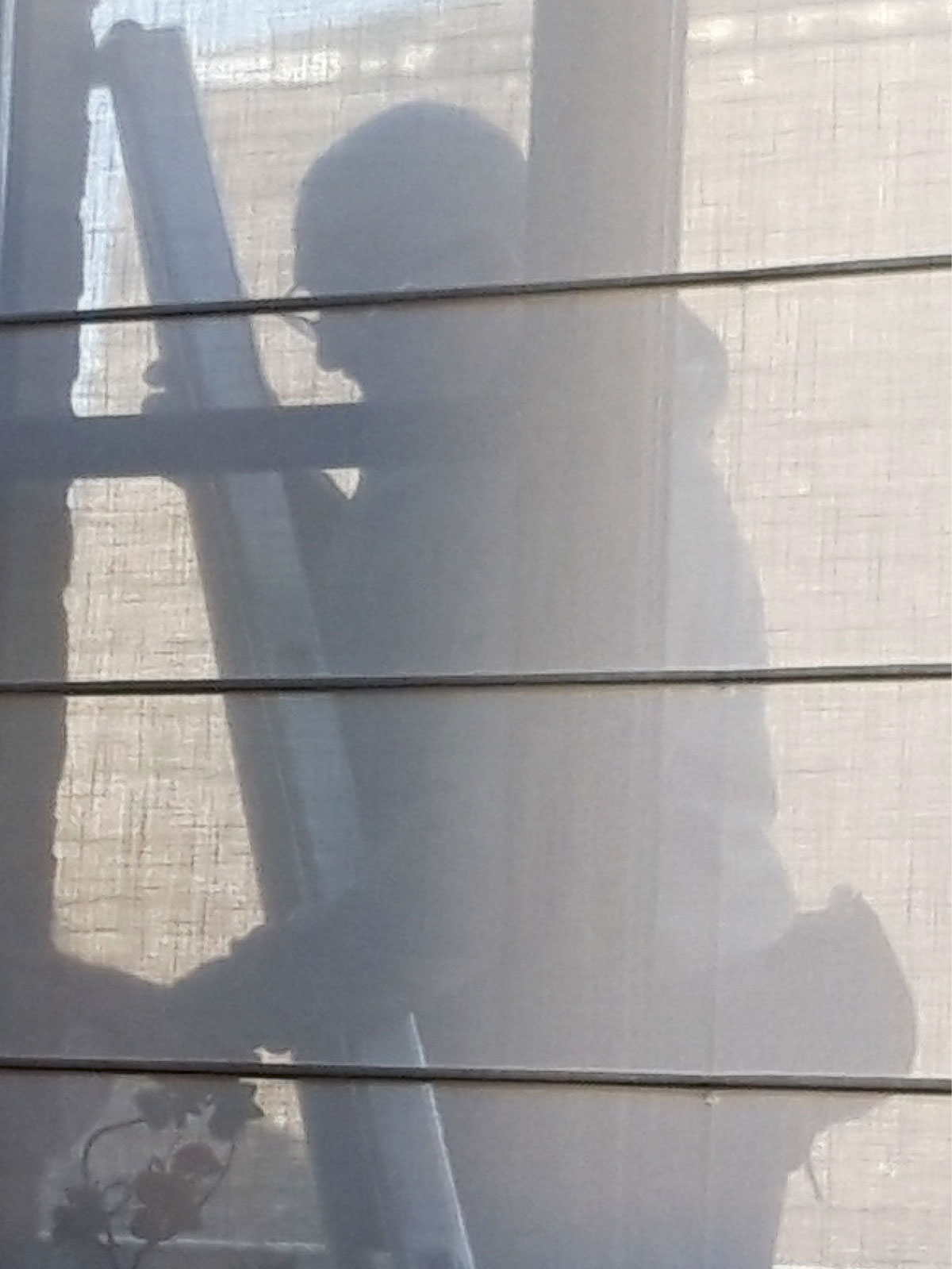
Vrijdag 27 maart 2020
↓ Aleksandra Flammia
Droevig Moe Bang Gefrustreerd Verward Machteloos … Zoveel emoties De ene krachtiger dan de andere Geen schouder om op uit te huilen Alleen een anderhalve meter van leegte Een kus uit de verte Een virtuele knuffel Een enkele blik Dat is waar je het mee moet doen Een man in een bed Nee, een geraamte met een velletje huid eromheen Uitgeholde kassen met gesloten ogen Geen weg meer terug Een slaap waar je steeds moeilijker uit geraakt We weten het Het heeft je te pakken 83 jaar oud Een heel leven vol herinneringen Maar 2 weken was genoeg Nu is het wachten Hoelang nog? 1 uur, 2 uur, 1 dag, 2 dagen? Ik zie je nog steeds lachen De wereld lag aan je voeten Je liefde voor sport eindeloos Net als het najagen van je dromen Ouderdom hield jou niet tegen Die maakte je net sterker Je was niet te stoppen Je was niet perfect Je was jezelf Slaapwel opa Ik hou van je
↓ Louise Jans
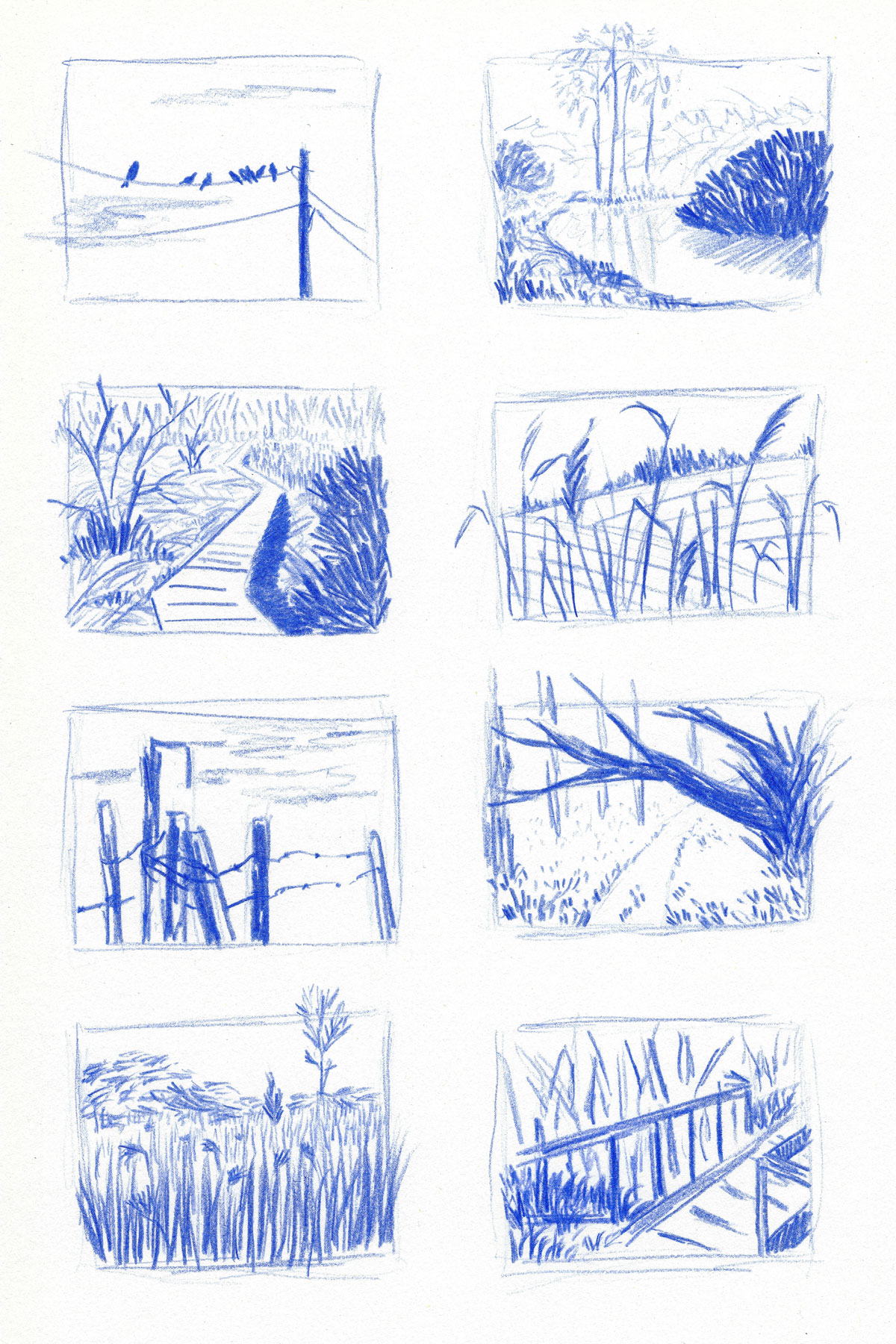
Donderdag 26 maart 2020
↓ Veerle Klein
Ch-ch-ch-ch-changes Turn and face the strange Ch-ch-changes Wake up, you sleepy head Put on some clothes, shake up your bed Look out my window, what do I see All the nightmares came today And it looks as though they’re here to stay Fear is in your head, only in your head So forget your head and you’ll be free The writing’s on the wall While troubles are rising, we’d rather be scared Together than alone Leave my shoes and door unlocked I might just slip away Pale blinds drawn all day Nothing to do, nothing to say Blue, blue Drifting into my solitude, over my head Don’t you wonder sometimes Is there life on Mars?
↓ Naomi Maquiese / Lieven Van Speybroeck

↓ Emile D'Haene
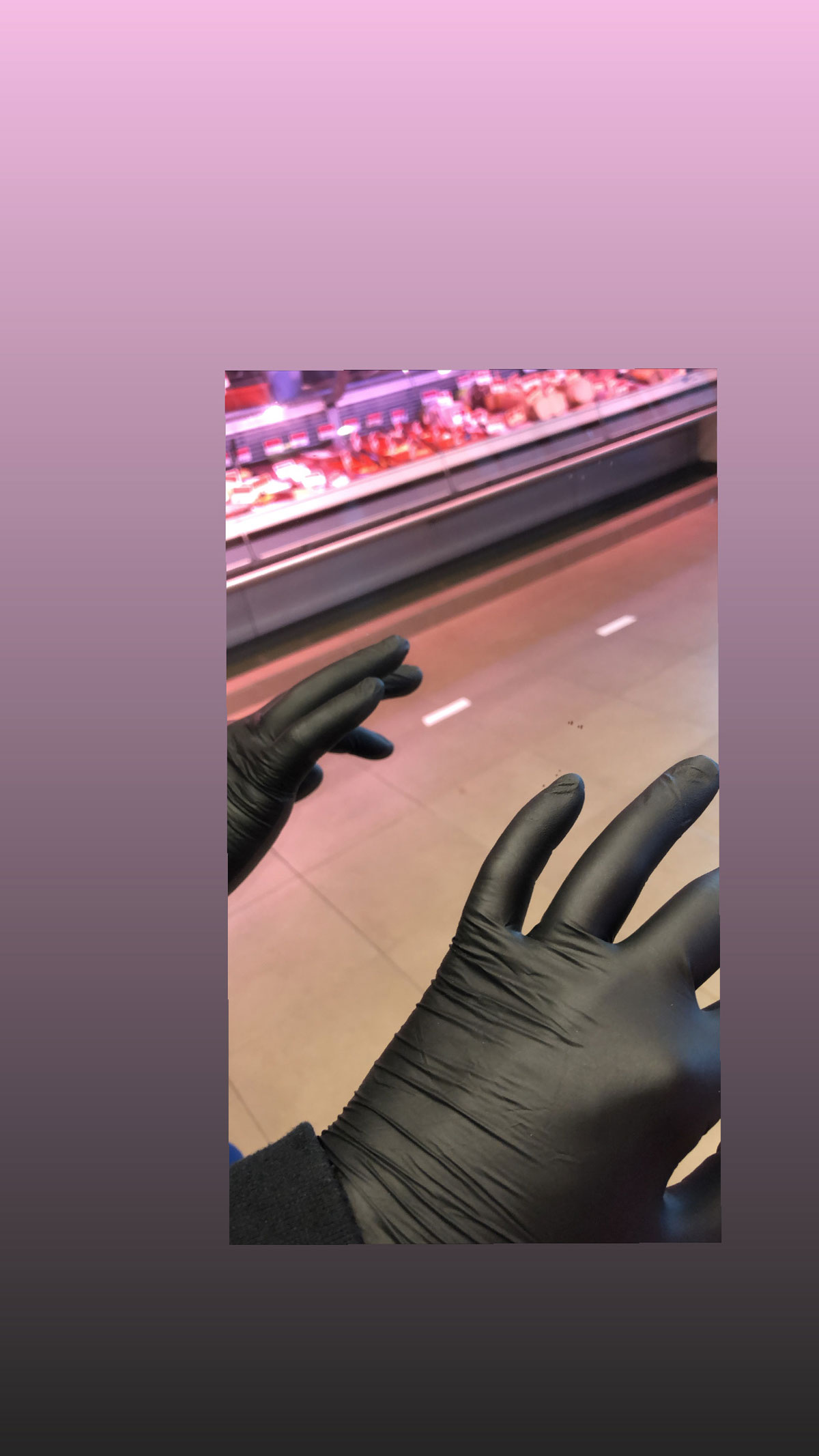
↓ Julie Geudens
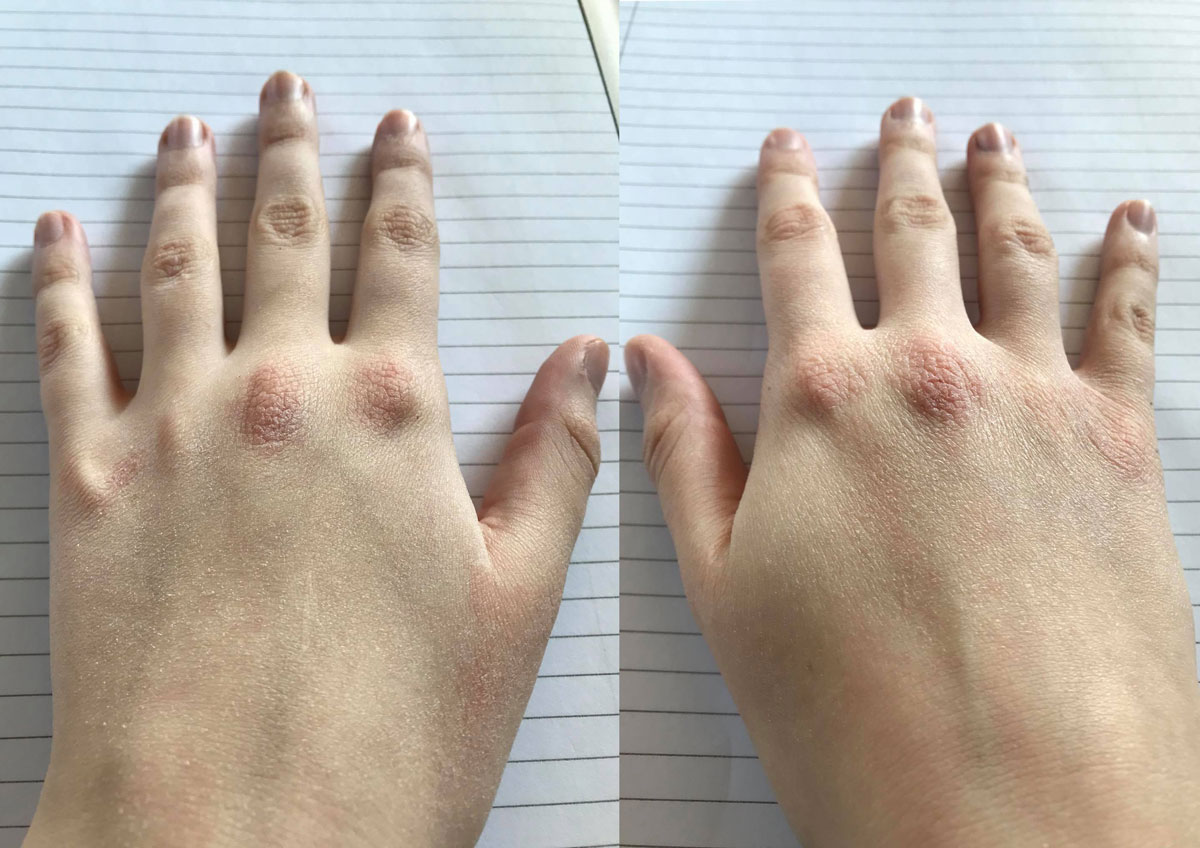
↓ Kayra Rommen
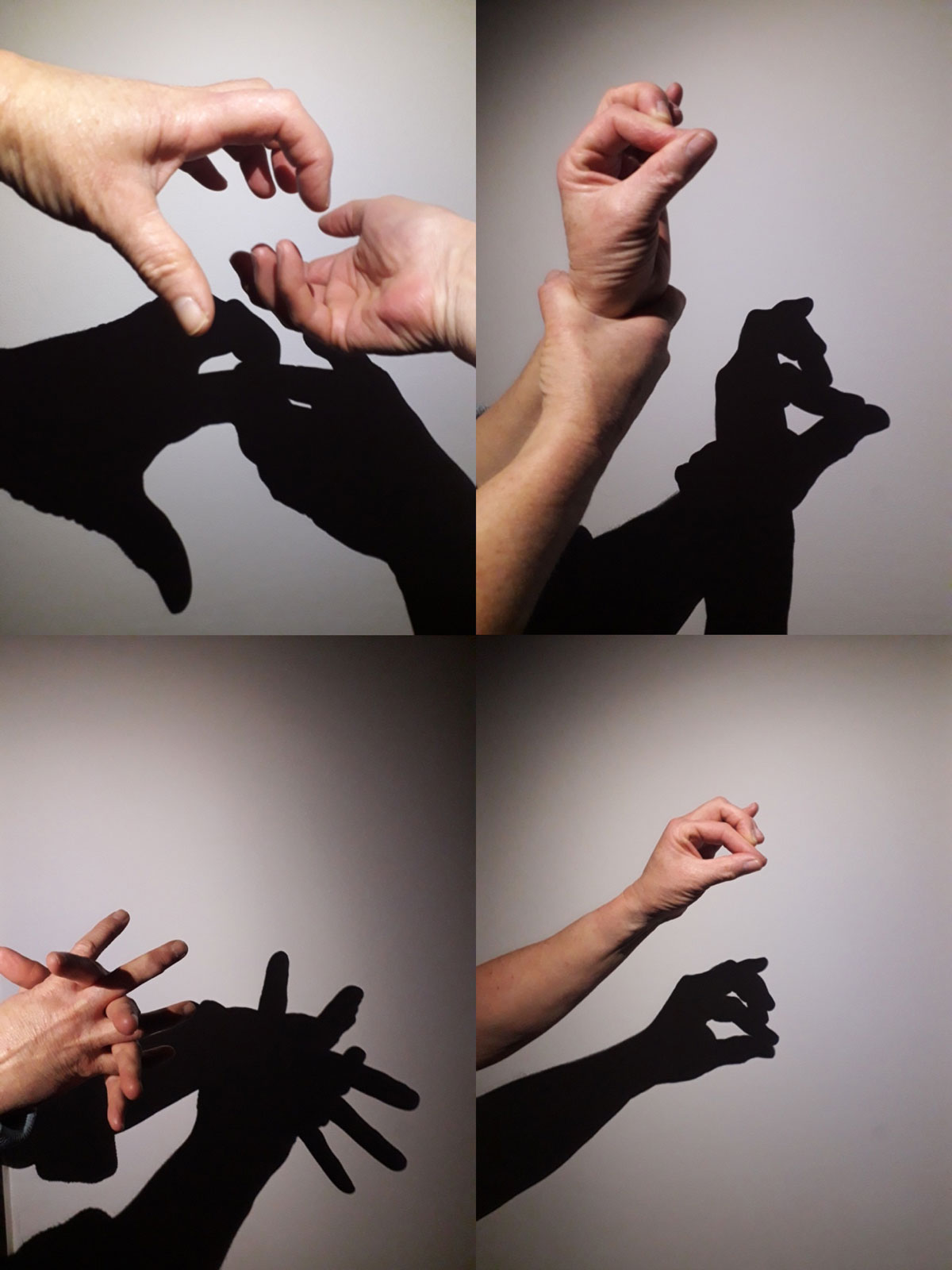
↓ Igor Cleeren
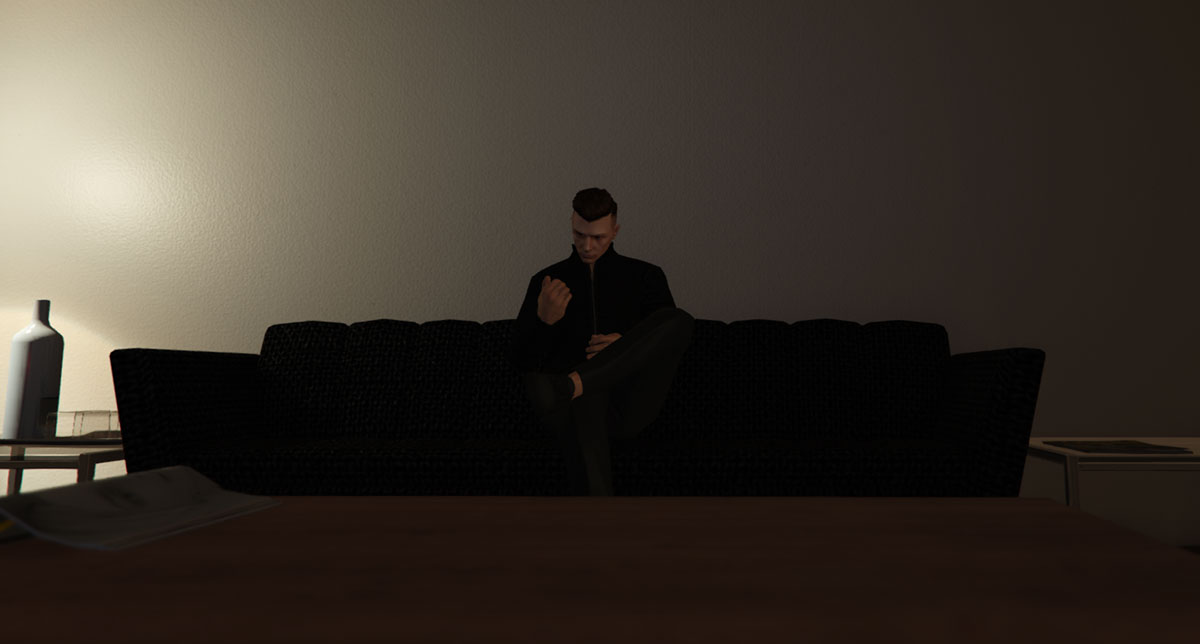
We are about to put the Darwinism back in Social Darwinism, and brother, it is gonna be fun.
– Lester, Grand Theft Auto V
↓ Lara Dheedene
De oceaan warmt 40 procent sneller op dan eerder werd voorspeld, gevolg: zuurstof zeewater vermindert, koraal verbleekt en dieren sterven uit. De sprinkhanenplaag in Oost-Afrika zal veel geld en levens kosten. De 22 rijkste mannen ter wereld zijn rijker dan alle Afrikaanse vrouwen samen. In Australië zijn miljarden dieren gestorven en hangen miljarden roetdeeltjes in de lucht. 22,989 doden door het coronavirus. De wereld is moe. Alsook ik.
↓ Céline Mannens
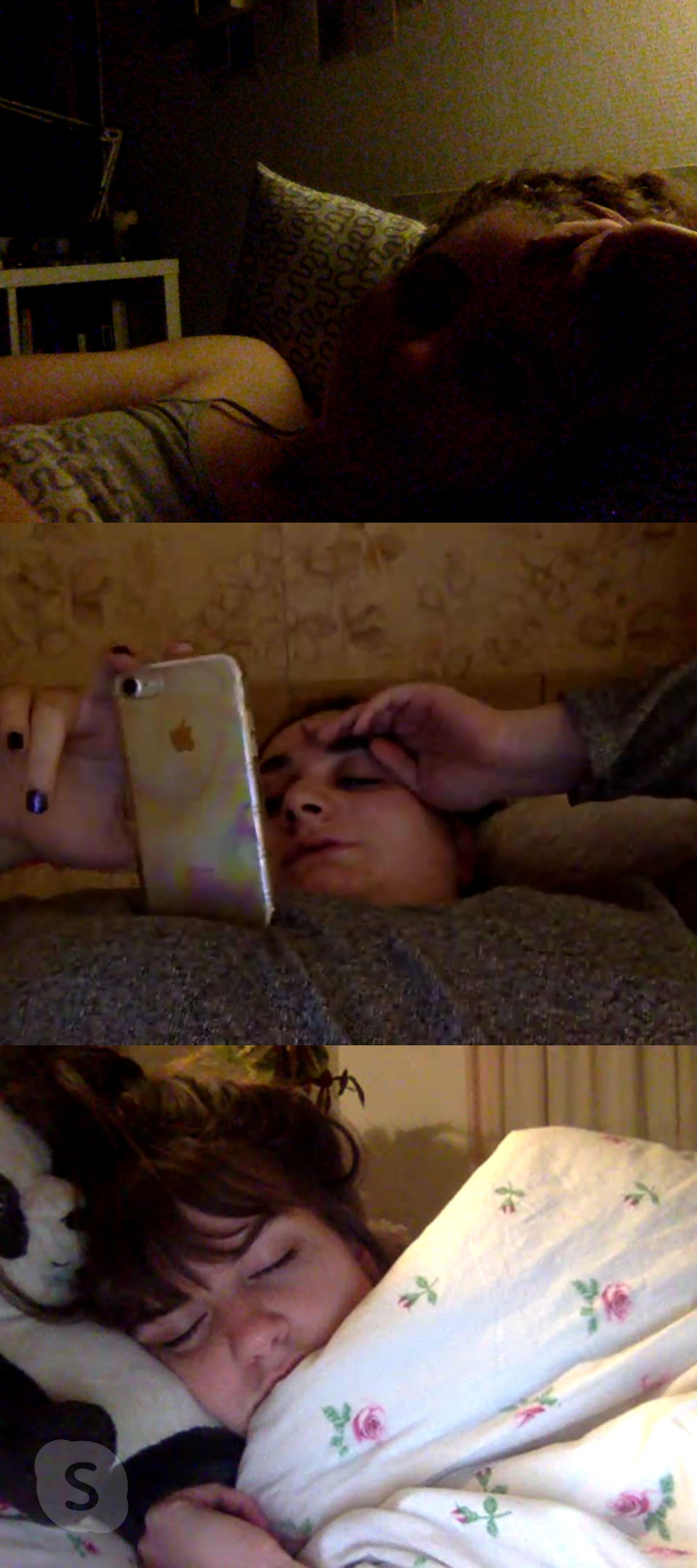
↓ Jessy Cocuzza
Dag 9 van de quarantaine. De ergernis wordt steeds groter en groter bij me. Ik snap dat er wat ergs aan de hand is en dat er maatregelen getroffen moeten worden, maar er klopt gewoon iets niet. Ik zie steeds meer leugens, steeds meer inconsequenties. Een virus… daar bestaat geen twijfel over! Maar is dit allemaal echt nodig? Ik erger me aan het feit dat ze - wie is dat ook? - mij kunnen opleggen om binnen te blijven. “De maatschappij” legt duizenden regels op om mensen in toom te houden, om ORDE te bewaren.
Tegelijk gaat mijn mentale gezondheid zwaar achteruit en ik ben zeker dat ik niet de enige ben die dit zo ervaart. En intussen blijven de mensen maar online zeiken over hun kleinste beslommeringen. Ik denk, ik denk voortdurend… En hoe meer ik denk, hoe meer ik besef dat ik hier niet hoor. De mensen rondom me lijken zich tevreden te stellen, maar waarom kan ik dat niet? Waarom denk ik na over waarom ik hier eigenlijk ben? Dat maakt alles zoveel moeilijker. Ik zit hier thuis opgesloten, met een grote drang naar menselijk contact. Maar het is alleen maar ik, mezelf en mijn gedachten. Het enige wat ik nog weet is dat ik eigenlijk niks meer weet.
↓ Ekatériné Lortkipanidze
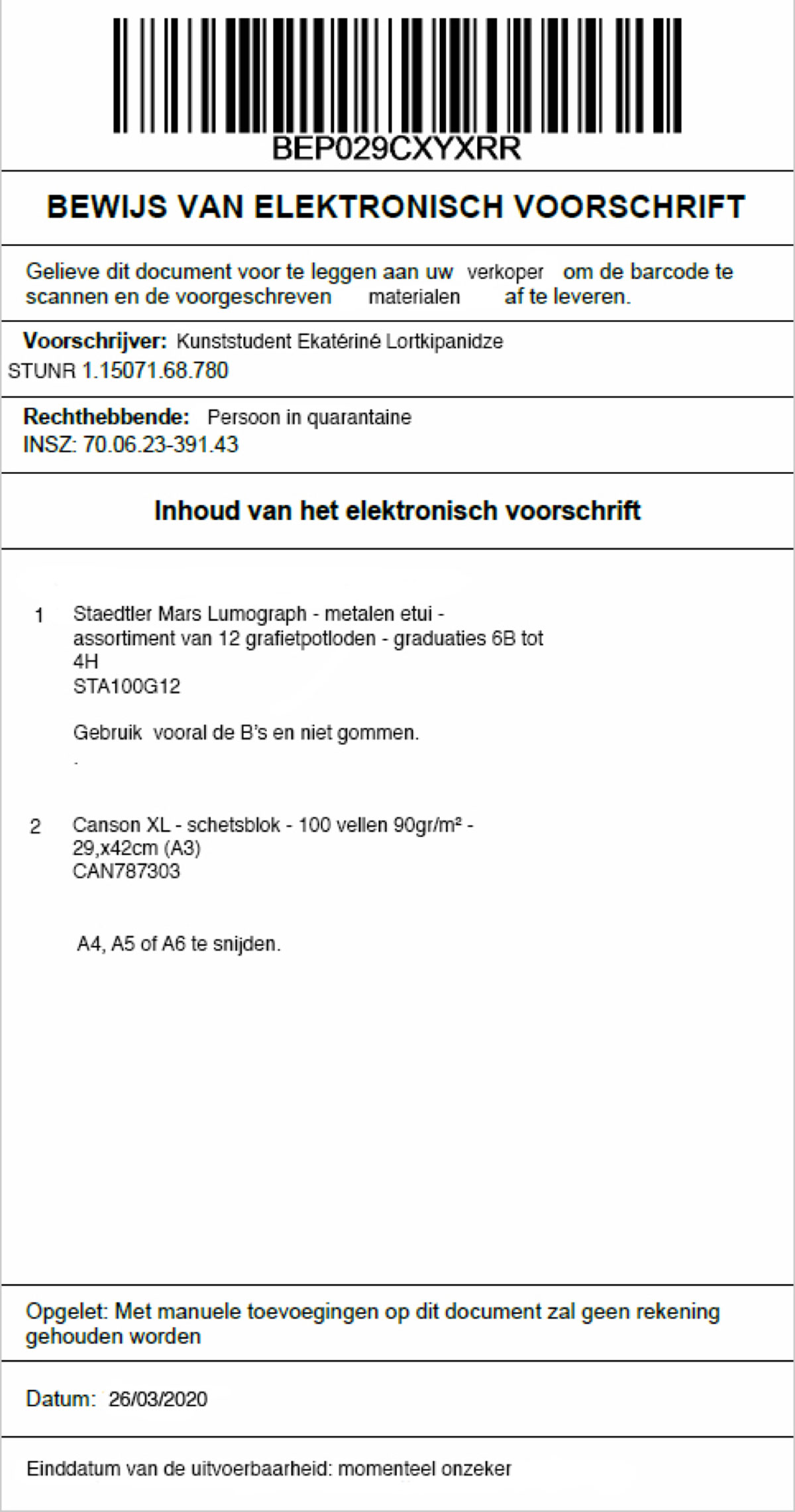
↓ Frauke Coune
Wandel met de hond Kom een vrouw tegen Staat een beertje achter haar raam Zegt dat het triestig is Dat ze niemand ziet Wandel verder Hond snuffelt aan iets Twee mensen halen in Bekijken mij lang Zeg ‘hallo’ Zeggen pas na een paar meter ‘hallo’ Wandel verder Vrouw ziet me aankomen Gaat snel naar binnen Slaat resoluut deur dicht Steek een paar straten over Kom een vrouw en kind tegen Reageren enthousiast op de hond Wandel verder Kom niemand meer tegen Ben thuis
↓ Louise Jans
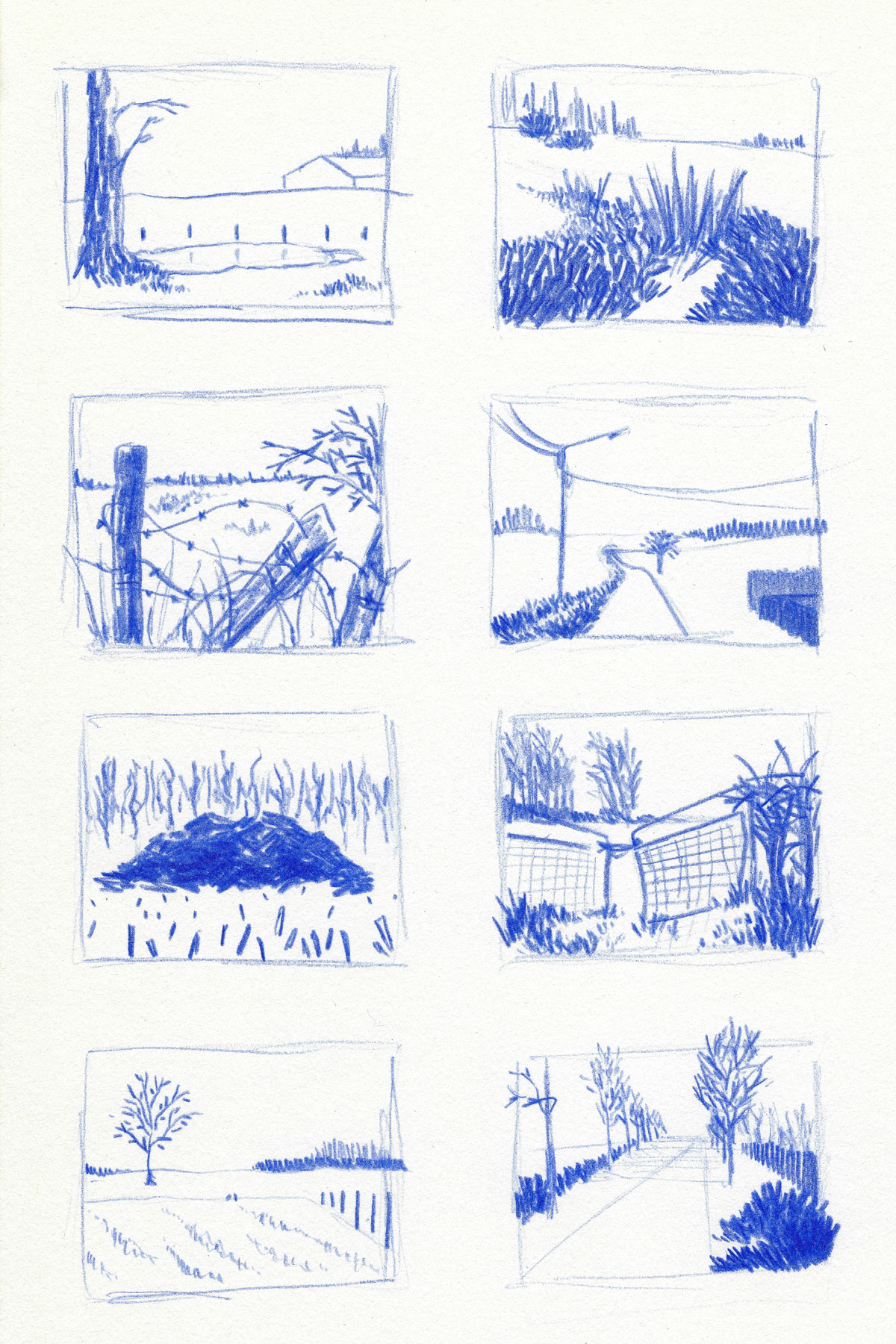
↓ Liselot Smolders: What’s happening?
Dag negen van de lockdown en nog nooit heb ik zoveel mensen buiten zien komen als in de afgelopen week. Begrijp me niet verkeerd, doorgaans worden de regels wel nageleefd. Zo zie je voornamelijk gezinnen of groepjes van maximum twee personen, met uitzondering natuurlijk van een aantal idioten die HELEMAAL NIET luisteren en gewoon hun zin doen.
Alleszins, twee dingen vallen enorm op. Ten eerste, mensen doen nu veel, en echt veel meer met het gezin. Natuurlijk is de uitleg dat daar in normale tijden geen tijd voor is, maar het is toch frappant dat mensen plots wel graag gaan wandelen met de kids en dat in tijden dat het eigenlijk wordt afgeraden buiten te komen kinderen net wel buiten gaan spelen, terwijl ze op een normale woensdagnamiddag urenlang achter de Playstation zitten om duimoefeningen uit te voeren. De gezinsuitjes en het 24 uur op 24 samen zijn kan twee kanten uitgaan. Ofwel gaan rechters en advocaten in het najaar goed weten wat doen, ofwel gaan de ziekenhuizen weer vol liggen, dan niet met half dode, maar met half levende wezens.
Ten tweede valt op dat mensen plots massaal gaan sporten, en dan vooral lopen. Wielertoeristen zijn er altijd wel te spotten als de zon een beetje schijnt, maar lopers? Niet echt. Dik, dun, klein, groot, licht, donker… mensen in alle maten en kleuren zie je hier plots ook rondlopen in het verre Ramsel, waar normaal nooit iets te beleven valt, afgezien dan van “DE potjèrkruiwagenkoers”, die dit jaar helaas niet zal doorgaan. Maar goed, genoeg reclame voor het charmevolle Ramsel – al is het absoluut een goede vakantiebestemming voor deze zomer (er is zelfs een hotel met alpaca’s). Alleszins, ik sta ervan te kijken hoeveel mensen plots kunnen lopen. Al tien jaar doe ik aan atletiek en al tien jaar zeggen mensen mij: “eikes”. Maar nu, nu komt iedereen plots uit zijn luie zetel om die nieuwjaarsvoornemens die al vijf jaar dezelfde zijn eindelijk waar te maken. Zouden mensen dit ook volhouden na Corona? En wat met al die diëtisten? Wat als er binnenkort geen obesitas meer is? De kinesisten daarentegen gaan met veel te veel werk zitten.
In elk geval, ons hele economische systeem komt in de problemen. Want wat met al die werklozen nu? Wij zullen nog lang corona-belastingen mogen betalen, dat is zeker - en ik ben net 20.
↓ Lotte Vrancken

↓ Leroy Goorts
Ik word hier lockdown van.
Woensdag 25 maart 2020
↓ Gert Duquene
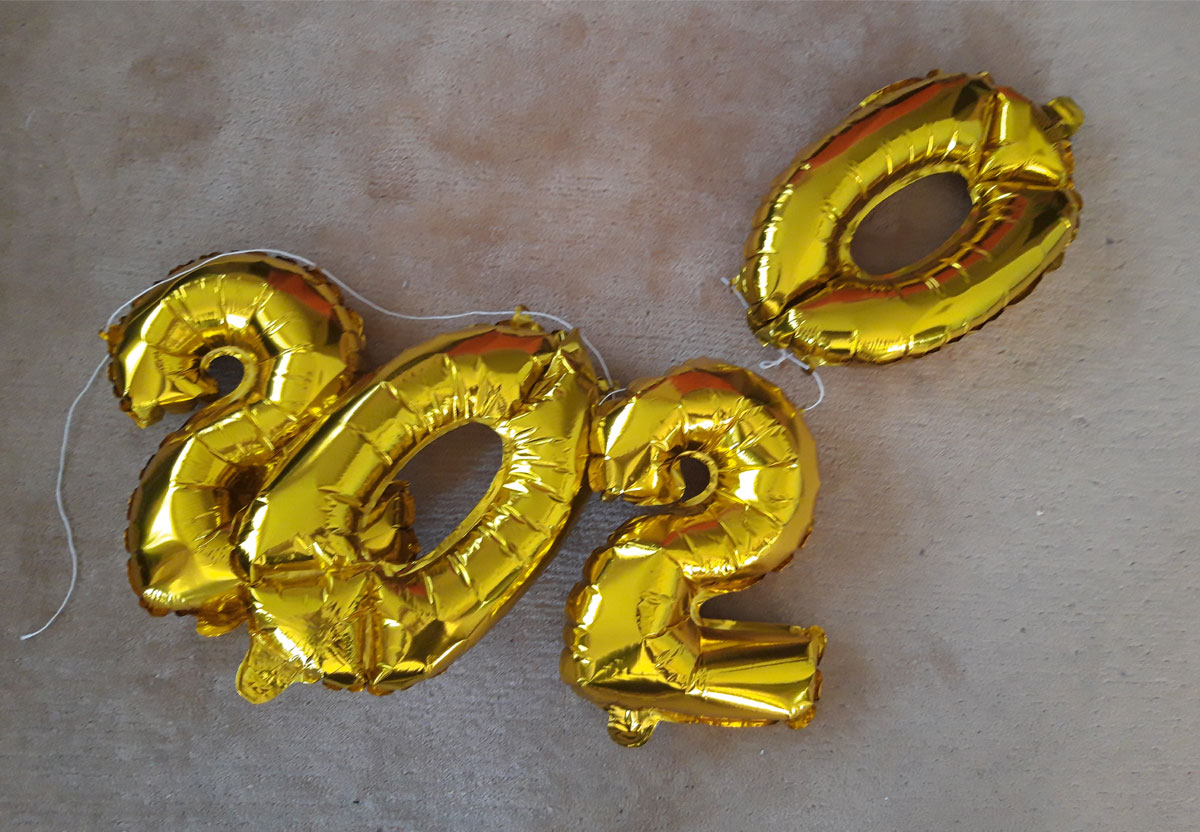
↓ India Feller
Ik heb altijd gezegd dat ik voor mijn 55ste binnen wilde zijn,
maar zo letterlijk bedoelde ik het niet.
↓ Louise Jans
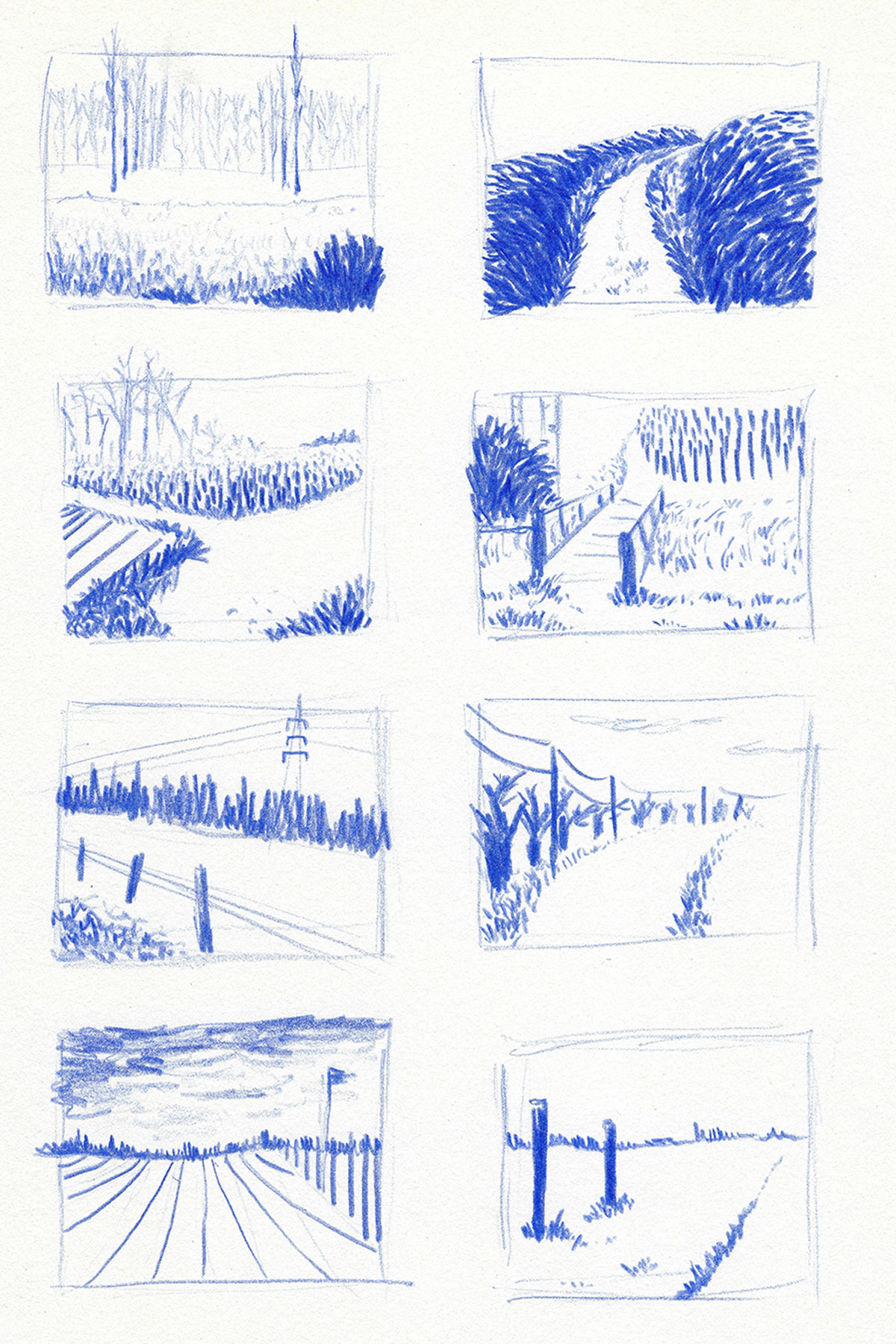
↓ Anouk Deflem / Naomi Maquiese / Lieven Van Speybroeck
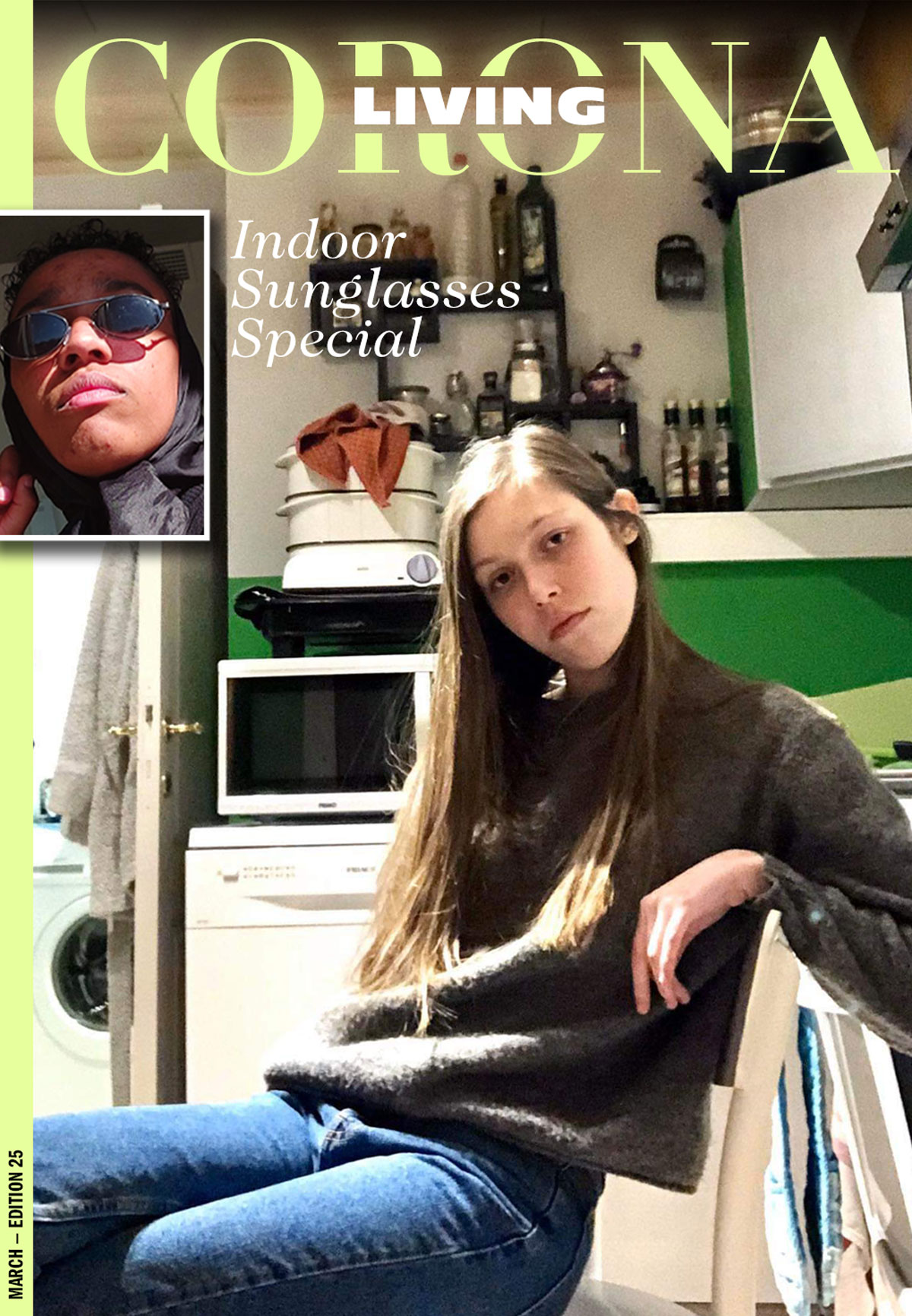
↓ Romi Paspont
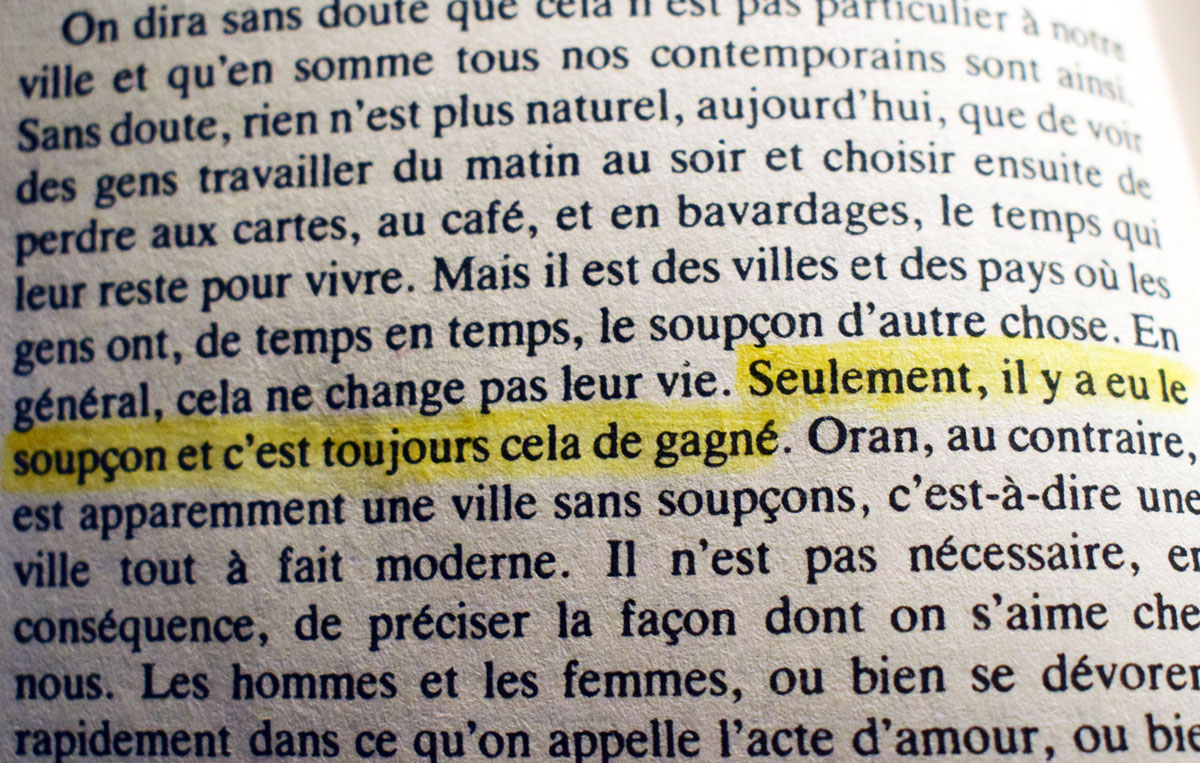
↓ Corneel De Schamphelaere / Lieven Van Speybroeck
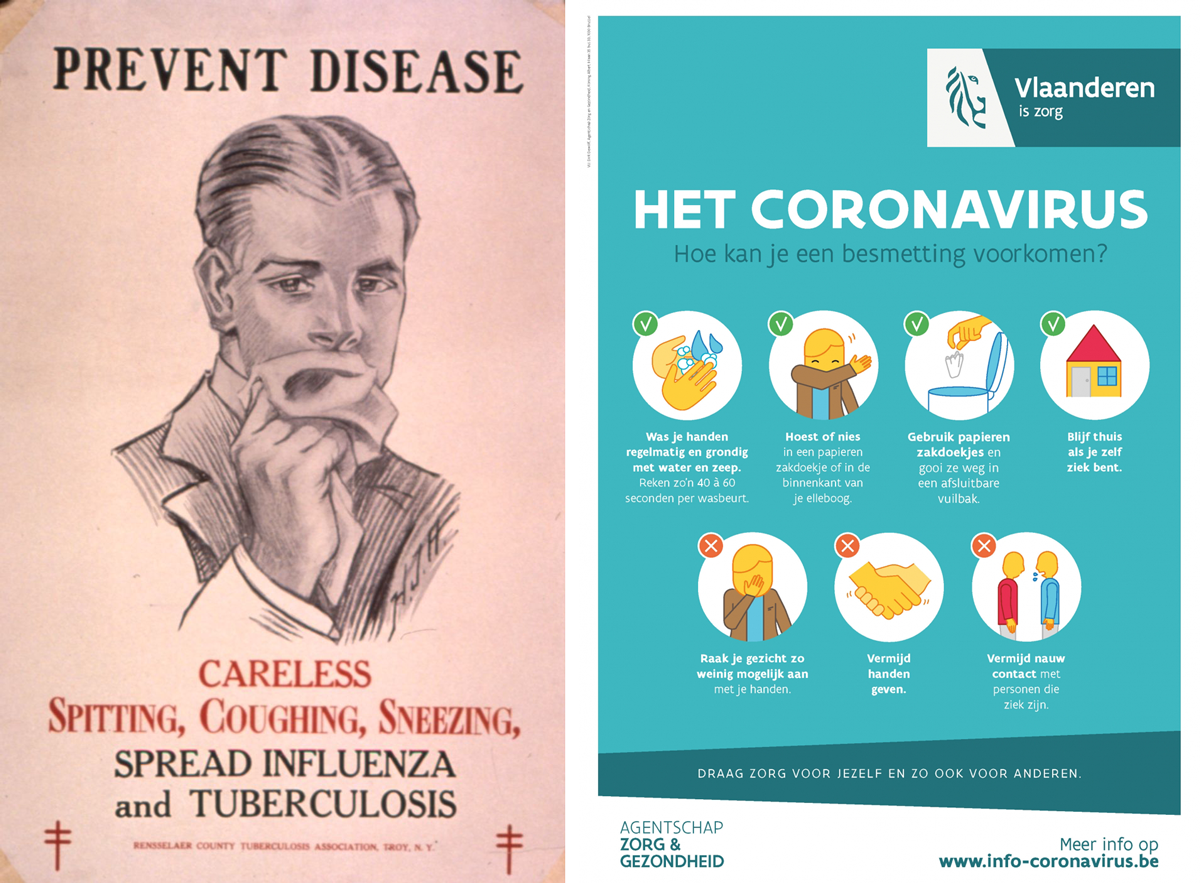
Dinsdag 24 maart 2020
↓ Céline Mannens
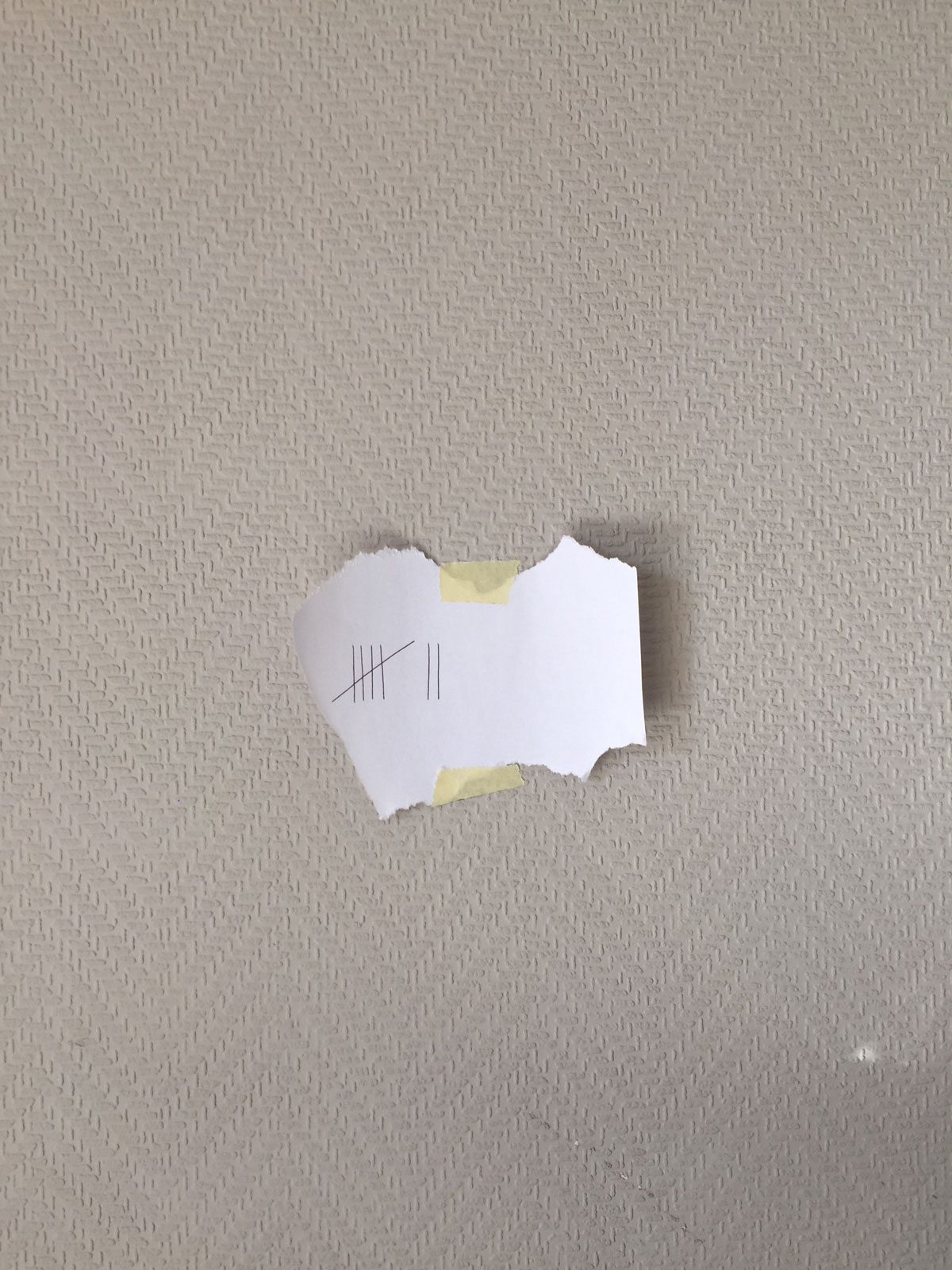
↓ Lara Dheedene
Hoe onrust steeds bij mij zo sluimerend het bedaren belet en ik het dan nog stilletjes koester
↓ Louise Jans
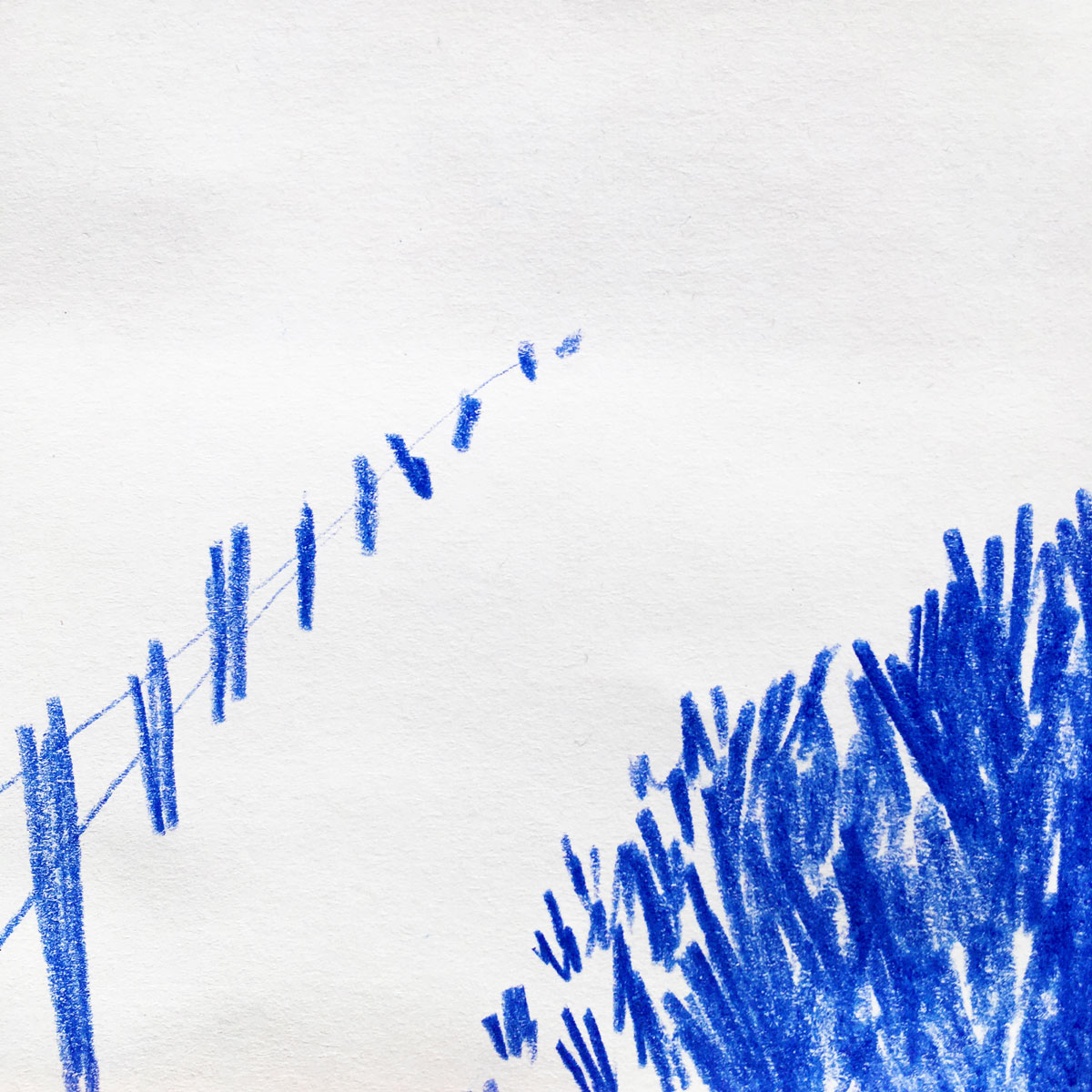
↓ Cas Doggen
Bepaalde mensen slaan de bal mis met hun bezorgdheden. ‘30 minuten in de winkel? Ik wil op mijn gemak de producten vergelijken!’, ‘De boetiek waar ik altijd kleren koop levert niet aan huis!’ of nog sterker ‘Geen vakantie deze zomer naar het buitenland?!’ Ik snap de frustratie, maar sommigen van ons vrezen voor een tekort aan medicatie, maken zich zorgen om hun ouderen/zwakkeren en vragen zich af hoe het zit met een ziekte- of werkloosheidsuitkering te midden van dit alles?
De plezierreisjes naar de Bahamas kunnen wel wachten. Misschien moeten we eens tijd maken om te denken aan de anderen? Aan hen die geen spaarrekening hebben, die maar twee keer per jaar gaan shoppen tijdens de solden en geen stabiel inkomen hebben. Aan hen die al jaren dromen van een reisje, al was het maar naar Duitsland. Aan hen die geen thuis hebben: daklozen, ongedocumenteerden, mensen die noodgedwongen hulp en asiel aanvragen. Zij hebben het het zwaarst in deze periode.
De (financieel) welgestelden in onze maatschappij staan vaak mijlenver af van de dagelijkse problemen van de minderbedeelden. Covid-19 haalt zowel het beste als het slechtste in de mens naar boven. Zijn behulpzaamheid en goedhartigheid straalt meer dan ooit in de zorgverleners, gemeentewerkers, leveranciers en winkelbedienden. Maar jammer genoeg legt de pandemie ook zijn problematische eigenschappen bloot.
Terwijl de goegemeente klaagt over haar tekort en gemis in een ruime nieuwbouw of klassieke villa met alle comfort en faciliteiten, zal ik rustig nog wat verder niksen en jagen op toiletpapier in de lokale Aldi.
↓ Ekatériné Lortkipanidze
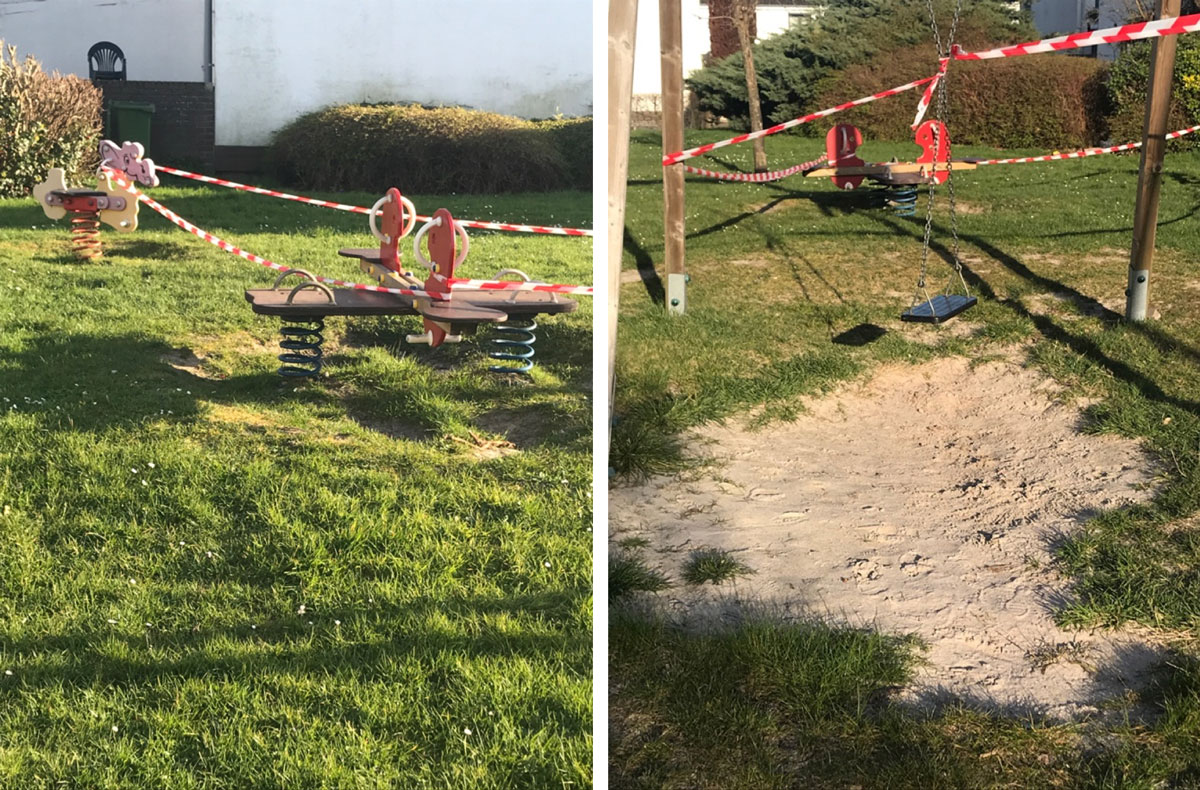
↓ Merve Kilinc

↓ Anouk Deflem / Lieven Van Speybroeck
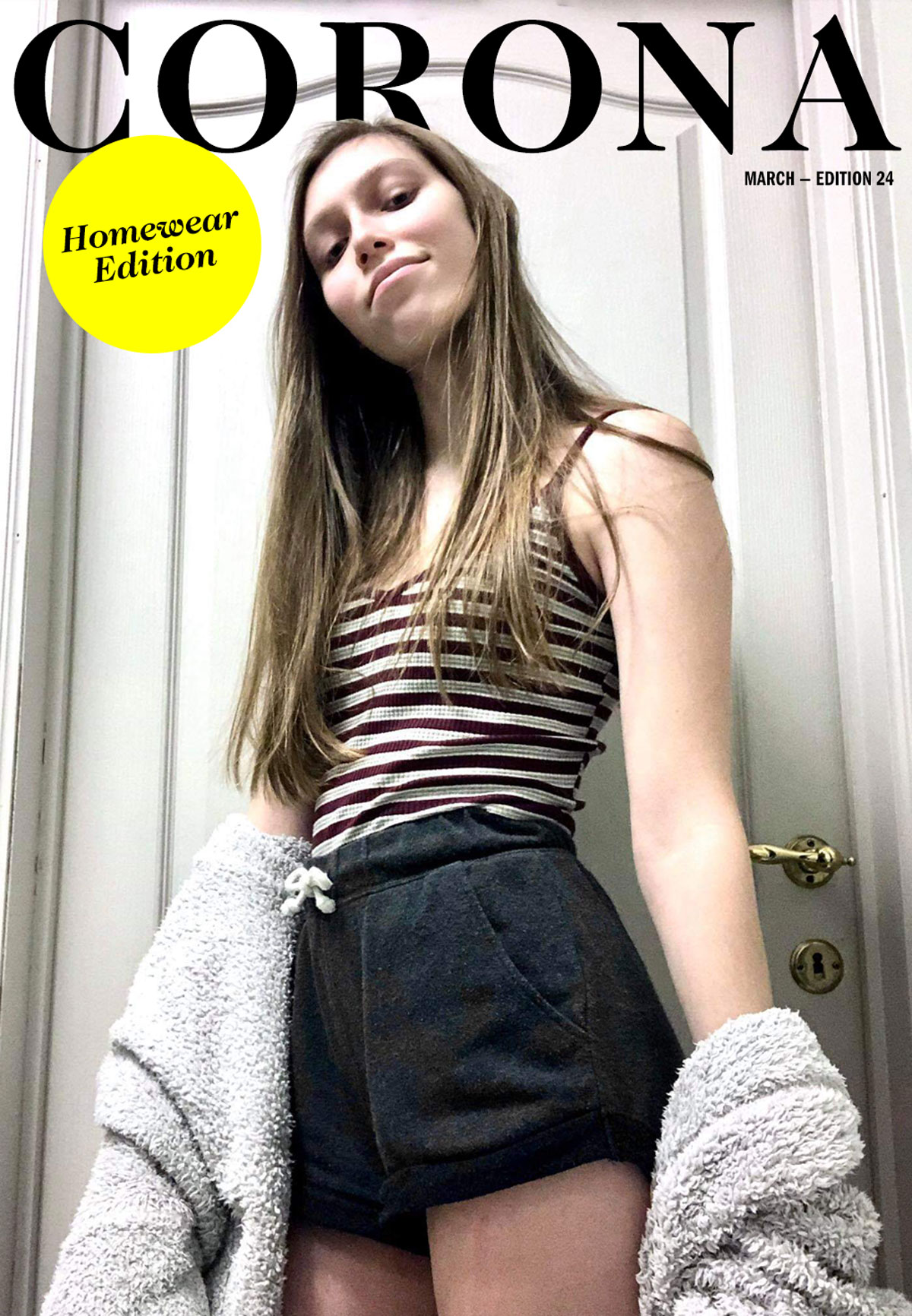
↓ Lisa Schelkens: dag 7
Ik weet niet of ik deze logboekopdracht nog lang kan volhouden. Op de een of andere manier ben ik blij dat ik me niet verveel met die stapel schoolwerk naast mij. Tegelijk ben ik heel ongelukkig want ik wil me ook gewoon vervelen. Voor velen is het coronatijdperk de pest… De pest is corona? Corona is de pest? Stop met mij te pesten!
Alles wat ik lees of zie komt precies in verband te staan met corona? Hoe kan dat nu? Ik zit precies in een film als The Number 23 - echt een vette film trouwens met Jim Carrey, die eens niet onnozel doet.
Ik citeer uit Weg van het denken van Alan Watts: “Je kunt jezelf kastijden en je geest leren beheersen en allerlei buitengewone dingen doen – zoals water drinken via je rectum en met je neus een pinda tegen een berg opduwen. Er zijn tal van vaardigheden waarmee je bezig kunt zijn.” Ik ga voor de pinda…
Ik citeer uit Verslaafd aan geluk van Eric G. Wilson: “Wij leven in een onheilspellende tijd. Elke schichtige blik belooft een potentiële ramp. De meeste ochtenden doet paranoia ons wakker schrikken en wankelen we in een spookachtig zonlicht naar buiten. ’s Nachts brengt angst de duisternis tot leven. Dromen vol verlaten straten spoken door ons rusteloze hoofd. Gekweld door deze voortekens, even vaag en ongrijpbaar als de duistere gruwel die ze suggereren, doen wij verwoede pogingen om te achterhalen waar we nu eigenlijk bang voor zijn. We laten een afschrikwekkende litanie van wereldwijde problemen de revue passeren. Met deze opsomming hopen wij een zin in, een aanwijzing voor ons onbehagen te vinden.”
De tekst gaat eigenlijk over de klimaatopwarming… Die zit er waarschijnlijk ook nog aan te komen. Alhoewel, als Moeder Natuur deze aardkluit maandelijks eens goed opkuist, dan zijn we met nimeer zoveel om het hier te vervuilen. Misschien is dit een voorteken. Whoeeee conspiracy theories!!!! Nee, ma echt serieus ? Da kan toch? Kijk naar de propere wateren in Venetië. Kijk naar de drastisch verlaagde Co2-uitstoot… I MEAAAAN, KOMOP. Ik denk dat Greta Thunberg blij is met het coronavirus (al heeft ze het nu zelf naar ‘t schijnt). MA IK ZEN ALLESZINS NI BLIJ MET HET CORONAVIRUS, ma vanavond gaan we spaghetti eten, dus dat maakt alles weer een beetje beter.
↓ Paulien Bloemen
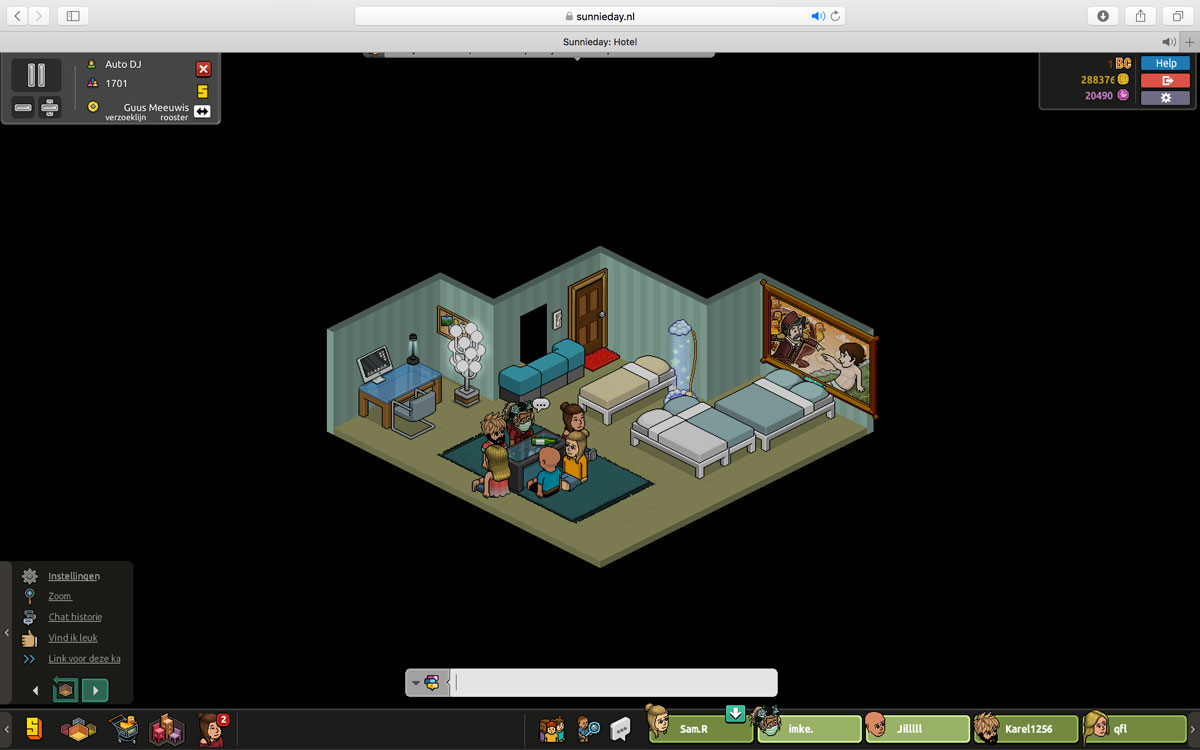
Maandag 23 maart 2020
↓ Anouk Deflem / Lieven Van Speybroeck

↓ Frauke Coune
Sta op Eet wat Kleed me aan Lees mijn mail Begin te werken Werk nog wat Vloek eens Begin te wenen Sport wat Neem een douche Eet Kijk wat tv Werk nog wat Vloek nog wat Doe de kachel aan Eet een appel Lees wat Ben de 4 muren moe
↓ Louise Jans
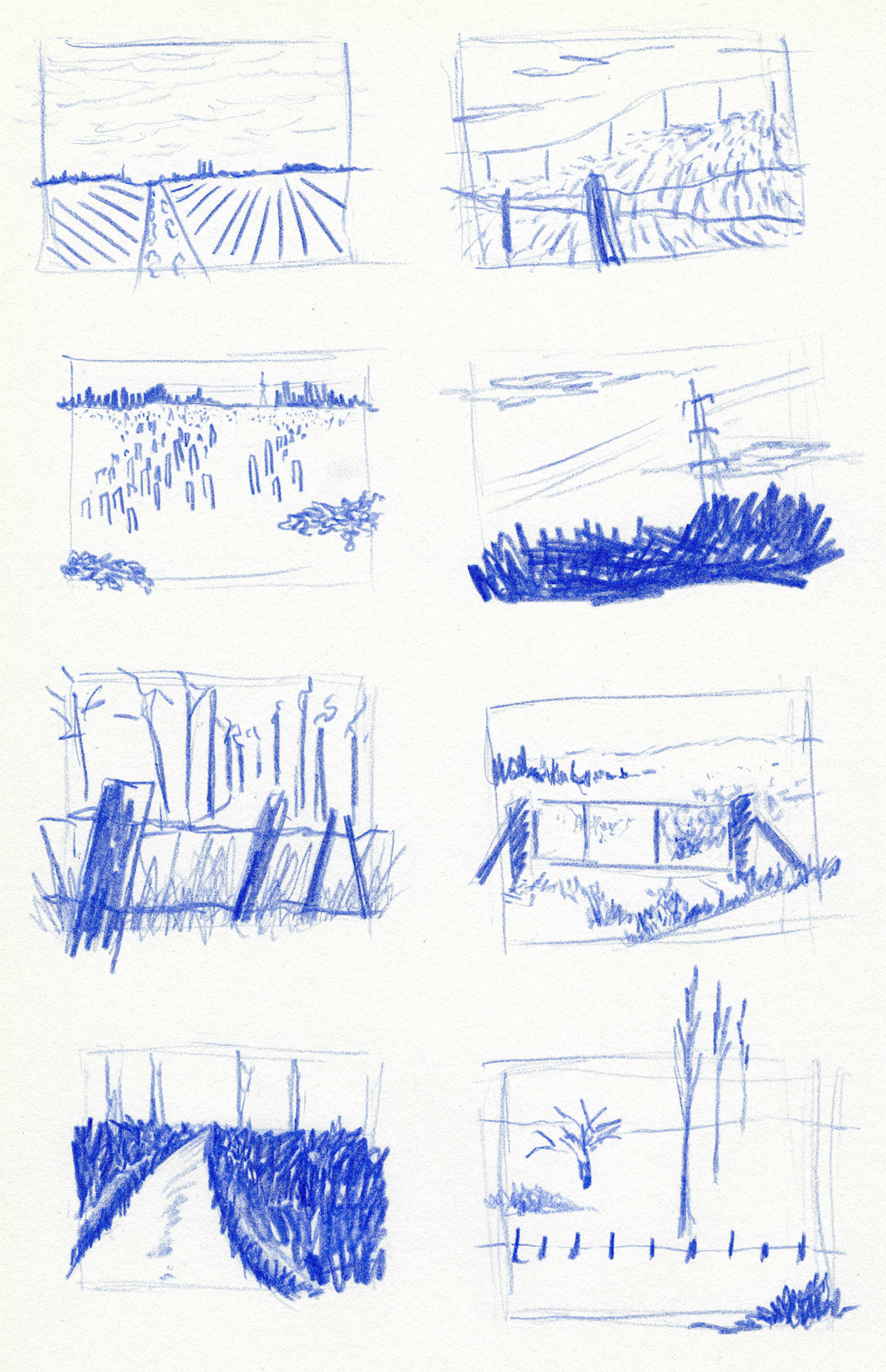
↓ Flore Van Gorp
zwaai
schok
schud
waggel
blinkende imperfectie
flirt met
de oplettendheid
van het pluizige schepsel
geluk,
verhulde potsierlijke traditie
het gelukskatje
招き猫, maneki neko
mag de grens niet meer over
geviseerd
door mijn poes
die exploreert het plastic
poot links
poot rechts
ik denk eraan hem te vergezellen
links rechts
links rechts
samen op het raamkozijn
ik, en mijn poes.
↓ Fay Janssen
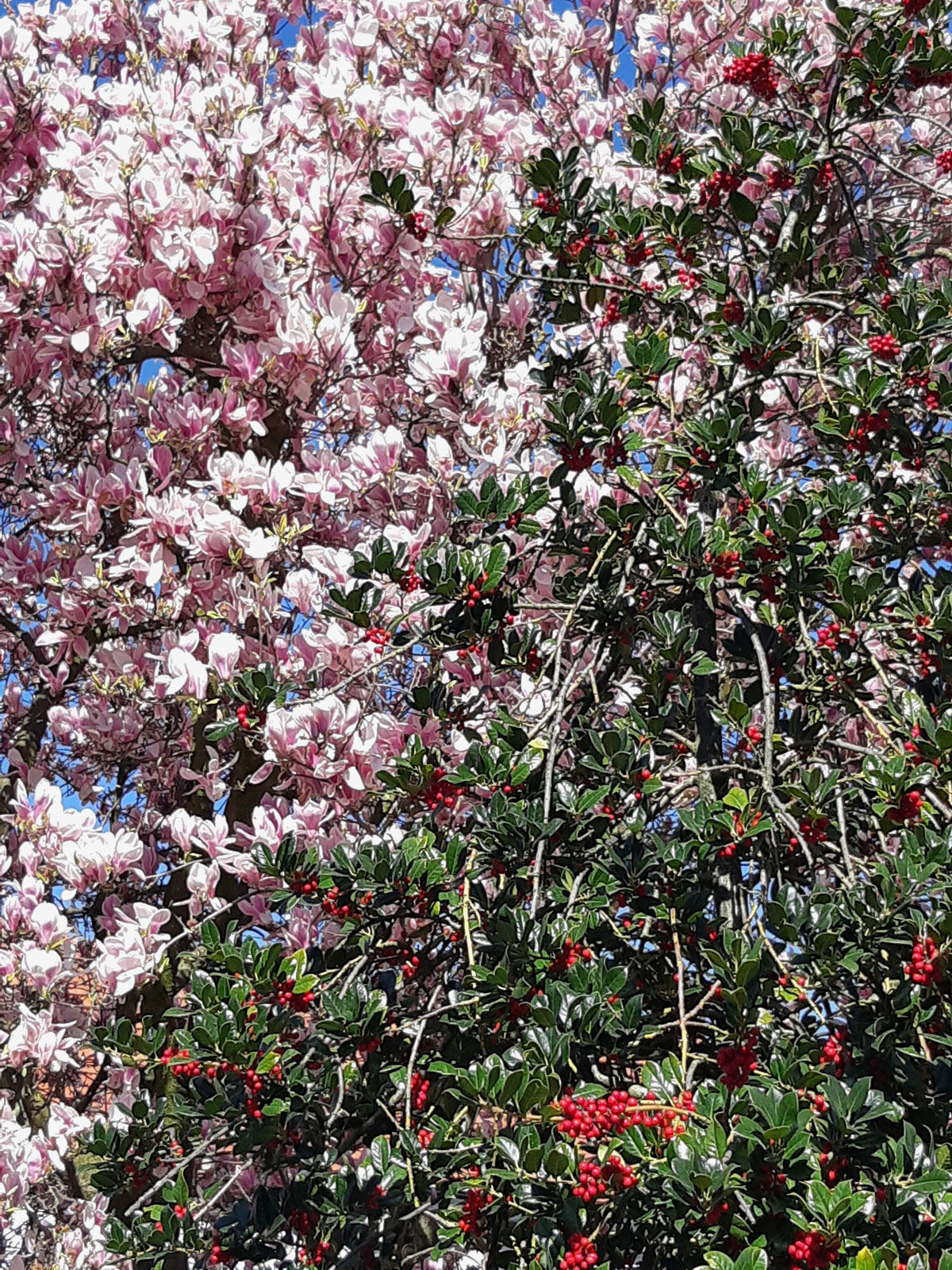
↓ Oriana Calemi
↓ Paulien Bloemen
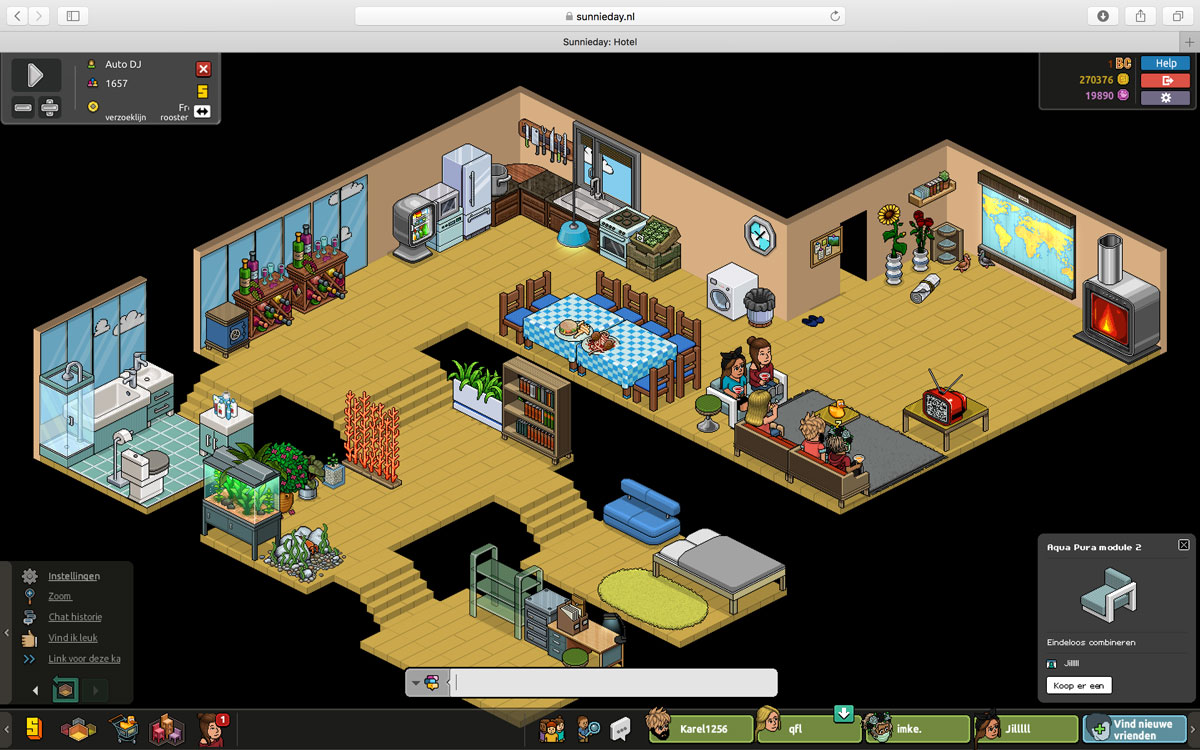
Zondag 22 maart 2020
↓ Lisa Schelkens: dag 5
HET IS ZONDAG DUS RUSTDAG EN DUS OOK GEEN SCHOOLDAG FUCK YOU IK DOE NIET MEE VANDAAG
Zaterdag 21 maart 2020
↓ Evelien Nagels
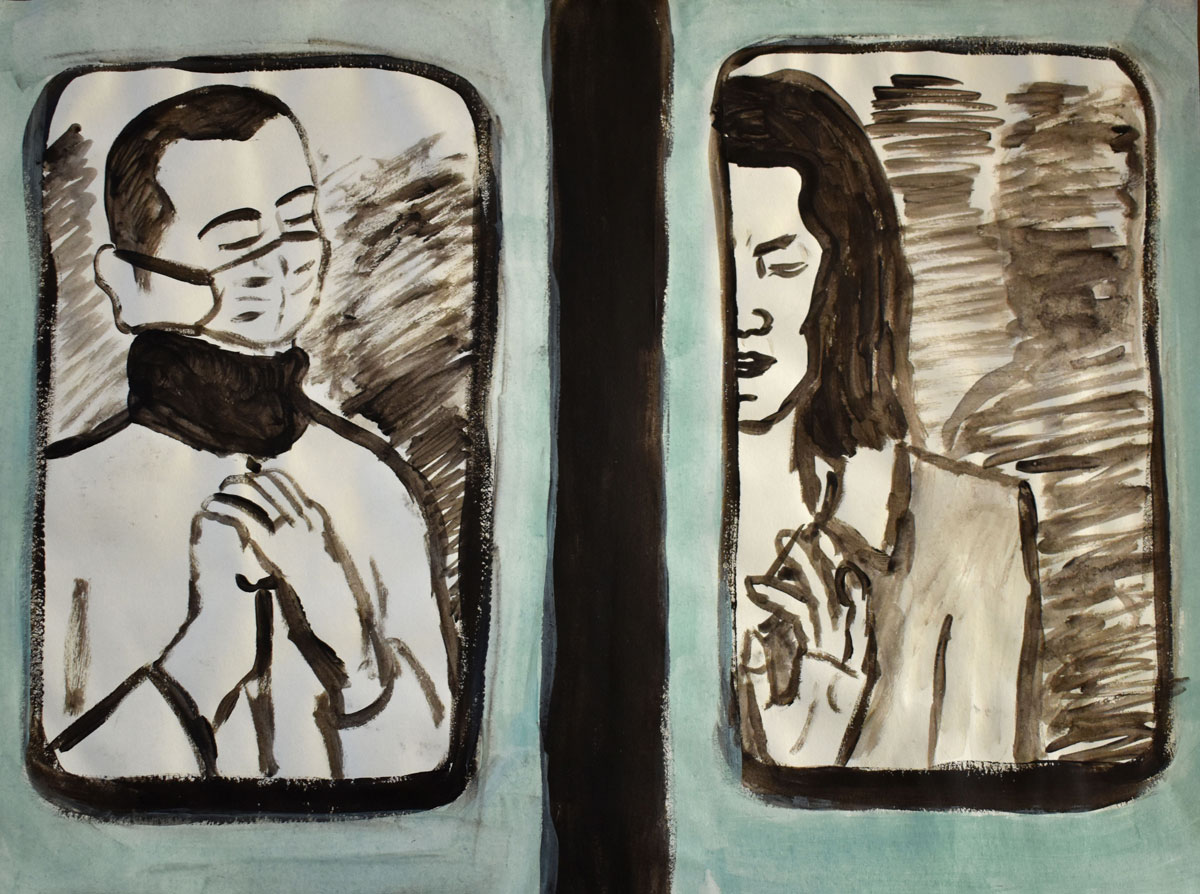
↓ Myrthe Lefèvre
793 30 5 4825 37 2257 Ieder nummer is iemand Ieder nummer is iemands iemand
↓ Cleo Reniers
Mijn opa kwam eindelijk tot het inzicht dat een zakdoek rond uw neus binden niet helpt tegen het virus.
We hebben het hem maar twaalf keer moeten zeggen.
Hardleers noemen ze dat.
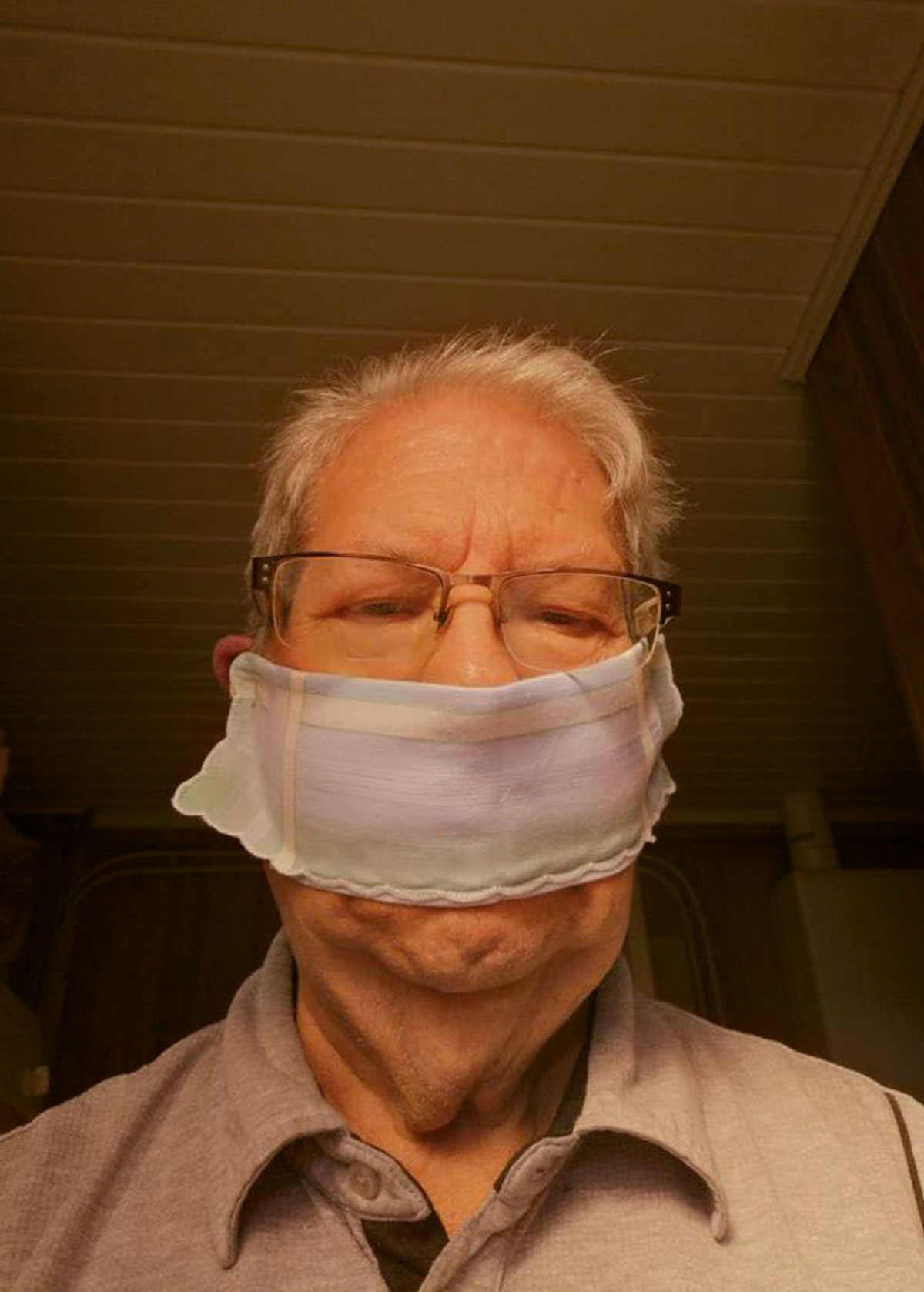
↓ Veerle Klein
Is this the real life? Is this just fantasy? (Let me go!) Will not let you go! Mamma mia let me go! I want to break free But life still goes on I don’t want to live alone, hey It’s the terror of knowing what this world is about Watching some good friends screaming, “Let me out!” Pray tomorrow gets me higher Every night and day I go crazy You better stay away from me, baby Still tryin’ to persuade me that Leavin’ home ain’t necessarily the only way Mamma mia let me go!
↓ Ekatériné Lortkipanidze
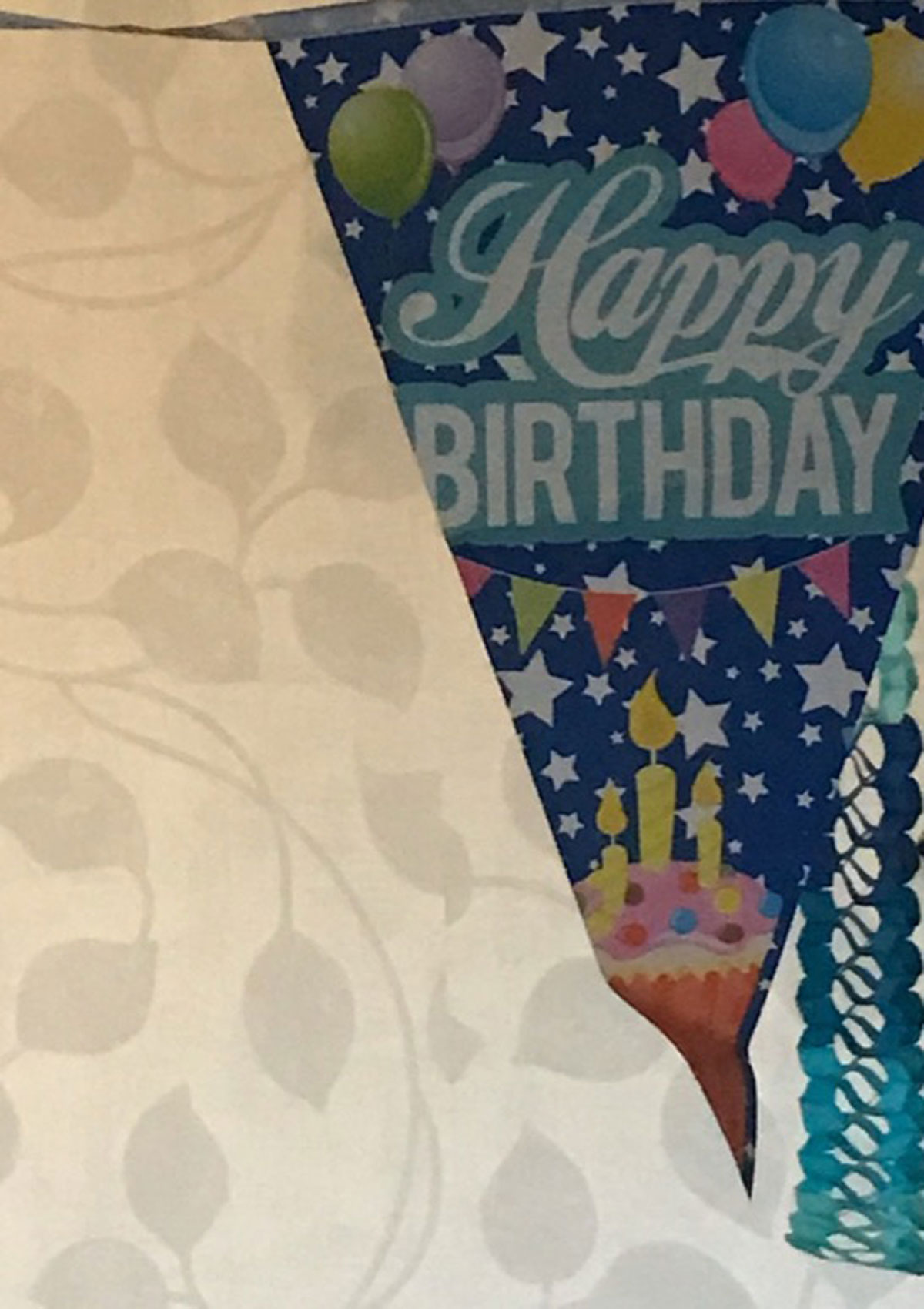
Elkaars verjaardag blijven vieren.
There ain’t no party like a quarantine party.
↓ Paulien Bloemen
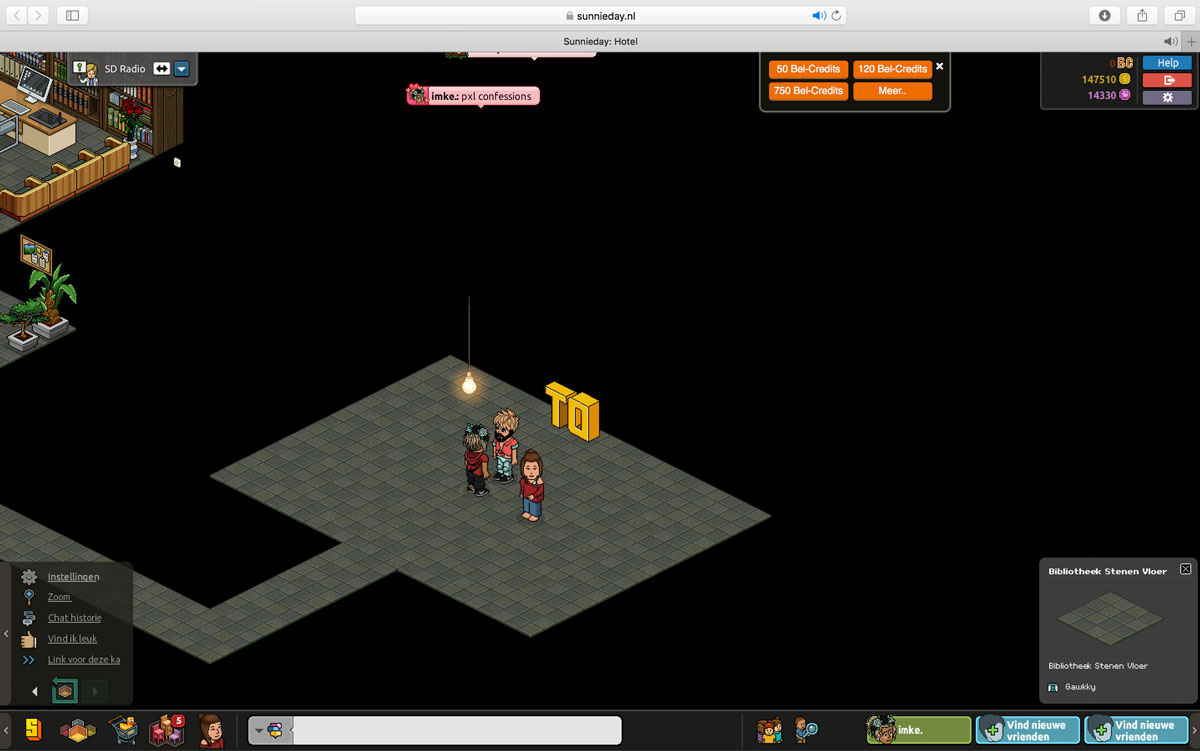
↓ Lisa Schelkens: dag 4
Goedendag! Ik heb nog steeds geen zin in deze logboekopdracht en toch heb ik iets gigantisch gedaan vandaag. AANSCHOUW ONZE OPRIT!
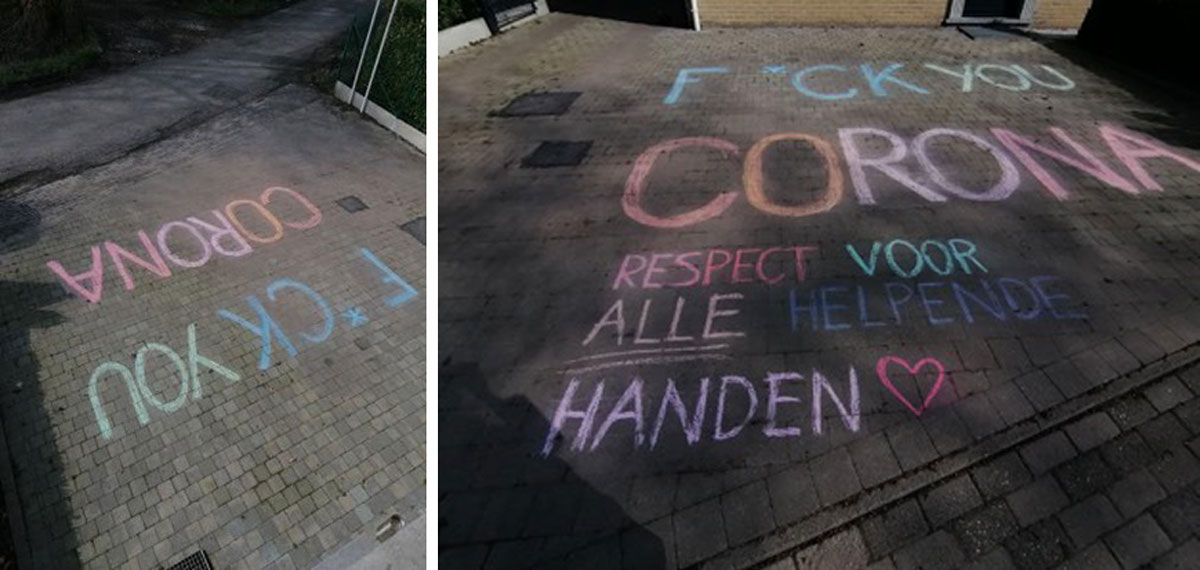
3 woorden: F*CK YOU CORONA ik ben echt nog aardig geweest met dat sterreke. Mama vond de woorden niet echt passend bij onze oprit. Ik heb haar dan toch kunnen overtuigen met een paar extra woordjes. Mijn stoepkrijt is nu wel op…en blijkbaar gaget morge regenen ☹ Nog snel te bezichtigen in Dullaar 36 te Ranst.
Ik ben al blij dat voorbijgangers ‘goe bezig’ zegden en, ja, zelfs foto’s namen. Het beste is wanneer kinderen met hun ouders passeren en niks zeggen. 2 meter verder klinkt het dan wel: ‘MAMAAA, DAAR STOND FUCK YOU’. Mijn oprechte excuses als ik uw kind een scheldwoord heb aangeleerd…
Vrijdag 20 maart 2020
↓ Myrthe Lefèvre
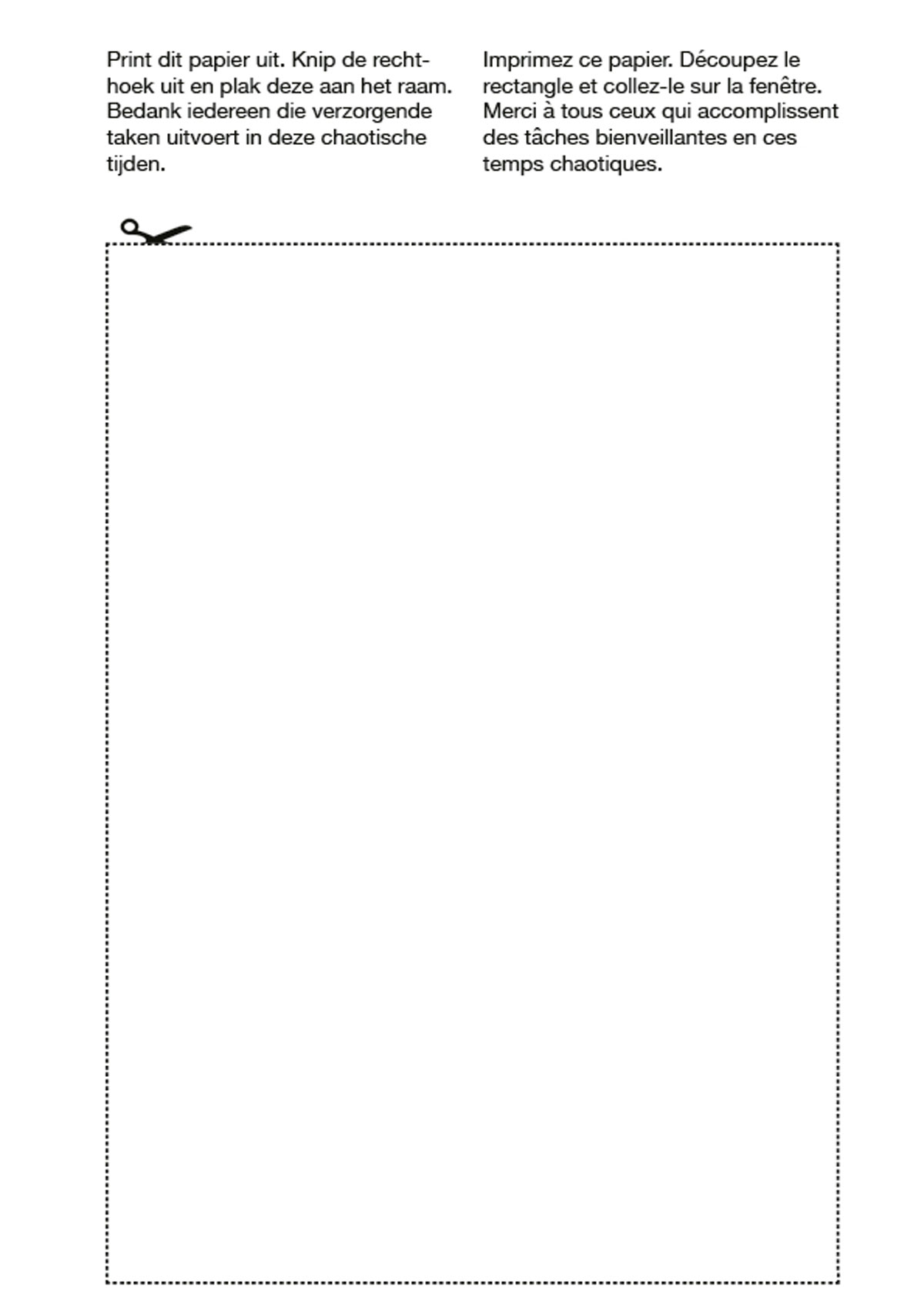
Download het pdf-bestand hier.
↓ Rob Vandegoor
En wat nu?
Niet veel.
↓ Gert Duquene
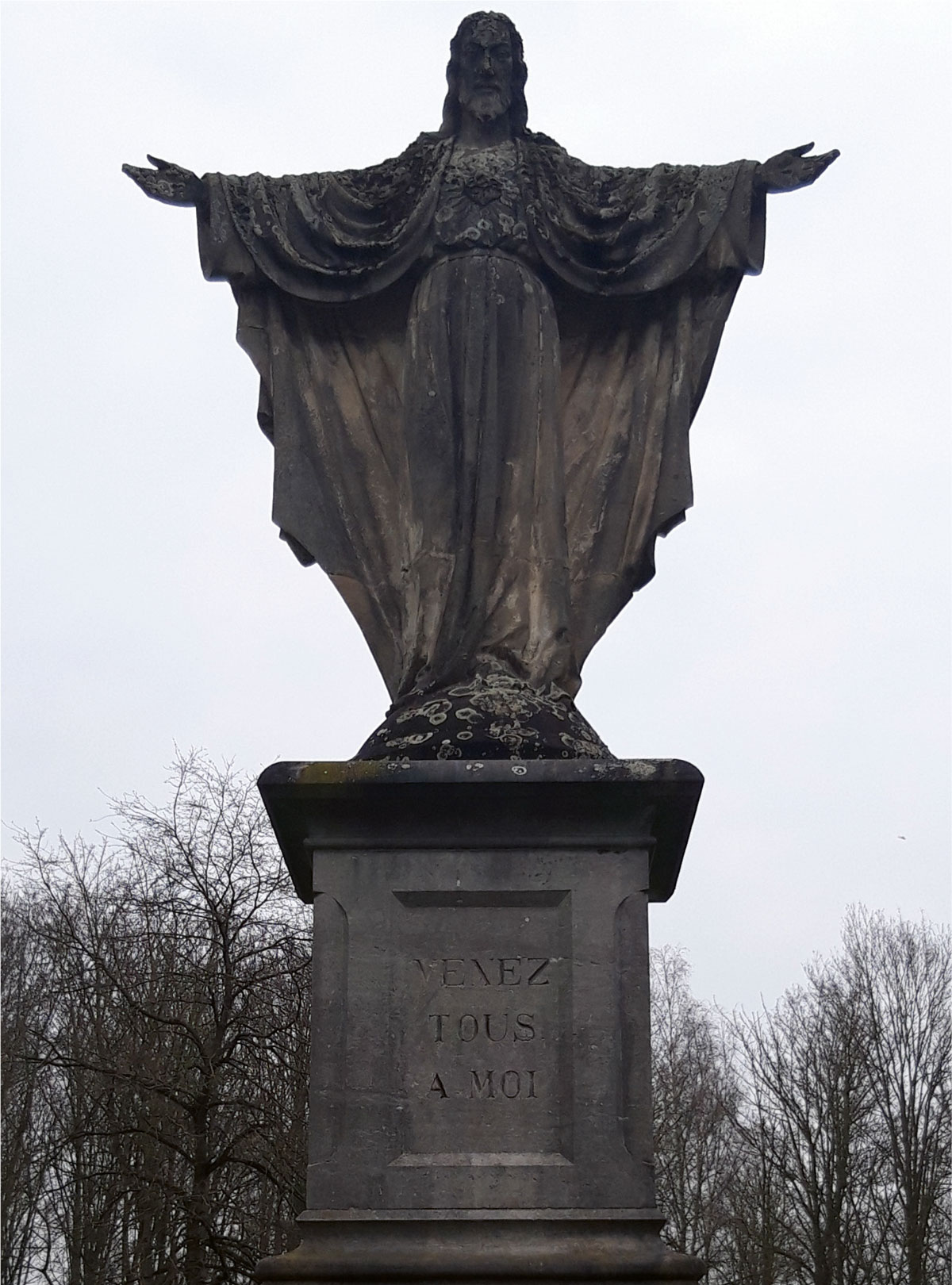
Venez tous à moi
(Kom allemaal naar mij toe)
↓ Flore Van Gorp
Alom verbindend web
het internet
aaneenhechting van communicatie
met hechtingsproblemen
Kloof van distantie
bijeenbrenger der collectief gezinden
Verminkt geluid en lumineus beeld
Hoekig in het kwadraat
Zo gisteren bevoorraad
Met een pak van Zalando
Een beige jas
vergezeld door
een uitlandse muntenpartij
41 Zwitserse Frank
Geen klik tussen ik
en het mormel
de jas
want het geld koester ik
het legde een lijdensweg af
genoot en werd zich gewaar
een tocht van
Zwitserland tot herwaarts
het zag deze week de wereld;
en ik mijn tuin.
↓ Fay Janssen
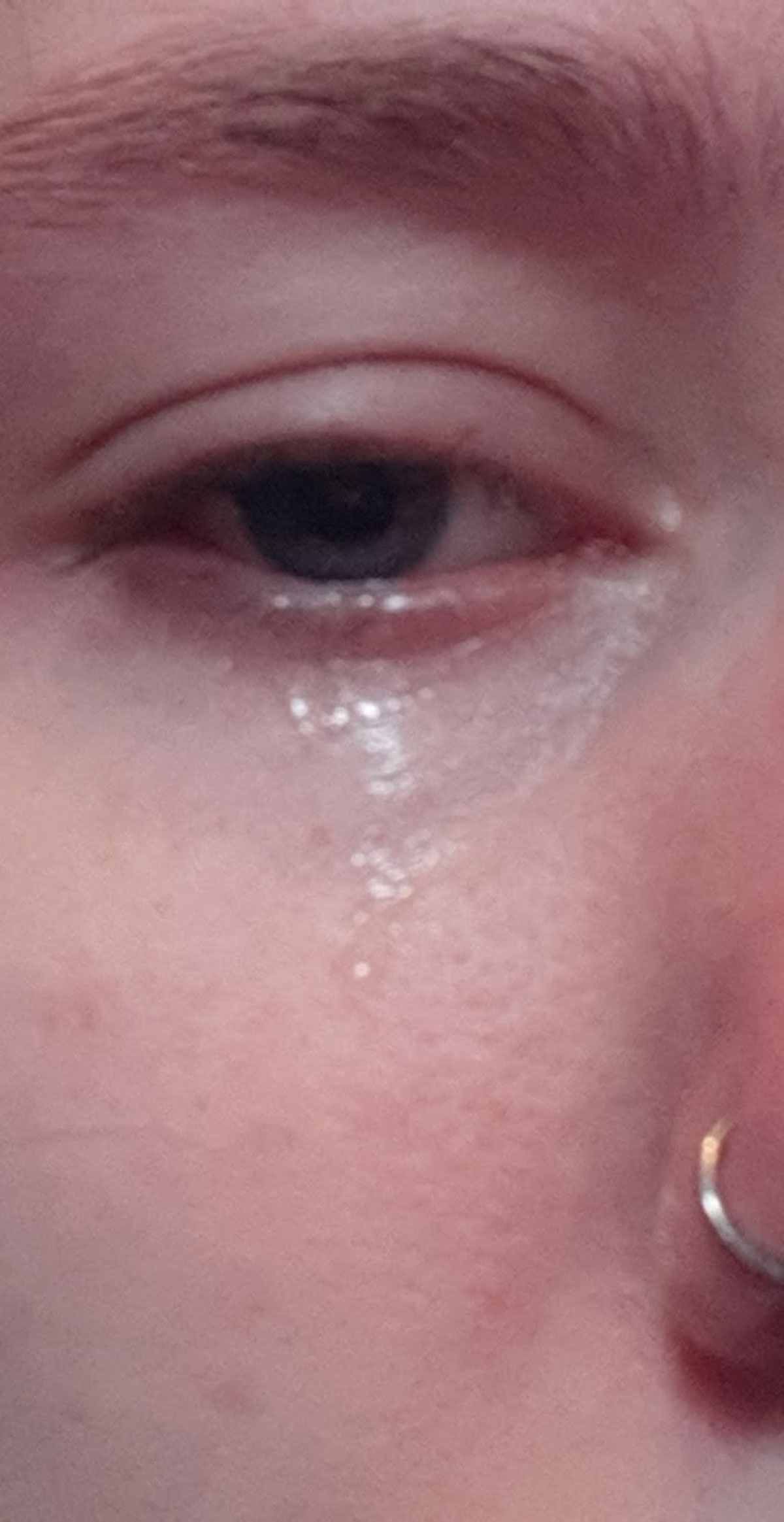
Donderdag 19 maart 2020
↓ Corneel De Schamphelaere / Lieven Van Speybroeck
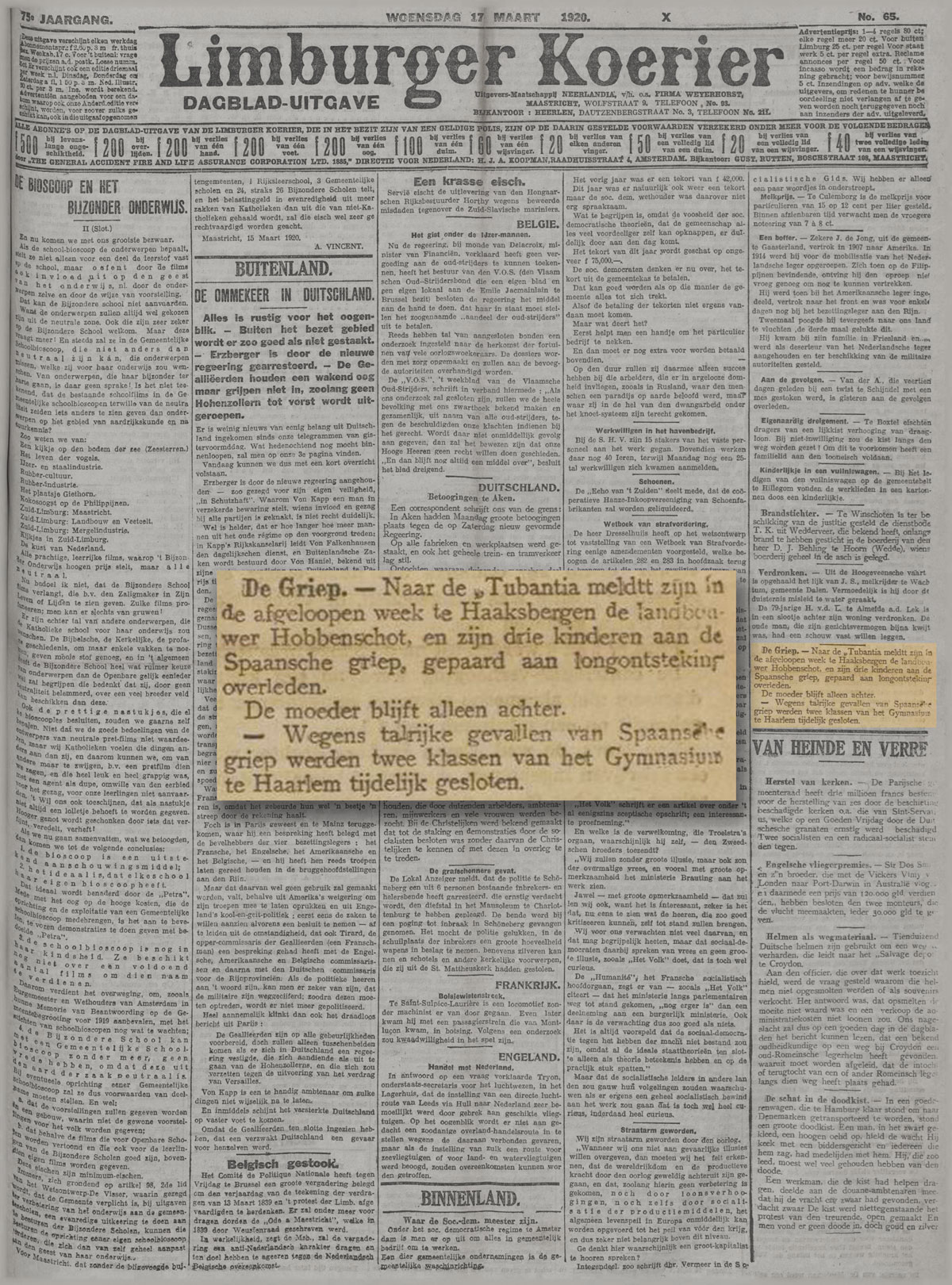
↓ Rachel Daniels: COVID-19 Quarantaine Sessie
↓ Lisa Schelkens: dag 2
Ik heb hier weeral geen goesting in… Ik weet ook eigenlijk niet goed wat ik moet zeggen, iedereen weet toch alles al over Corona? Wat is het nut van een logboek bij te houden? Ik ga alleen maar kunnen zagen… maar met zagen geraakt mijn blad wel vol… Zagers geen nood, stoefers geen brood… laat staan wc-papier.
Wat is het nut om naar de winkel te gaan? Je hebt meer kans op besmetting en je vindt toch niet wat je zoekt. Ik was onlangs in de Colruyt met mijn vader en we waren aan het schaterlachen van ongeloof. “Zoiets heb ik nog nooit meegemaakt,” zei papa, “zelfs met kerstmis ni.” Met een redelijk lege kar stonden we aan de kassa. Als ik corona heb, ga ik echt hoesten op alle pakskes spaghetti. De kassierster vertelde ons grapjes over wat ze ondertussen al had meegemaakt: mensen die zakken frieten plunderden uit de diepvries en achteraf terugkwamen met de melding dat ze geen frietketel hadden… Mensen lijken automatisch dom te worden eens hun overlevingsinstinct inkickt. Zou dat liggen aan onze hypertechnologische samenleving? Ik vraag mij af wat wij zouden doen als we terug in de tijd werden gespawnd. Ik denk echt dat we allemaal binnen de maand zouden sterven aan luxeverlangens of omdat we geen vogel willen eten omdat da deruit ziet as ne vogel… Wacht, die hebben ziektes, toch? Alle dieren hebben ziektes, hoe haalt ge dat eruit? WE GAAN ER ALLEMAAL AAN!
Al goed dat we niet meer vóór de neolithische revolutie leven. Nu hebben we het geluk dat we in ons non-bananenland bananen kunnen eten. Er is trouwens een nieuw soort fruit in de Colruyt, ugli genaamd. Het is een kruising tussen pompelmoes en mandarijn, maar dan lelijk… ECHT EEN AANRADER! En we hebben het geluk dat er nu wc’s en wc-papier bestaan, ma ik kan zeggen: in ne put kakken is ni zo erg, hoor, ge went daar wel aan. Is ne beerput trouwens ni veel ecologischer? Waar gaat eigenlijk alle kak naartoe? Gaat da nu werkelijk allemaal de zee in?
Ik ben er zeker van dat binnen honderd jaar er weer een nieuwe epidemie komt, weliswaar erger dan corona. Sommigen zeggen dat we binnenkort misschien zelfs dood gaan aan gewone ziektes, omdat we immuun worden voor antibiotica, omdat onze varkens ermee worden volgepompt om net in leven te blijven en ietsje dikker te worden voor ze naar het slachthuis worden gebracht. Ik ben geen vegetariër, chicken-nuggets zijn veel te lekker.
Ik geloof nog altijd niet dat ik iets meemaak dat later in de geschiedenisboeken terecht zal komen. Er zullen vast en zeker nog wel meer historische dingen genoteerd worden als “De eerste hond sterft aan corona” al wereldnieuws is. Ik weet ook wel dat dat gewoon wereldnieuws is omdat het tijden van corona zijn… Alles wordt tegenwoordig zo opgeblazen door sociale media.
Alle kerken zijn dicht, behalve de Sint-Rochus-kerk in Deurne. Die is nog open omdat Sint-Rochus de patroonheilige is van de besmettelijke ziekten, ‘de pestheilige’. Maar uw religie, klagers, kan efkes den boom of den hemel in. Onze vader brengt ons nu wel even serieus in beproeving, niet? Amen. Pestheilige.
Aan alle zagers en klagers: het komt goed ALS GULLE ELLE BAKKES HOUDT EN NI PANIKEERT. Moeder Aarde houdt gewoon even grote kuis en zoals we weten is een grote kuis niet een van de plezantste dingen, maar moet dat gewoon gebeuren. Anders wordt het hier maar een smerig boeltje. Dus schiet’er na me oat! KAK OF GENE KAK, DE POT OEP.
Morgen heb ik weer wat nieuw gezeik in de aanbieding of misschien niet, want kzen het zo muug as kaa pap… EN WAST UW POLLE, VETSCHEIR!
↓ Liesje Van Eyck
Nu hebben we nog mooi weer.
Vanaf het begint te regenen
zal je de mensen eens horen klagen
↓ Myrthe Lefèvre

↓ Céline Mannens
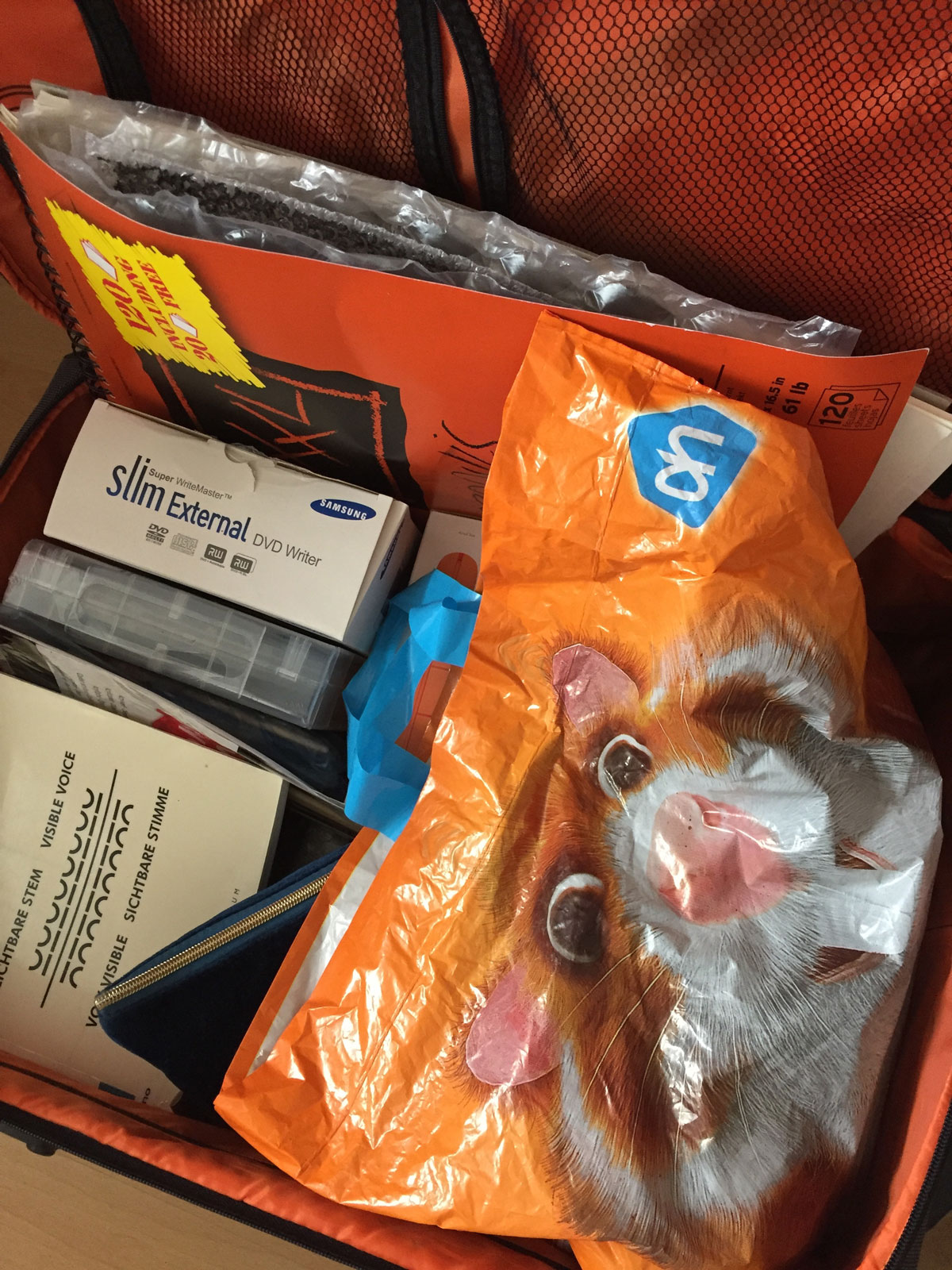
↓ Frauke Coune
Ga wandelen met de hond. Parking van winkel staat vol met auto’s, de ingang is gesloten. Moet nu langs de uitgang binnen, kassierster draagt handschoenen. Wandel verder, hond snuffelt wat. Mensen vertrekken met auto. Kan kinderen horen lachen en spelen. Hond doet kakje (en kijkt zeer trots). Gezinnetje passeert op fiets, man fluit op hond. Zij reageert niet. Overal staan veel auto’s. Passeer drie meisjes, zijn druk aan het praten. Man rijdt gras af, andere is bezig met bosmaaier. Twee mensen staan met elkaar te praten. Twee jongens racen voorbij op brommers. Stoppen aan het einde van de straat en draaien zich om. Hond hijgt, maar gaat dapper verder. Passeer een vrouw. Komen aan een zebrapad waar de hond over wil, is echter het verkeerde. Wandel verder. Apotheek is open. Frituur is gesloten. Iemand is 40 geworden, “touter 3 keer”. Vrouw staat buiten aan de pizzeria te bellen. Hond is druk bezig met snuffelen en wil niet oversteken. Kom verder niemand tegen. Hond rolt nog eens in de modder. Ben terug thuis
↓ Paulien Bloemen
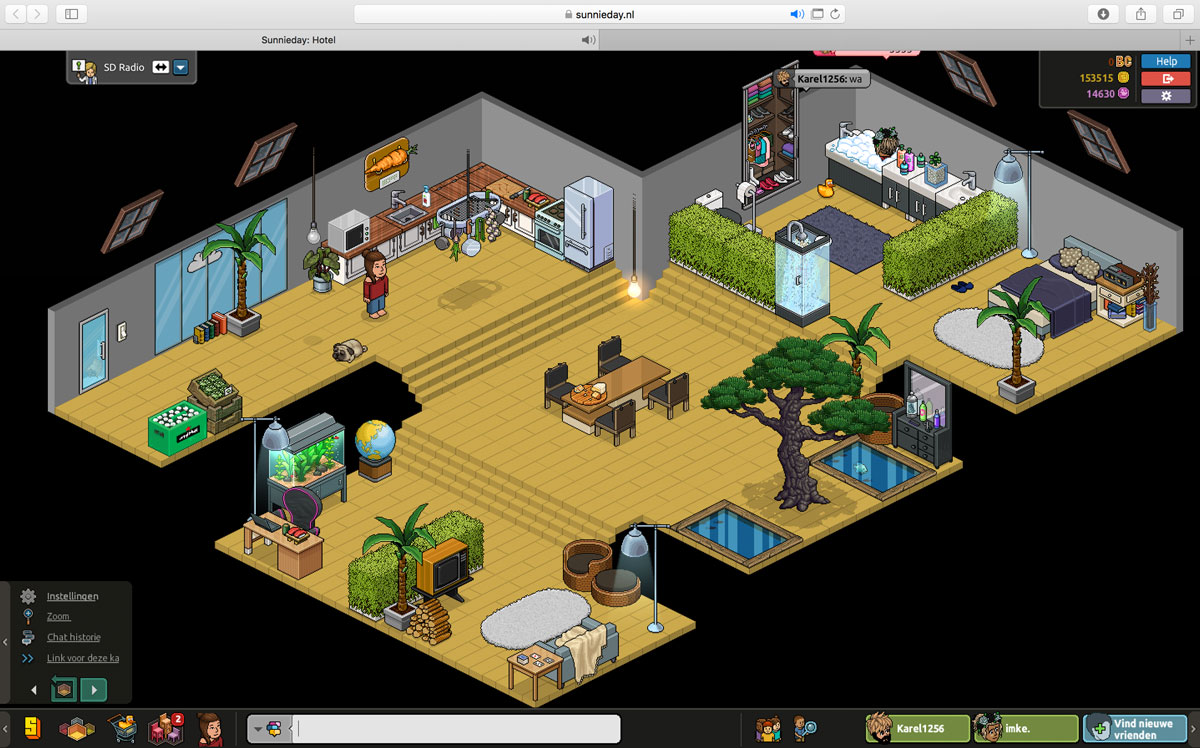
↓ Louise Jans
BREAK LOCKDOWN Ik word zot. Ik kan mijn bureau met schoolwerk niet meer aanzien. Ik kan mijn joggingbroek niet meer aanzien. Ik kan mijn wandelschoenen niet meer aanzien. Ik kan mijn make-uploos gezicht al helemaal niet meer aanzien. Ik kan die verdomde paaseieren niet meer aanzien. “Louise, niet aan uw gezicht komen!!” AAAAH. Ik kan de ontsmettingsalcohol niét meer ruiken. En het VTM Nieuws moet ik echt niet 3 keer per dag horen - sorry, Stef wauters. En die KUTtvogels mogen trouwens stilaan ook zwijgen. En nee, ik heb GEEN zin om mee te doen met fucking livestreamyoga.
↓ Gert Duquene
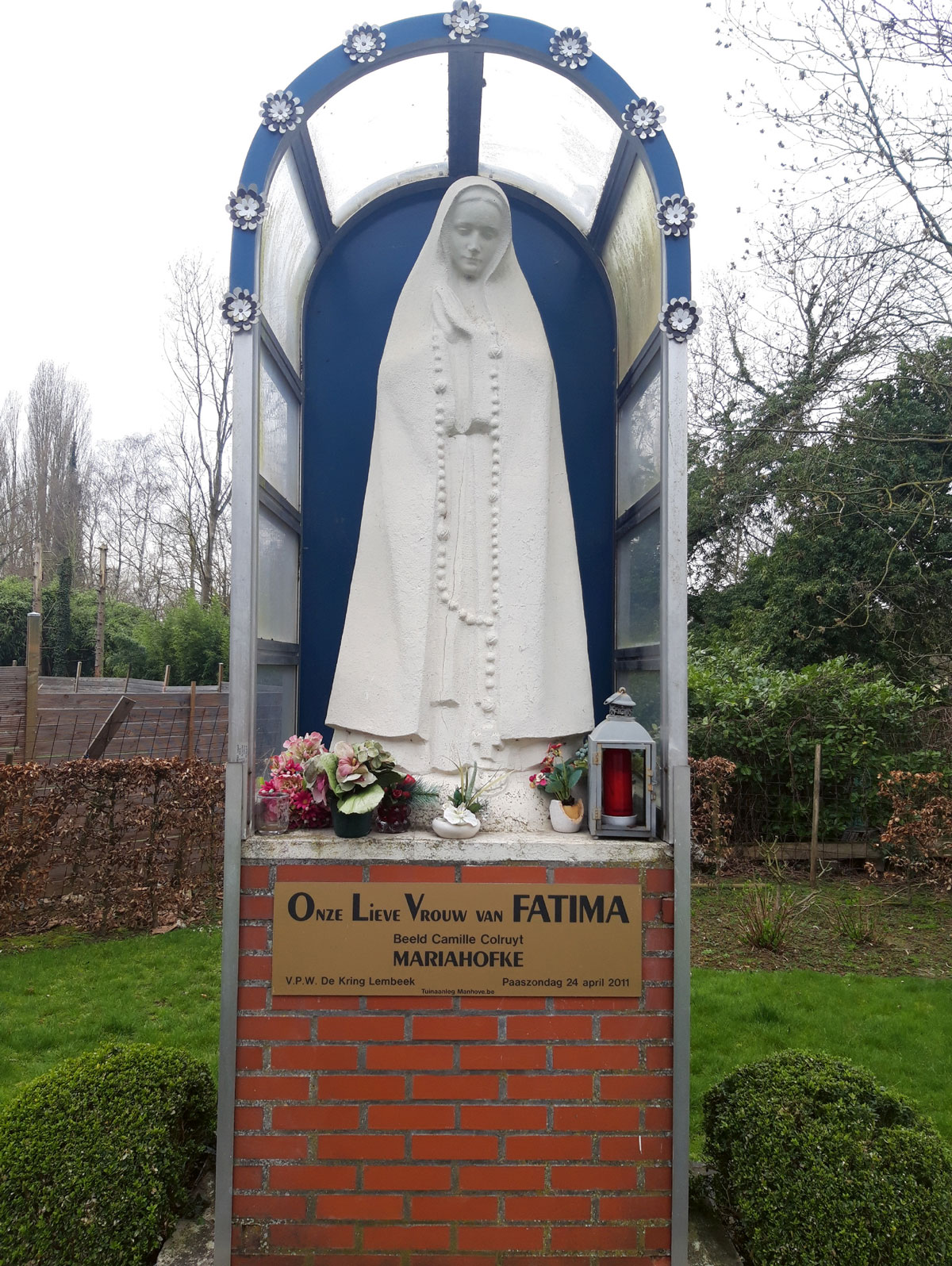
Met Onze-Lieve-Vrouw van Fátima wordt Maria aangeduid die tussen mei en oktober 1917 zes keer verschenen zou zijn aan de drie herderskinderen Lucia, Francisco en Jacinta nabij het Portugese stadje Fátima. Dit beeld in het Mariahofke in Lembeek is gemaakt door Camille Colruyt, broer van Franz Colruyt, oprichter van de bekende supermarkt die in deze tijden ook iets weg heeft van een bedevaartsoord.
Woensdag 18 maart 2020
↓ Ekatériné Lortkipanidze
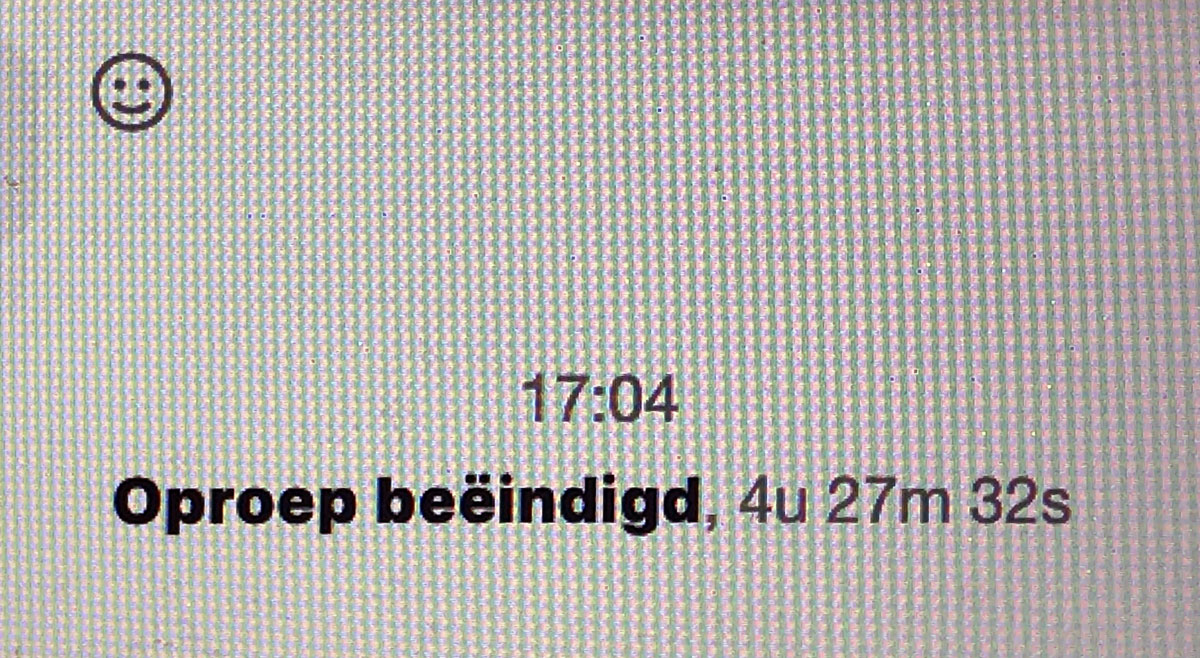
↓ Lisa Schelkens: dag 1
Ik zal al even zeggen: “k heb hier helemaal geen goesting in”. Ik zal ook ineens zeggen waarom… Op een of andere manier ben ik geweldig goed in lanterfanten; schoolopdrachten duren nu dus extra lang, niet alleen omdat we alles met hand en tand moeten uitleggen met behulp van powerpointpresentaties en dan dagen moeten wachten op feedback, maar ook omdat ik thuis zit en dus vrij tot heel vaak afgeleid ben. Op school ben je nog iet of wat gefocust. Nu is er geen systeem en heb ik ook niet de drang om geconcentreerd te blijven. Het zijn uitzonderlijke tijden en ik merk het iedereen die nu zonder spaghetti zit: “STOPT ME HAMSTEREN, KOPPIGE BELGEN” Mensen gaan massaal wandelen. Of is dat alleen maar in mijn straat zo? Gezinnen gaan fietsen en iedereen ziet er oprecht gelukkig uit. Veel mensen moeten niet gaan werken en kunnen wat tijd spenderen met hun kinderen. Mijnen overbuur heeft trouwens supernice klompen. Ik denk dat het coronavirus een goeie invloed heeft op het humanisme. Amai, da’s eigenlijk ironisch, hé… En tegelijk vechten om wc-papier.
Ik zie veel gebeuren vanuit mijn kamerraam want dat is de ruimte waar ik mijn schoolopdrachten maak. BRAAF IN MIJN ROMMELIG KOT!, zoals nu. Gezellig ben ik wat aan het typen over ‘de lockdown’, terwijl mijn klompenbuur buiten zit te spelen met zijn kinderen… Het meest deprimerende op dit moment is dus eigenlijk school en niet de coronacrisis. Ik zou liever eens een brief willen schrijven aan mijn bomma dan hier achter mijn schermpje te zitten.
Bij nader inzien is dat ‘deprimerende’ wel wat overdreven. Natuurlijk is corona veel erger dan school, maar ik moet zeggen dat het nieuws over corona toch op de tweede plaats komt. Zo komt school op een welverdiende derde plaats van deprimerendheid. Ja, vanaf nu is da een woord, ja. Het nieuws over corona wordt irritant: ondertussen weet ik wel dat ik mijn handen moet wassen, en jaja, je kan het niet genoeg zeggen, dat begrijp ik ook wel. Ik vind het gewoon irritant, en dan vooral als ze uithalen naar de jongeren. Ik ken meer studenten die niet naar buiten kunnen omdat ze te veel schoolwerk hebben dan van die feestvarkens… Hoe zou het eigenlijk gaan met die varkens in het parlement? En als ik de radio of tv niet aanzet, heb ik hier nog altijd een geweldige mama die er maar blijft over doorbomen THUISVERPLEEGSTER ANN VRIJSEN, RANST EN OMGEVING! toch efkes reclame maken… Een zagende mama die zich blauw betaalt aan zalfjes en desinfecterende gels die niet meer op de markt zijn. En dan zit haar andere dochter ook nog eens in Engeland waar de scholen pas volgende week sluiten en waar de examens nog gewoon doorgaan. Die doen na is echt alles omgekeerd, hé. Redenen genoeg dus om zich zorgen te maken… Kort samengevat: ons gezin gaat niet gezellig wandelen of zo…
Van de hak op de tak, zo lijkt alles nu wel… zelfs mijn tekst is rommelig, maar ik had u gewaarschuwd. Ik heb hier helemaal geen goesting in. Dus dit was genoeg voor dag 1. Ik weet echt ni wat ik aan het schrijven ben, maar ik weet wel dat ik corona al beu ben… Voor mijn part mag deze logboekopdracht stoppen, maar dat gebeurt toch niet. Dus tot morgen, hé’
‘Age trouwens ook zo een rommelmie zijt’, check dit nummertje van brihang
↓ Maud van Erkelens
Dag één van de lockdown. Ik zit in het huis van twee goede vrienden van mij, omdat we hebben besloten deze pasgeboren hel samen te trotseren. Anders zaten mijn vriend en ik op kot, een ruimte van 14m2. Dat met alleen elkaars gezelschap: we zouden zot worden. Als wij geen bezoek zouden krijgen van het monster, zouden we wel ziek worden van de gekte, die met elke dag van opsluiting enkel maar erger zou worden. Ik heb medelijden met iedereen die nu vastzit op zijn of haar kot. Het enige uitzicht: vier muren.
Nu zit ik op een grote stoel met een deken over me heen. Mijn beste kameraad Odie zit langs me. Ik vraag me af wanneer ik wakker word. Deze nare droom heeft nu wel lang genoeg geduurd. Het idee dat we niet meer zomaar kunnen gaan en staan waar we willen, snijdt haast mijn adem af.
Ik voel mijn warme adem ontsnappen uit mijn keelgat. De warmte van de koffiemok tussen mijn benen kalmeert me weer. Ik kijk in de olijfgroene blik die bij elke streling weer op mij gericht is. Odie heeft geluk, hij merkt niks van dit alles.
De zon komt steeds meer naar binnen en ik vraag me af: waarom net nu? Waarom moest het monster uit zijn kooi breken op het moment dat de zon zich niet meer verlegen verschool achter de wolken. De zon kwam om te vieren dat de lente is begonnen, maar er is niemand gekomen. Iedereen zit bang binnen en de straten zijn verlaten. Aan alles in mijn lichaam voel ik dat er iets raars gaande is. Het wil bewegen in richtingen waarvan ik weet dat het niet mag. Het ritme van de gewoonte is doorbroken en ik weet even niet meer wie ik ben.
Wanneer vind ik mezelf terug?
Waarschijnlijk pas als het monster vertrokken is.
↓ Gert Duquene
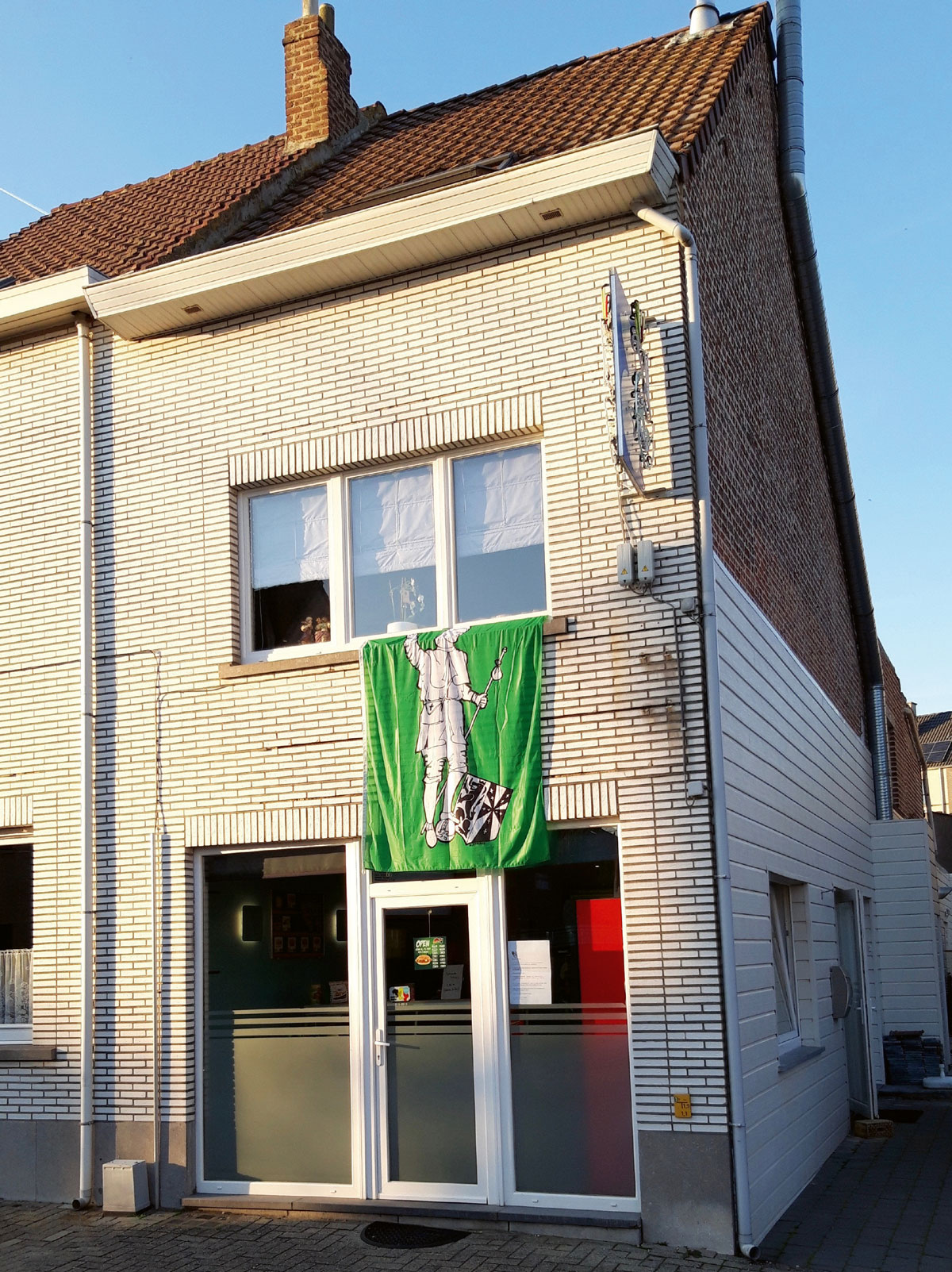
Bewoners van Lembeek (deelgemeente van Halle) hangen de vlag van hun patroonheilige Sint-Veroon uit. In de middeleeuwen behoedde hij hen voor de pest.
↓ Lise Heijnen
De mens is een creatief wezen, dat blijkt zeer zeker tijdens deze zware coronacrisis. Men gaat permanent op zoek naar inventieve oplossingen om te kunnen omgaan met deze bizarre situatie.
Zo ook Zoë. Al jaren volg ik haar op Instagram. Enkele weken geleden belandde ze helaas in het gips na een ongelukkige verzwikking op een zebrapad in Gent. Een barst in het enkelbot was het verdict.
Vandaag was ik toeschouwer van de gipsbevrijding van Zoë, en dat via een livestream op Instagram. Oorspronkelijk zou zij vandaag in de praktijk van de orthopedist geholpen worden, maar door de omstandigheden kon deze afspraak niet doorgaan.
Om twaalf uur deze middag kreeg ik plots een melding dat een livevideo van start ging.
Ik zie hoe Zoë’s vader vol overgave met een stofzuiger en dremel tekeergaat. Vakkundig wordt een incisie gemaakt, die verder wordt opengeknipt met een snoeischaar, die meer dan waarschijnlijk bij de Aveve was gekocht. Samen met 25 anderen kijk ik hoe het gipsverband aan gruzelementen wordt geknipt en gesneden, hoe er wordt getrokken en gewrongen, gewrikt en gescheurd.
Ondertussen is het gips al half kapot. Zoë verplaatst zich naar de zetel om het laatste stuk gips aan de onderkant van haar voet open te laten zagen. Haar cameravrouw loopt mee om de situatie perfect te kunnen capteren. De materialen van de Aveve doen prima hun werk, want binnen de kortste keren vliegen gips en dode huidcellen in het rond. Het kraakt, het scheurt... tot het laatste stuk openbreekt.
Zoë is vrij. En intussen is ook mijn tosti op.
↓ Evelien Nagels: De bibliotheek
In tijden van lockdown is het niet mogelijk om gewoon naar de bibliotheek te gaan in Herentals. Je zou maar eens in een boek moeten niezen en de besmettelijke ziekte doorgeven aan de volgende lezer. Dit moeten ze gedacht hebben, want eerst ging de bibliotheek volledig dicht, waardoor niemand nog boeken kon uitlenen. Gelukkig kwam daar snel verandering in. De bibliotheek van Herentals bedacht immers een oplossing om de wanhopige student, fervente lezer of oververmoeide ouder uit de nood te helpen. Online kan je een lijst invullen met maximaal vijftien items. Je geeft je gegevens en telefoonnummer op. Nadien belt de bibliothecaresse je op om een afspraak te maken op een vast uur. Maximum vijf klanten per keer kunnen op hetzelfde uur boeken komen afhalen. In mijn geval was ik alleen. Ik stond tijdig voor de deuren van de bibliotheek die rotsvast zaten. Tijdens het wachten passeerde een bejaarde man mij om te vragen of de bib nog open ging, hij moest zijn boeken inleveren. Ik legde hem de situatie uit en vertelde hem dat de boeken ook via de inleverschuif ingediend kunnen worden. Deze schuif is weliswaar zeer handig als de bibliotheek niet open is, maar ze is niet corona-proof, omdat iedereen het handvat vast moet nemen om zijn boeken naar binnen te schuiven. Verder kwam er ook nog een vrouw langs die de één-meter-afstand-regel aan haar laars lapte om mij te vragen of de bibliotheek nog open ging. Een tweede keer vertelde ik wat ik van plan was en hoe zij dus ook aan haar boeken kon geraken. Na een tijdje wachten belde ik tot slot aan in de veronderstelling dat men anders de deur niet zou komen openen. Dit deed ik met de grootste tegenzin want hiervoor moest ik het knopje van de bel aanraken. De bibliothecaresse gaf teken dat ze de deur zou ontgrendelen. De deuren van de burcht gingen eindelijk open. De geur van ontsmettingsmiddel schoot in mijn neus. Vijf meter stappen en daar lagen mijn boeken al klaar op een gepoetste tafel. De bibliothecaresse droeg handschoenen en een mondmasker alsof ik haar vanop die afstand zou kunnen besmetten. Ik kon mijn boeken nemen en naar huis vertrekken. De deuren van het fort sloten zich.
